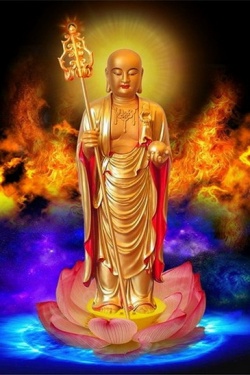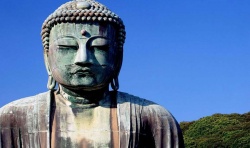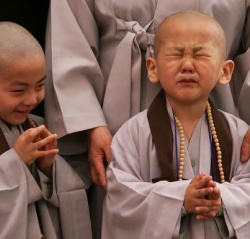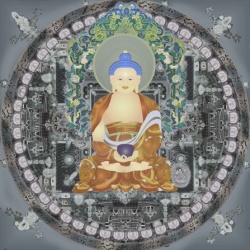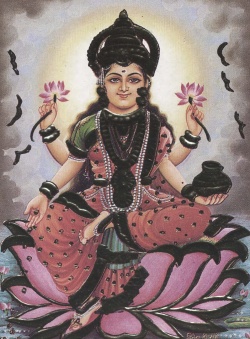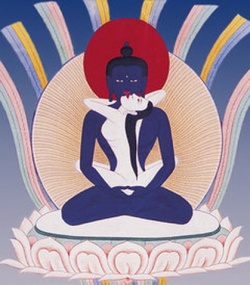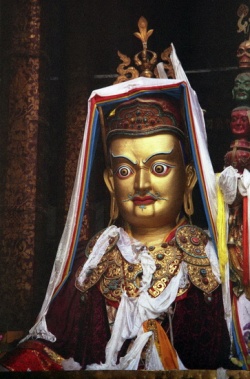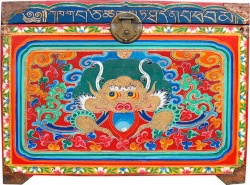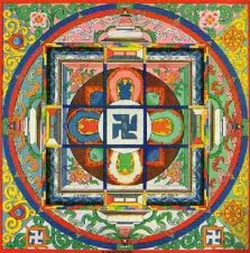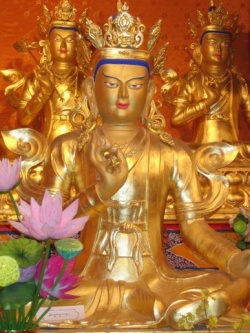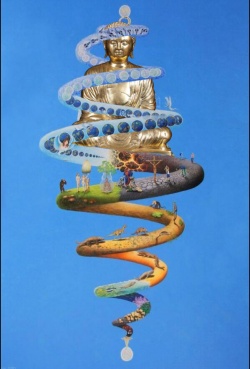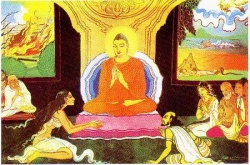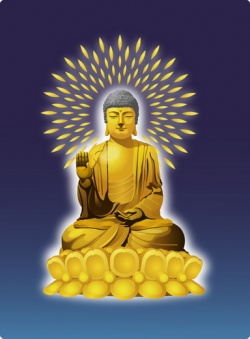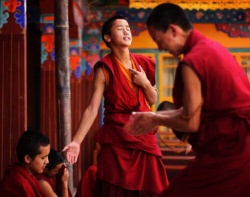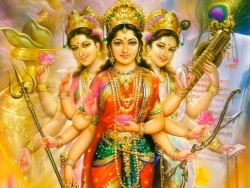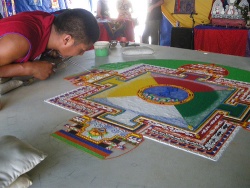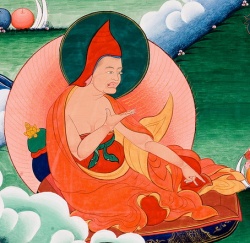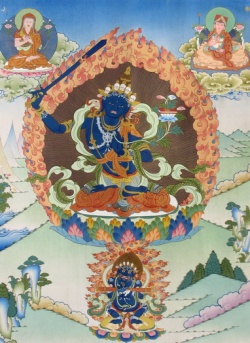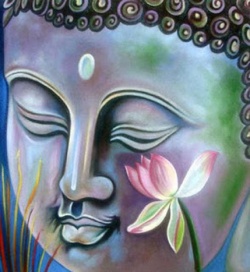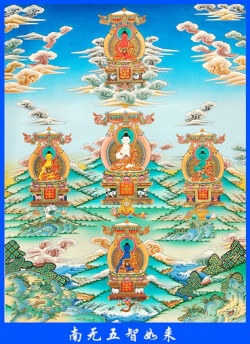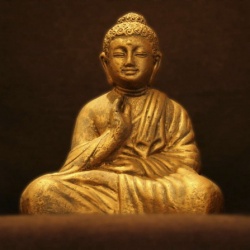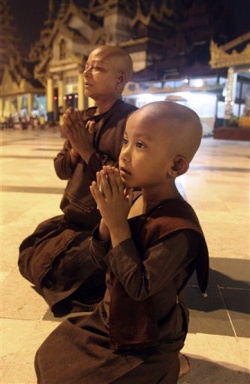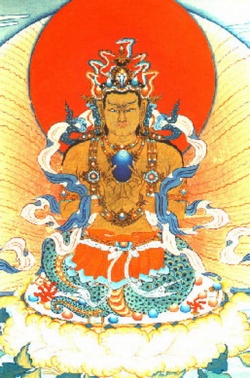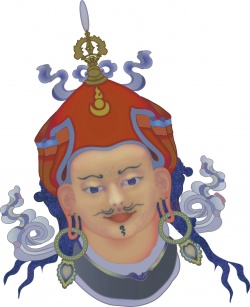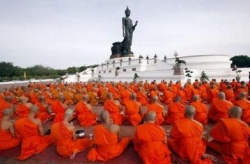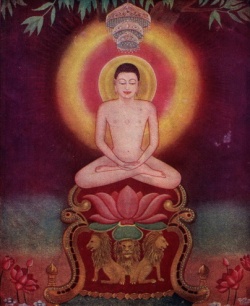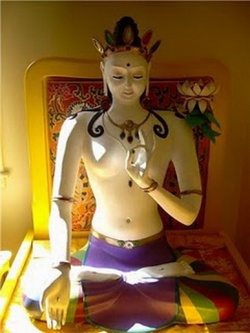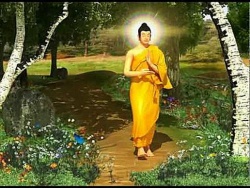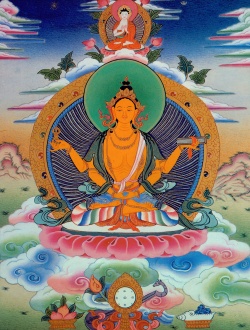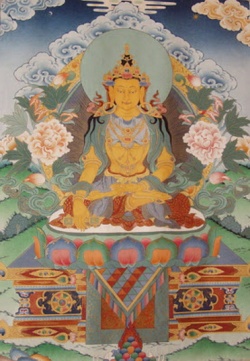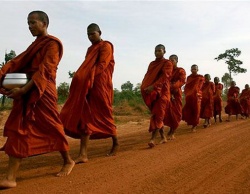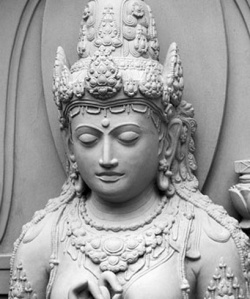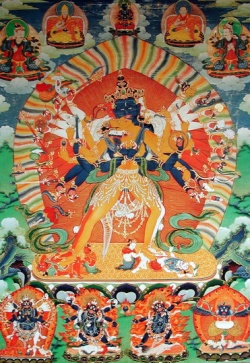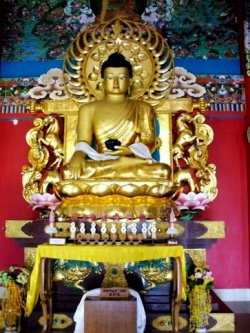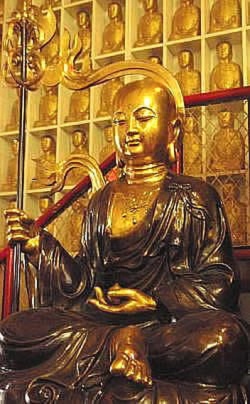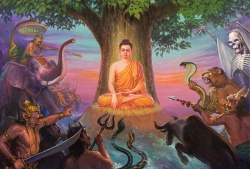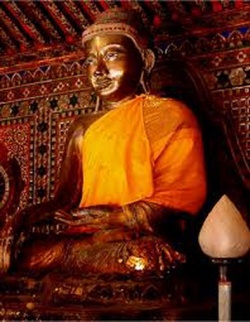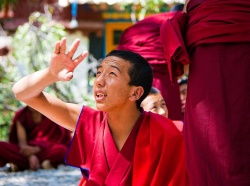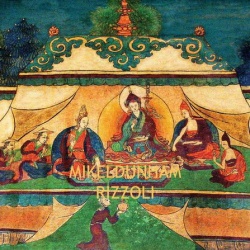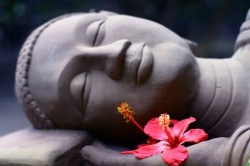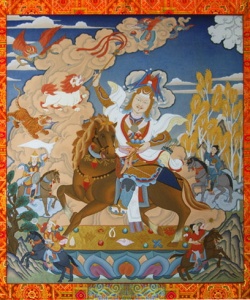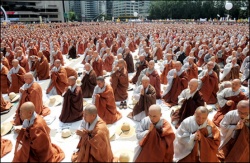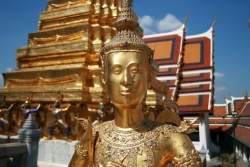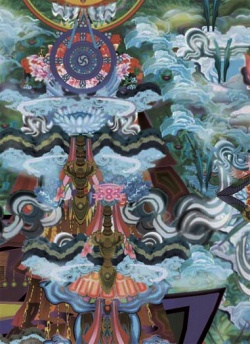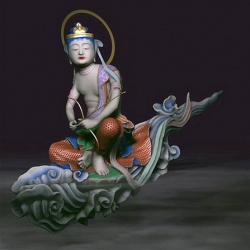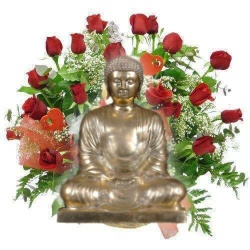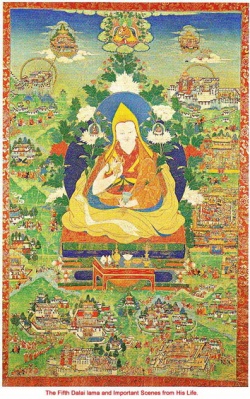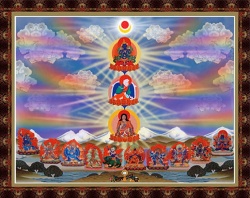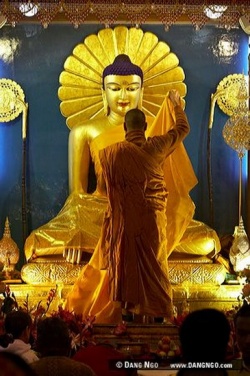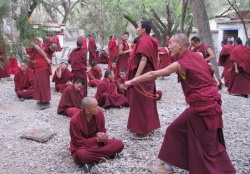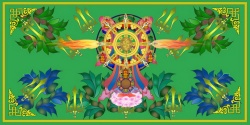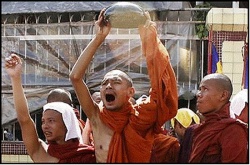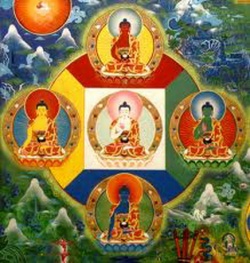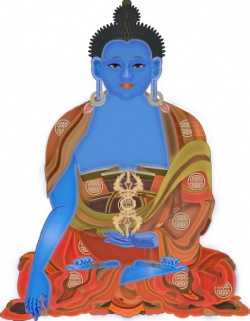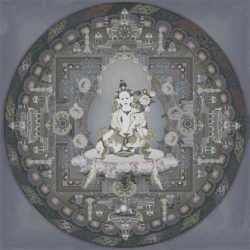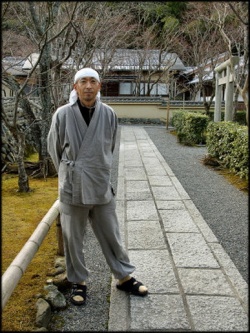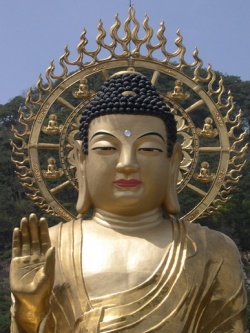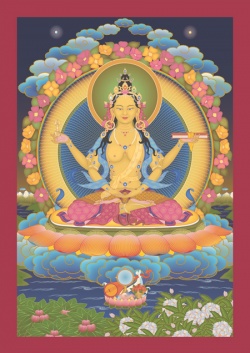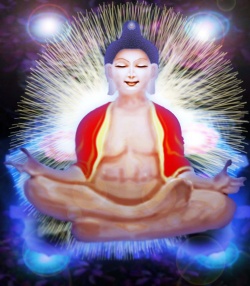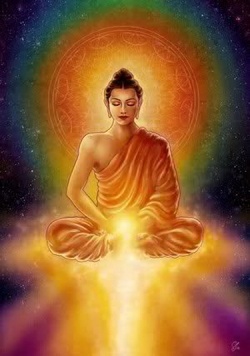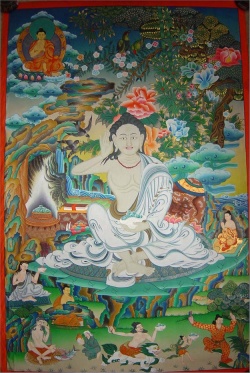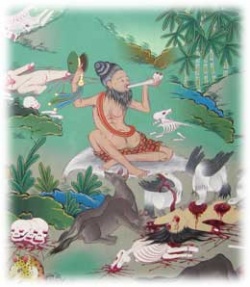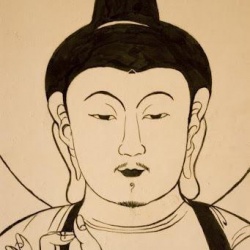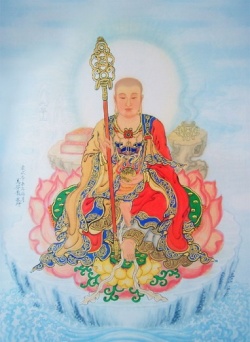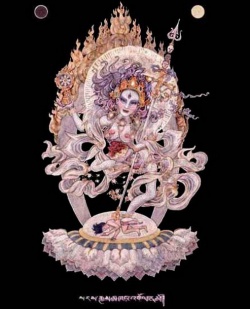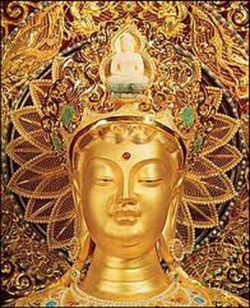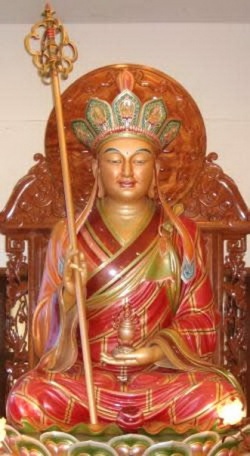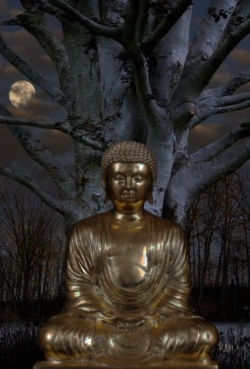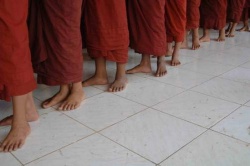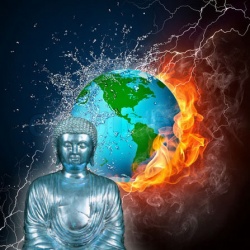Difference between revisions of "The Wonderful Dharma Lotus Flower Sutra with commentary by the Venerable Master Hsuan Hua: Chapter 16: The Thus Come One's Lifespan"
(Created page with "{{DisplayImages|597|804|3575|1766|2749|268|438|795|83|320|2542|3518|202|2405|3541|2133|1006|409|2314|1837|1063|502|2627|2103|1652|57|1405|3258|3159|1814|2|953|706|3359|1035|23...") |
m (Text replacement - "Thus Come" to "Thus Come") |
||
| (6 intermediate revisions by one other user not shown) | |||
| Line 1: | Line 1: | ||
| − | {{DisplayImages| | + | {{DisplayImages|796|1511|2778|3072|2175|541|260|1753|2985|3224|178|1288|3371|845|3249|2136|2063|3195|2591|567|337|28|2159|1958|524|1003|3549|908|1822|907|2844|2693|130|401|1548|898|2189|174|346|2440|849|1024|3133|1637|1312|1195|2183|3132|884|1502|3220|1154|666|2284|3400|1296|473|3344|3002|1423|1566|2299|3501|840|2616|320|956|2045|1286|1212|2276|2611|2146|89|2478|2214|665|618|235|2232|1453|88|3138|3153|1706|1140|859|1316|2661|1091|75|1394|1369|1905|3655|2202|1989|3104}} |
{{Centre|<big><big>The Wonderful Dharma Lotus Flower Sutra <br/> | {{Centre|<big><big>The Wonderful Dharma Lotus Flower Sutra <br/> | ||
with commentary by the Venerable Master Hsuan Hua<br/></big></big> | with commentary by the Venerable Master Hsuan Hua<br/></big></big> | ||
| Line 5: | Line 5: | ||
<poem> | <poem> | ||
| − | Now we have explained the Wonderful Dharma Lotus Flower Sutra as far as this chapter, the sixteenth, which is "The Thus Come One's Life Span." "Thus Come One" is one of the ten titles of a Buddha. Some people who do not understand the Buddhadharma say, "Oh, that is the Thus Come One, the Buddha." | + | Now we have explained the [[Wonderful Dharma Lotus Flower Sutra]] as far as this chapter, the sixteenth, which is "The Thus Come One's [[Life Span]]." "[[Thus Come One]]" is one of the ten titles of a [[Buddha]]. Some [[people]] who do not understand the [[Buddhadharma]] say, "Oh, that is the [[Thus Come One]], the [[Buddha]]." |
| − | They think that "Thus Come One, Buddha" is the name for one particular Buddha. Actually, "Thus Come One" is a title given to all Buddhas. All the Buddhas of the ten directions and the three periods of time, no matter which one, are called "Thus Come One." They are all called "One Worthy of Offerings." They are all called "One of Proper and Universal Knowledge," "One Who is Perfect in Understanding and Conduct," "Skillful in Leaving the World through Liberation," "Unsurpassed Knight," "Taming Hero," "Teacher of Gods and People," "Buddha," and "World Honored One." They all have those ten titles. | + | They think that "[[Thus Come One]], [[Buddha]]" is the [[name]] for one particular [[Buddha]]. Actually, "[[Thus Come One]]" is a title given to all [[Buddhas]]. All the [[Buddhas of the ten directions]] and the three periods of [[time]], no {{Wiki|matter}} which one, are called "[[Thus Come One]]." They are all called "One [[Worthy]] of [[Offerings]]." They are all called "One of Proper and [[Universal]] [[Knowledge]]," "One Who is Perfect in [[Understanding]] and Conduct," "[[Skillful]] in Leaving the [[World]] through [[Liberation]]," "[[Unsurpassed]] Knight," "Taming [[Hero]]," "[[Teacher]] of [[Gods]] and [[People]]," "[[Buddha]]," and "[[World Honored One]]." They all have those ten titles. |
| − | Now we will discuss the first title: Thus Come One. What is meant by Thus Come One? The Vajra Sutra says: "The Thus Come One does not come from anywhere and does not go anywhere. Therefore, he is called the Thus Come One." | + | Now we will discuss the first title: [[Thus Come One]]. What is meant by [[Thus Come One]]? The [[Vajra Sutra]] says: "The [[Thus Come One]] does not come from anywhere and does not go anywhere. Therefore, he is called the [[Thus Come One]]." |
| − | Another explanation says: "He rides on the Way that is actually thus and comes to realize Proper Enlightenment." "Rides" refers to the wisdom of thusness. "Come" refers to the state of thusness. He uses the wisdom of thusness to contemplate the state of thusness. When the state and the wisdom are both thus, then there is no state and there is no wisdom. That state and the wisdom unite into one. The Way is the cause; enlightenment is the fruition. This is called the perfection of the cause and the fulfillment of the fruition. Because the cause is perfected, the fruition is fulfilled, and so he is called a Thus Come One. | + | Another explanation says: "He rides on the Way that is actually thus and comes to realize Proper [[Enlightenment]]." "Rides" refers to the [[wisdom]] of [[thusness]]. "Come" refers to the state of [[thusness]]. He uses the [[wisdom]] of [[thusness]] to [[contemplate]] the state of [[thusness]]. When the state and the [[wisdom]] are both thus, then there is no state and there is no [[wisdom]]. That state and the [[wisdom]] unite into one. The Way is the [[cause]]; [[enlightenment]] is the [[fruition]]. This is called the [[perfection]] of the [[cause]] and the fulfillment of the [[fruition]]. Because the [[cause]] is perfected, the [[fruition]] is fulfilled, and so he is called a [[Thus Come One]]. “[[Thus Come One]]” is one of the titles of the [[Buddhas]]. |
| − | There are also two kinds of Buddhas and the three kinds of Buddhas. There are also the fundamental Buddha and the discernible Buddha. What are the two Buddhas? They are the true body Buddha and the response-body Buddhas. | + | There are also two kinds of [[Buddhas]] and the three kinds of [[Buddhas]]. There are also the fundamental [[Buddha]] and the discernible [[Buddha]]. What are the two [[Buddhas]]? They are the true [[body]] [[Buddha]] and the [[response-body]] [[Buddhas]]. |
| − | "True" means unmoving true thusness: not moving and yet according with conditions. This is setting forth the name based on the substance. As to the response bodies, although they accord with conditions, they do not move. Although they do not move, they accord with conditions. | + | "True" means unmoving true [[thusness]]: not moving and yet according with [[conditions]]. This is setting forth the [[name]] based on the [[substance]]. As to the response [[bodies]], although they accord with [[conditions]], they do not move. Although they do not move, they accord with [[conditions]]. |
| − | Let us use an example to illustrate more clearly. The true body is like the bright moon up in the sky; the response body is like the reflecting moon in the water. Because there is the true light of the moon, there can be the reflection of the moon in the water. Although the moon appears in the water, the moon did not travel there; the bright moon in the sky has not gone anywhere. This is described as: | + | Let us use an example to illustrate more clearly. The true [[body]] is like the bright [[moon]] up in the sky; the response [[body]] is like the reflecting [[moon]] in the [[water]]. Because there is the true light of the [[moon]], there can be the {{Wiki|reflection}} of the [[moon]] in the [[water]]. Although the [[moon]] appears in the [[water]], the [[moon]] did not travel there; the bright [[moon]] in the sky has not gone anywhere. This is described as: |
| − | In a thousand pools of water are a thousand pools' moons. | + | In a thousand pools of [[water]] are a thousand pools' moons. |
| − | If a thousand pools have water in them and the water is pure, there will be a thousand reflections of the moon. The thousand reflections of the moon are certainly not a thousand moons that have descended into the water of those pools. But although the moonlight is not the basic substance of the moon, nonetheless, there is moonlight in the pools. Although the moonlight is there in the pools, the moon itself has not come down into the pools. And so it is said: | + | If a thousand pools have [[water]] in them and the [[water]] is [[pure]], there will be a thousand reflections of the [[moon]]. The thousand reflections of the [[moon]] are certainly not a thousand moons that have descended into the [[water]] of those pools. But although the [[moonlight]] is not the basic [[substance]] of the [[moon]], nonetheless, there is [[moonlight]] in the pools. Although the [[moonlight]] is there in the pools, the [[moon]] itself has not come down into the pools. And so it is said: |
| − | In a thousand pools of water are a thousand pools' moons. | + | In a thousand pools of [[water]] are a thousand pools' moons. |
| − | Ten thousand miles devoid of clouds is ten thousand miles of sky. | + | Ten thousand {{Wiki|miles}} devoid of clouds is ten thousand {{Wiki|miles}} of sky. |
| − | When there are no clouds for ten thousand miles, there will be ten thousand miles of clear sky. The Thus Come One is also like that. | + | When there are no clouds for ten thousand {{Wiki|miles}}, there will be ten thousand {{Wiki|miles}} of clear sky. The [[Thus Come One]] is also like that. |
| − | That is, Shakyamuni Buddha came into this world and manifested being born. Although he manifested being born, he did not undergo birth. Although he manifested passing into stillness, he did not pass into stillness. Why not? His basic substance did not move. When Shakyamuni Buddha came into this world: | + | That is, [[Shakyamuni Buddha]] came into this [[world]] and [[manifested]] being born. Although he [[manifested]] being born, he did not undergo [[birth]]. Although he [[manifested]] passing into stillness, he did not pass into stillness. Why not? His basic [[substance]] did not move. When [[Shakyamuni Buddha]] came into this [[world]]: |
| − | Without undergoing birth, he manifested being born. | + | Without undergoing [[birth]], he [[manifested]] being born. |
| − | Without passing into stillness, he manifested stillness. | + | Without passing into stillness, he [[manifested]] stillness. |
| − | His basic substance, his Dharma body, the true body Buddha, did not move. Therefore, you do not want to think that the Buddha is the same as we living beings are. The Buddha's coming into the world is not the same as the way we have come into the world. Shakyamuni Buddha, while still in his mother's womb, was already speaking Dharma for the gods, dragons, and others of the eight divisions of ghosts and spirits. He spoke the Dharma for gods and humans. | + | His basic [[substance]], his [[Dharma body]], the true [[body]] [[Buddha]], did not move. Therefore, you do not want to think that the [[Buddha]] is the same as we [[living beings]] are. The [[Buddha's]] coming into the [[world]] is not the same as the way we have come into the [[world]]. [[Shakyamuni Buddha]], while still in his mother's [[womb]], was already {{Wiki|speaking}} [[Dharma]] for the [[gods]], [[dragons]], and others of the eight divisions of [[ghosts]] and [[spirits]]. He spoke the [[Dharma]] for [[gods]] and [[humans]]. |
| − | Now we shall explain the chapter "The Thus Come One's Life Span." "Life" can be explained with the homonym [in Chinese] "feeling," which is one of the five skandhas. | + | Now we shall explain the chapter "The Thus Come One's [[Life Span]]." "[[Life]]" can be explained with the homonym [in {{Wiki|Chinese}}] "[[feeling]]," which is one of the [[five skandhas]]. “[[Life]]” refers to [[feeling]]. "Span" refers to its [[accumulation]] in numbers of years. How long is the span of the Thus Come One's [[life]]? It is incalculable—uncountably many years long. This, then, is the chapter "The Thus Come One's [[Life Span]]." |
| − | The meaning of "Thus Come One" is indeed vast. If we were to explain only the word "Thus" and the word "Come" in detail, it would take several years. The meaning of "Thus" is similar to the meaning of "wonderful." One who is not "Thus" is not "wonderful"; one who is not "wonderful" is not "Thus." The Thus Come One, then, is also the Wonderfully Come One. To be "Wonderfully Come" is to have not come in the way that we people have. We people do not know how we were born; we do not know how we will die. A Thus Come One knows how he was born, and he knows beforehand when he will enter Nirvana. | + | The meaning of "[[Thus Come One]]" is indeed vast. If we were to explain only the [[word]] "Thus" and the [[word]] "Come" in detail, it would take several years. The meaning of "Thus" is similar to the meaning of "wonderful." One who is not "Thus" is not "wonderful"; one who is not "wonderful" is not "Thus." The [[Thus Come One]], then, is also the Wonderfully Come One. To be "Wonderfully Come" is to have not come in the way that we [[people]] have. We [[people]] do not know how we were born; we do not know how we will [[die]]. A [[Thus Come One]] [[knows]] how he was born, and he [[knows]] beforehand when he will enter [[Nirvana]]. |
| − | Now let us discuss the Thus Come One, with his vast virtue. As the Flower Adornment Sutra Preface says: | + | Now let us discuss the [[Thus Come One]], with his vast [[virtue]]. As the [[Flower Adornment Sutra]] Preface says: |
| − | He is wealthy with ten thousand virtues, | + | He is wealthy with ten thousand [[virtues]], |
And cleansed, without the finest dust. | And cleansed, without the finest dust. | ||
| − | National Master Qing Liang praised the Buddha this way: | + | National [[Master]] Qing Liang praised the [[Buddha]] this way: |
| − | Therefore, our World Honored One, | + | Therefore, our [[World Honored One]], |
| − | The ten bodies just fulfilled, | + | The ten [[bodies]] just fulfilled, |
| − | Proper Enlightenment first perfected, | + | Proper [[Enlightenment]] first perfected, |
| − | Rides vows and conduct all-pervasive. | + | Rides [[vows]] and conduct all-pervasive. |
| − | He unites with empty space in substance and nature, | + | He unites with [[empty]] [[space]] in [[substance]] and [[nature]], |
| − | Is wealthy with ten thousand virtues, | + | Is wealthy with ten thousand [[virtues]], |
And cleansed, without the finest dust. | And cleansed, without the finest dust. | ||
| − | The pellucid waves of his deep, sea-like wisdom | + | The pellucid waves of his deep, sea-like [[wisdom]] |
| − | Are empty, yet hold a myriad reflections. | + | Are [[empty]], yet hold a myriad reflections. |
| − | The full moon of his glistening, space-like nature | + | The [[full moon]] of his glistening, {{Wiki|space-like}} [[nature]] |
At once scatters into one hundred streams. | At once scatters into one hundred streams. | ||
| − | This is praising the Thus Come One as he sits beneath the Bodhi tree and speaks the Flower Adornment Sutra. | + | This is praising the [[Thus Come One]] as he sits beneath the [[Bodhi tree]] and speaks the [[Flower Adornment Sutra]]. |
| − | Without rising from beneath the King of Trees, | + | Without rising from beneath the [[King]] of [[Trees]], |
| − | He extends to seven places in the Dharma Realm. | + | He extends to seven places in the [[Dharma Realm]]. |
| − | He sat beneath the Bodhi tree and spoke the Flower Adornment Sutra. Unhindered by the bounds of afterwards, | + | He sat beneath the [[Bodhi tree]] and spoke the [[Flower Adornment Sutra]]. Unhindered by the bounds of afterwards, |
He pervades the nine assemblies, as he first succeeds. | He pervades the nine assemblies, as he first succeeds. | ||
| − | Therefore, the state of the Thus Come One can never be completely expressed. | + | Therefore, the state of the [[Thus Come One]] can never be completely expressed. |
| − | We have already discussed the meaning of the two kinds of Buddhas. There are also the three kinds of Buddhas, Thus Come Ones, which may be called the "Three Bodies of a Thus Come One." These three kinds of Buddhas are the Buddhas of the past, present, and future. The Buddhas of the past are those who have already become Buddhas; the Buddhas of the present are those who are about to become Buddhas now; the Buddhas of the future are those who have not yet become Buddhas. And so, even those who have not yet become Buddhas are counted as Buddhas. | + | We have already discussed the meaning of the two kinds of [[Buddhas]]. There are also the three kinds of [[Buddhas]], Thus Come Ones, which may be called the "[[Three Bodies]] of a [[Thus Come One]]." These three kinds of [[Buddhas]] are the [[Buddhas]] of the {{Wiki|past}}, {{Wiki|present}}, and {{Wiki|future}}. The [[Buddhas]] of the {{Wiki|past}} are those who have already become [[Buddhas]]; the [[Buddhas]] of the {{Wiki|present}} are those who are about to become [[Buddhas]] now; the [[Buddhas]] of the {{Wiki|future}} are those who have not yet become [[Buddhas]]. And so, even those who have not yet become [[Buddhas]] are counted as [[Buddhas]]. |
| − | The three bodies of a Thus Come One are: the Pure Dharma Body, the Perfect Reward Body, and the millions of transformation bodies. The Pure Dharma Body is Vairochana Buddha. Vairochana Buddha pervades all places. There is no place where he is and no place where he is not. There is no place where he exists, and yet there is no place that he does not exist. Well, ultimately does he exist or doesn't he? He both exists and does not exist. | + | The [[three bodies]] of a [[Thus Come One]] are: the [[Pure]] [[Dharma Body]], the Perfect [[Reward Body]], and the millions of [[transformation]] [[bodies]]. The [[Pure]] [[Dharma Body]] is [[Vairochana Buddha]]. [[Vairochana Buddha]] pervades all places. There is no place where he is and no place where he is not. There is no place where he [[exists]], and yet there is no place that he does not [[exist]]. Well, ultimately does he [[exist]] or doesn't he? He both [[exists]] and does not [[exist]]. |
| − | You say, "The 'Pure Dharma Body Vairochana Buddha' that I know must certainly not exist in unclean places. That is because he is pure. Impure places definitely would not house his Dharma Body." | + | You say, "The '[[Pure]] [[Dharma Body]] [[Vairochana Buddha]]' that I know must certainly not [[exist]] in unclean places. That is because he is [[pure]]. Impure places definitely would not house his [[Dharma Body]]." |
| − | That is not the way it is. Purity and impurity are discriminations made by people. From the point of view of a Buddha, impurity is also pure. Purity is even more pure. Don't you remember the three transformations of the land that occurred in the Dharma Flower Sutra? That is an example of purifying impure places. To repeat, the first is the Pure Dharma Body, Vairochana Buddha. | + | That is not the way it is. [[Purity]] and [[impurity]] are discriminations made by [[people]]. From the point of [[view]] of a [[Buddha]], [[impurity]] is also [[pure]]. [[Purity]] is even more [[pure]]. Don't you remember the three transformations of the land that occurred in the [[Dharma Flower Sutra]]? That is an example of purifying impure places. To repeat, the first is the [[Pure]] [[Dharma Body]], [[Vairochana Buddha]]. |
| − | The Perfect Reward Body, Nishyanda Buddha. Translated, Nishyanda means "pure and full." This body is also pure. As Shakyamuni Buddha was speaking the Great Means Expansive Buddha Flower Adornment Sutra, he manifested the ten-thousand-foot-tall Nishyanda Buddha-body. But those of the Two Vehicles could neither see him nor hear him. Those of the Two Vehicles saw the Buddha as a six-foot-tall Bhikshu. But the Great Knights of the Dharma Body, the Great Bodhisattvas, saw Shakyamuni Buddha as the ten-thousand-foot-tall Nishyanda Buddha speaking the Flower Adornment Sutra. That is why it is said, | + | The Perfect [[Reward Body]], [[Nishyanda]] [[Buddha]]. Translated, [[Nishyanda]] means "[[pure]] and full." This [[body]] is also [[pure]]. As [[Shakyamuni Buddha]] was {{Wiki|speaking}} the Great Means Expansive [[Buddha]] [[Flower Adornment Sutra]], he [[manifested]] the ten-thousand-foot-tall [[Nishyanda]] [[Buddha-body]]. But those of the [[Two Vehicles]] could neither see him nor hear him. Those of the [[Two Vehicles]] saw the [[Buddha]] as a six-foot-tall [[Bhikshu]]. But the Great Knights of the [[Dharma Body]], the [[Great Bodhisattvas]], saw [[Shakyamuni Buddha]] as the ten-thousand-foot-tall [[Nishyanda]] [[Buddha]] {{Wiki|speaking}} the [[Flower Adornment Sutra]]. That is why it is said, |
| − | They had eyes but could not see Nishyanda Buddha. | + | They had [[eyes]] but could not see [[Nishyanda]] [[Buddha]]. |
| − | Those of the Two Vehicles have eyes, all right; some may have even opened the Heavenly Eye. But they still could not see the ten-thousand-foot-tall body of Nishyanda Buddha. | + | Those of the [[Two Vehicles]] have [[eyes]], all right; some may have even opened the [[Heavenly]] [[Eye]]. But they still could not see the ten-thousand-foot-tall [[body]] of [[Nishyanda]] [[Buddha]]. |
| − | They had ears but could not hear the Perfect, Sudden Teaching. | + | They had {{Wiki|ears}} but could not hear the Perfect, [[Sudden Teaching]]. |
| − | They had ears, but could not hear Shakyamuni Buddha speaking the Flower Adornment Sutra. | + | They had {{Wiki|ears}}, but could not hear [[Shakyamuni Buddha]] {{Wiki|speaking}} the [[Flower Adornment Sutra]]. |
| − | Once one of my disciples asked me, "Those of the Two Vehicles cannot see the ten-thousand-foot body of Nishyanda Buddha. We are not even up to the level of the Two Vehicles; we have not become enlightened or reached the state of those of the Two Vehicles. How is it that we are able to read the Flower Adornment Sutra?" | + | Once one of my [[disciples]] asked me, "Those of the [[Two Vehicles]] cannot see the ten-thousand-foot [[body]] of [[Nishyanda]] [[Buddha]]. We are not even up to the level of the [[Two Vehicles]]; we have not become [[enlightened]] or reached the state of those of the [[Two Vehicles]]. How is it that we are able to read the [[Flower Adornment Sutra]]?" |
| − | That is a good question. The conditions of those of the Two Vehicles had not yet matured. That was why they were unable to see and hear the Great Vehicle Buddhadharma. They could neither see nor hear the Flower Adornment Sutra spoken. | + | That is a good question. The [[conditions]] of those of the [[Two Vehicles]] had not yet matured. That was why they were unable to see and hear the [[Great Vehicle]] [[Buddhadharma]]. They could neither see nor hear the [[Flower Adornment Sutra]] spoken. |
| − | Five hundred years after Shakyamuni Buddha entered Nirvana, Nagarjuna Bodhisattva had learned all the languages of the world; he had mastered them all. And he had already read all the books in the world. Having done so, he went to the Dragon Palace, where he secured the Flower Adornment Sutra and took it back with him. To get to the Dragon Palace, he certainly did not ride in a submarine. He went by way of the state of a sage certified to the fruition. Although he was submerged in the water, the water did not drown him. When a certified sage enters the water, the water will naturally part, opening a path for him, and will not drown him. The state of a certified sage is just that wonderful; it is even more dependable than using a submarine. | + | Five hundred years after [[Shakyamuni Buddha]] entered [[Nirvana]], [[Nagarjuna]] [[Bodhisattva]] had learned all the [[languages]] of the [[world]]; he had mastered them all. And he had already read all the [[books]] in the [[world]]. Having done so, he went to the [[Dragon]] Palace, where he secured the [[Flower Adornment Sutra]] and took it back with him. To get to the [[Dragon]] Palace, he certainly did not ride in a submarine. He went by way of the state of a [[Wikipedia:Sage (sophos|sage]] certified to the [[fruition]]. Although he was submerged in the [[water]], the [[water]] did not drown him. When a certified [[Wikipedia:Sage (sophos|sage]] enters the [[water]], the [[water]] will naturally part, opening a [[path]] for him, and will not drown him. The state of a certified [[Wikipedia:Sage (sophos|sage]] is just that wonderful; it is even more dependable than using a submarine. |
| − | When he got to the Dragon Palace, he read the Flower Adornment Sutra and committed it to memory. That was how he brought it back to the world. And so now we are able to see the Flower Adornment Sutra because our conditions have matured. Thus, the Reward-body Thus Come One spoke the Flower Adornment Sutra. | + | When he got to the [[Dragon]] Palace, he read the [[Flower Adornment Sutra]] and committed it to [[memory]]. That was how he brought it back to the [[world]]. And so now we are able to see the [[Flower Adornment Sutra]] because our [[conditions]] have matured. Thus, the [[Reward-body]] [[Thus Come One]] spoke the [[Flower Adornment Sutra]]. |
| − | There are also millions of transformation-body Shakyamuni Buddhas. Transformation bodies are sometimes called response bodies. To review: | + | There are also millions of [[transformation-body]] [[Shakyamuni]] [[Buddhas]]. [[Transformation]] [[bodies]] are sometimes called response [[bodies]]. To review: |
| − | The Two Bodies are: | + | The Two [[Bodies]] are: |
| − | 1. the true body, that is, the Dharma Body, | + | 1. the true [[body]], that is, the [[Dharma Body]], |
| − | 2. the Reward Body. | + | 2. the [[Reward Body]]. |
| − | The Three Bodies are: | + | The [[Three Bodies]] are: |
| − | 1. the Dharma Body, | + | 1. the [[Dharma Body]], |
| − | 2. the Reward Body, | + | 2. the [[Reward Body]], |
| − | 3. the transformation bodies. | + | 3. the [[transformation]] [[bodies]]. |
| − | Someone who heard me say that Nagarjuna Bodhisattva went to the Dragon Palace to get the Flower Adornment Sutra had this thought, "I cannot believe something like that really happened. How could a person, without the use of a submarine, go to the Dragon Palace?" | + | Someone who heard me say that [[Nagarjuna]] [[Bodhisattva]] went to the [[Dragon]] Palace to get the [[Flower Adornment Sutra]] had this [[thought]], "I cannot believe something like that really happened. How could a [[person]], without the use of a submarine, go to the [[Dragon]] Palace?" |
| − | A child of three has no way to know the state of a child of thirteen. A thirteen-year-old child cannot know the state of a young adult of twenty-three. A young person of twenty-three cannot know the state of a mature person of forty-three. A forty-three-year-old mature individual cannot know the state of a person of eighty. | + | A child of three has no way to know the state of a child of thirteen. A thirteen-year-old child cannot know the state of a young adult of twenty-three. A young [[person]] of twenty-three cannot know the state of a mature [[person]] of forty-three. A forty-three-year-old mature {{Wiki|individual}} cannot know the state of a [[person]] of eighty. |
| − | Therefore, since you do not have the requisite level of scholarship or this kind of wisdom, of course you would not be able to believe that such an event could occur. Not only do you not believe, many, many children cannot believe the things that adults do. And while you are still at the stage of disbelief, I have no way to make you believe. You are still too young. | + | Therefore, since you do not have the requisite level of {{Wiki|scholarship}} or this kind of [[wisdom]], of course you would not be able to believe that such an event could occur. Not only do you not believe, many, many children cannot believe the things that adults do. And while you are still at the stage of disbelief, I have no way to make you believe. You are still too young. |
| − | Children do not realize they are children. Once they grow up, they think back, "Oh, during that time of my life, I really had a lot of fun. How could I have put mud in my mouth and eaten it?" And yet they know they certainly must have done that when they were children. That is because young children put whatever they find into their mouths first. It does not matter to them what it is. They pay no attention to whether it is clean or unclean. Children know only how to eat; aside from that they understand very little principle. | + | Children do not realize they are children. Once they grow up, they think back, "Oh, during that [[time]] of my [[life]], I really had a lot of fun. How could I have put mud in my {{Wiki|mouth}} and eaten it?" And yet they know they certainly must have done that when they were children. That is because young children put whatever they find into their mouths first. It does not {{Wiki|matter}} to them what it is. They pay no [[attention]] to whether it is clean or unclean. Children know only how to eat; aside from that they understand very little [[principle]]. |
| − | If you want to understand, you should investigate the Buddhadharma. After you understand the Buddhadharma, you will come to understand what you now do not understand. Without me telling you, you will understand. Before you have at least investigated the Buddhadharma, you have no basis for belief or disbelief. If you believe, I gain no advantage from it. If you do not believe, I do not suffer any disadvantage. I am propagating the Buddhadharma, and you want to investigate the Buddhadharma. We set aside some time to investigate it together. When we investigate to the point of understanding, there is no need for belief or disbelief. | + | If you want to understand, you should investigate the [[Buddhadharma]]. After you understand the [[Buddhadharma]], you will come to understand what you now do not understand. Without me telling you, you will understand. Before you have at least investigated the [[Buddhadharma]], you have no basis for [[belief]] or disbelief. If you believe, I gain no advantage from it. If you do not believe, I do not [[suffer]] any disadvantage. I am {{Wiki|propagating}} the [[Buddhadharma]], and you want to investigate the [[Buddhadharma]]. We set aside some [[time]] to investigate it together. When we investigate to the point of [[understanding]], there is no need for [[belief]] or disbelief. |
| − | When you grow up, you do not have the same kind of thinking you had as a child. | + | When you grow up, you do not have the same kind of [[thinking]] you had as a child. |
"To whom are you talking?" someone wonders. | "To whom are you talking?" someone wonders. | ||
| − | If you think I am talking to you, then I am talking to you. If it did not even occur to you to wonder who this is being spoken for, then it is being spoken for someone other than you. That other person has nothing to do with you, so you do not need to protest, "I am not a child." | + | If you think I am talking to you, then I am talking to you. If it did not even occur to you to wonder who this is being spoken for, then it is being spoken for someone other than you. That other [[person]] has nothing to do with you, so you do not need to protest, "I am not a child." |
| − | So you are an adult. Adults should not lack understanding of the things they ought to understand. | + | So you are an adult. Adults should not lack [[understanding]] of the things they ought to understand. |
| − | '''Sutra: | + | '''[[Sutra]]: |
| − | At that time the Buddha spoke to the Bodhisattvas and the entire great assembly, saying, “Good men, you should believe and understand the sincere and truthful words of the Thus Come One.” Once again he told the great assembly, “You should believe and understand the sincere and truthful words of the Thus Come One.” He again told the great assembly, “You should believe and understand the sincere and truthful words of the Thus Come One.” | + | At that [[time]] the [[Buddha]] spoke to the [[Bodhisattvas]] and the entire [[great assembly]], saying, “Good men, you should believe and understand the sincere and truthful words of the [[Thus Come One]].” Once again he told the [[great assembly]], “You should believe and understand the sincere and truthful words of the [[Thus Come One]].” He again told the [[great assembly]], “You should believe and understand the sincere and truthful words of the [[Thus Come One]].” |
'''Outline: | '''Outline: | ||
| − | F2. Vastly opening and revealing in order to cut off doubts and bring forth belief. | + | F2. Vastly opening and revealing in order to cut off [[doubts]] and bring forth [[belief]]. |
G1. Exhortation to believe. | G1. Exhortation to believe. | ||
| Line 137: | Line 137: | ||
'''Commentary: | '''Commentary: | ||
| − | At that time, after speaking the chapter "Welling forth from the Earth," the Buddha was ready to speak the chapter "The Thus Come One's Life Span." This chapter, the sixteenth one, explains how long the life span of the Thus Come One is. | + | At that [[time]], after {{Wiki|speaking}} the chapter "Welling forth from the [[Earth]]," the [[Buddha]] was ready to speak the chapter "The Thus Come One's [[Life Span]]." This chapter, the sixteenth one, explains how long the [[life span]] of the [[Thus Come One]] is. |
| − | At that time the Buddha spoke to the Bodhisattvas and the entire great assembly. The Buddha addressed all the Great Bodhisattvas in the Dharma assembly and all the rest of the great assembly, including the Bhikshus and the Bhikshunis, the Upasakas and the Upasikas, the gods, the dragons, those of the eight divisions of ghosts and spirits, and all the good men and good women. | + | At that [[time]] the [[Buddha]] spoke to the [[Bodhisattvas]] and the entire [[great assembly]]. The [[Buddha]] addressed all the [[Great Bodhisattvas]] in the [[Dharma]] assembly and all the rest of the [[great assembly]], including the [[Bhikshus]] and the [[Bhikshunis]], the [[Upasakas]] and the [[Upasikas]], the [[gods]], the [[dragons]], those of the eight divisions of [[ghosts]] and [[spirits]], and all the good men and good women. |
| − | He said, "Good men. There are so many of you good young people. You should believe and understand the sincere and truthful words of the Thus Come One. You should now purify your minds, gather in and guard your minds. In other words, I am telling you not to have false thinking. Do not become weary. When listening to the Sutras, you should give rise to reverence and respect. Do not have false thoughts. During the time you are listening to the Sutras, you must certainly make your minds clear and pure. Most importantly, you must believe. You should understand the Thus Come One's sincere and truthful words. Whatever the Thus Come One says is true and actual, with not a trace of falseness whatsoever." | + | He said, "Good men. There are so many of you good young [[people]]. You should believe and understand the sincere and truthful words of the [[Thus Come One]]. You should now {{Wiki|purify}} your [[minds]], [[gather]] in and guard your [[minds]]. In other words, I am telling you not to have false [[thinking]]. Do not become weary. When listening to the [[Sutras]], you should give rise to reverence and [[respect]]. Do not have false [[thoughts]]. During the [[time]] you are listening to the [[Sutras]], you must certainly make your [[minds]] clear and [[pure]]. Most importantly, you must believe. You should understand the Thus Come One's sincere and truthful words. Whatever the [[Thus Come One]] says is true and actual, with not a trace of falseness whatsoever." |
| − | After the Buddha said this to everyone, he probably saw that some people's minds had wandered off because they were having false thoughts, and so they had not heard what he said. What kind of false thinking were they having? Maybe they were wondering when the Buddha would begin to speak. And so now the Buddha was speaking, but they were immersed in their false thoughts. So even though the Buddha was now speaking, they were not hearing him. But they definitely were not deaf; it was only because they were engaged in false thinking that they were not hearing. | + | After the [[Buddha]] said this to everyone, he probably saw that some people's [[minds]] had wandered off because they were having false [[thoughts]], and so they had not heard what he said. What kind of false [[thinking]] were they having? Maybe they were wondering when the [[Buddha]] would begin to speak. And so now the [[Buddha]] was {{Wiki|speaking}}, but they were immersed in their false [[thoughts]]. So even though the [[Buddha]] was now {{Wiki|speaking}}, they were not hearing him. But they definitely were not [[deaf]]; it was only because they were engaged in false [[thinking]] that they were not hearing. |
| − | The Buddha saw they were having false thoughts, and so he repeated himself. Once again he told the great assembly, "You should believe and understand the sincere and truthful words of the Thus Come One. All of you should pay especially close attention to the words the Buddha wants to say to you. Every word is true, actual, and not false. The Buddha is one whose words are true, real, and not false. What the Buddha tells you is the truth." He told them again, but probably there were still some among the assembly who were not listening attentively. They certainly were not deaf, and yet they had not heard—just because they were not paying attention. | + | The [[Buddha]] saw they were having false [[thoughts]], and so he repeated himself. Once again he told the [[great assembly]], "You should believe and understand the sincere and truthful words of the [[Thus Come One]]. All of you should pay especially close [[attention]] to the words the [[Buddha]] wants to say to you. Every [[word]] is true, actual, and not false. The [[Buddha]] is one whose words are true, real, and not false. What the [[Buddha]] tells you is the [[truth]]." He told them again, but probably there were still some among the assembly who were not listening attentively. They certainly were not [[deaf]], and yet they had not heard—just because they were not paying [[attention]]. |
| − | And so the Buddha said it again. He again told the great assembly, "You should believe and understand the sincere and truthful words of the Thus Come One. All of you in the great assembly should be particularly attentive. Believe the Dharma the Thus Come One speaks. | + | And so the [[Buddha]] said it again. He again told the [[great assembly]], "You should believe and understand the sincere and truthful words of the [[Thus Come One]]. All of you in the [[great assembly]] should be particularly attentive. Believe the [[Dharma]] the [[Thus Come One]] speaks. |
| − | "Before I spoke the provisional and expedient Dharmas in order to teach and transform you. Now I am opening the provisional to reveal the actual. I am not using expedient Dharmas anymore. I am speaking true and actual, not false, Dharma to you. What I am saying now is the truth." | + | "Before I spoke the provisional and expedient [[Dharmas]] in order to teach and [[transform]] you. Now I am opening the provisional to reveal the actual. I am not using expedient [[Dharmas]] anymore. I am {{Wiki|speaking}} true and actual, not false, [[Dharma]] to you. What I am saying now is the [[truth]]." |
| − | '''Sutra: | + | '''[[Sutra]]: |
| − | Then the great assembly of Bodhisattvas, headed by Maitreya, placed their palms together and spoke to the Buddha, saying, | + | Then the [[great assembly]] of [[Bodhisattvas]], headed by [[Maitreya]], placed their palms together and spoke to the [[Buddha]], saying, “[[World Honored One]] we only pray that you will speak. We shall believe and accept the [[Buddha’s]] words.” They repeated this three times. |
'''Outline: | '''Outline: | ||
| Line 161: | Line 161: | ||
'''Commentary: | '''Commentary: | ||
| − | Then the great assembly of Bodhisattvas, headed by Maitreya. At that time, among the Great Bodhisattvas, Maitreya Bodhisattva was the leader. He was the senior-seated one, the first-seated. He held the highest rank. They placed their palms together and spoke to the Buddha, saying, "World Honored One, we only pray that you will speak." Because he was the leader of all the Bodhisattvas, he puts his palms together and said to the Buddha, "World Honored One, right now, our one and only hope is that you will speak for us soon. We shall believe and accept the Buddha's words. All of us Bodhisattvas in this great assembly should believe and accept what the Buddha has said. We certainly will not have any doubts. Whatever Dharma the Buddha speaks, we will believe; we definitely will not give rise to doubts. We would not be skeptical anymore. Please, Buddha, speak as soon as possible. | + | Then the [[great assembly]] of [[Bodhisattvas]], headed by [[Maitreya]]. At that [[time]], among the [[Great Bodhisattvas]], [[Maitreya Bodhisattva]] was the leader. He was the senior-seated one, the first-seated. He held the [[highest]] rank. They placed their palms together and spoke to the [[Buddha]], saying, "[[World Honored One]], we only pray that you will speak." Because he was the leader of all the [[Bodhisattvas]], he puts his palms together and said to the [[Buddha]], "[[World Honored One]], right now, our one and only {{Wiki|hope}} is that you will speak for us soon. We shall believe and accept the [[Buddha's words]]. All of us [[Bodhisattvas]] in this [[great assembly]] should believe and accept what the [[Buddha]] has said. We certainly will not have any [[doubts]]. Whatever [[Dharma]] the [[Buddha]] speaks, we will believe; we definitely will not give rise to [[doubts]]. We would not be skeptical anymore. Please, [[Buddha]], speak as soon as possible. |
| − | They repeated this three times. After they said it once, the Buddha did not open his mouth. And so they asked again to show that they were increasingly sincere, but the Buddha still did not say anything. He sat silently, and so they requested a third time. That is called a threefold Karmavachana. They made the request three times, which shows how sincere and earnest they were in their request. | + | They repeated this three times. After they said it once, the [[Buddha]] did not open his {{Wiki|mouth}}. And so they asked again to show that they were increasingly sincere, but the [[Buddha]] still did not say anything. He sat silently, and so they requested a third [[time]]. That is called a threefold Karmavachana. They made the request three times, which shows how sincere and earnest they were in their request. |
| − | '''Sutra: | + | '''[[Sutra]]: |
| − | Again t hey said, “We only pray that you will speak. We shall believe and accept the Buddha’s words.” | + | Again t hey said, “We only pray that you will speak. We shall believe and accept the [[Buddha’s]] words.” |
'''Outline: | '''Outline: | ||
| Line 175: | Line 175: | ||
'''Commentary: | '''Commentary: | ||
| − | Again they said, "We only pray that you will speak." After three requests, they spoke once again. Once again makes the fourth time. We shall believe and accept the Buddha's words. We in the assembly will certainly believe what the Buddha has spoken. | + | Again they said, "We only pray that you will speak." After three requests, they spoke once again. Once again makes the fourth [[time]]. We shall believe and accept the [[Buddha's words]]. We in the assembly will certainly believe what the [[Buddha]] has spoken. |
| − | '''Sutra: | + | '''[[Sutra]]: |
| − | At that time the World Honored One, knowing that the Bodhisattvas would not stop with three requests, spoke to them, saying, “You should listen attentively.” | + | At that [[time]] the [[World Honored One]], [[knowing]] that the [[Bodhisattvas]] would not stop with three requests, spoke to them, saying, “You should listen attentively.” |
'''Outline: | '''Outline: | ||
| Line 187: | Line 187: | ||
'''Commentary: | '''Commentary: | ||
| − | Maitreya Bodhisattva and the Bodhisattvas in the assembly had four times requested Shakyamuni Buddha to speak the Dharma. At that time Shakyamuni Buddha, the World Honored One, knowing that all the Great Bodhisattvas would not stop with three requests—they had already requested a fourth time—spoke to them, saying, "You should listen attentively." All of you Bodhisattvas, listen well. Pay attention. | + | [[Maitreya Bodhisattva]] and the [[Bodhisattvas]] in the assembly had four times requested [[Shakyamuni Buddha]] to speak the [[Dharma]]. At that [[time]] [[Shakyamuni Buddha]], the [[World Honored One]], [[knowing]] that all the [[Great Bodhisattvas]] would not stop with three requests—they had already requested a fourth time—spoke to them, saying, "You should listen attentively." All of you [[Bodhisattvas]], listen well. Pay [[attention]]. |
| − | '''Sutra: | + | '''[[Sutra]]: |
| − | “The Thus Come One’s power of spiritual penetrations is acknowledged by all gods, humans, and asuras in the world. They say that Shakyamuni Buddha, having left the palace of the Shakyan clan and having gone to a place not far from the city of Gaya to sit in the Bodhimanda, has now attained anuttarasamyaksambodhi.” | + | “The Thus Come One’s power of [[spiritual]] penetrations is [[acknowledged]] by all [[gods]], [[humans]], and [[asuras]] in the [[world]]. They say that [[Shakyamuni Buddha]], having left the palace of the [[Shakyan]] {{Wiki|clan}} and having gone to a place not far from the [[city of Gaya]] to sit in the [[Bodhimanda]], has now attained [[anuttarasamyaksambodhi]].” |
'''Outline: | '''Outline: | ||
| Line 198: | Line 198: | ||
H1. Prose. | H1. Prose. | ||
I1. Opening the near to reveal the far. | I1. Opening the near to reveal the far. | ||
| − | J1. Breaking the attachment to the near. | + | J1. Breaking the [[attachment]] to the near. |
'''Commentary: | '''Commentary: | ||
| − | “The Thus Come One’s power of spiritual penetrations —the Buddha's secret entrances into practice, his spiritual powers, the strength of his secret state—is acknowledged by all gods, humans, and asuras in the world and by the others of the eight divisions of ghosts and spirits. All say the same thing. They say that Shakyamuni Buddha, having left the palace of the Shakyan clan, the palace of the Pure Rice King, his father, and having gone to a place not far from the city of Gaya, about five miles from that mountain city, to sit in the Bodhimanda beneath the Bodhi tree to cultivate, has now attained anuttarasamyaksambodhi. He became a Buddha after sitting there for forty-nine days. | + | “The Thus Come One’s power of [[spiritual]] penetrations —the [[Buddha's]] secret entrances into practice, his [[spiritual powers]], the strength of his secret state—is [[acknowledged]] by all [[gods]], [[humans]], and [[asuras]] in the [[world]] and by the others of the eight divisions of [[ghosts]] and [[spirits]]. All say the same thing. They say that [[Shakyamuni Buddha]], having left the palace of the [[Shakyan]] {{Wiki|clan}}, the palace of the [[Pure]] {{Wiki|Rice}} [[King]], his father, and having gone to a place not far from the [[city of Gaya]], about five {{Wiki|miles}} from that mountain city, to sit in the [[Bodhimanda]] beneath the [[Bodhi tree]] to cultivate, has now attained [[anuttarasamyaksambodhi]]. He became a [[Buddha]] after sitting there for forty-nine days. |
| − | '''Sutra: | + | '''[[Sutra]]: |
| − | “However, good men, I actually realized Buddhahood limitless, boundless, hundreds of thousands of myriads of kotis of nayutas of eons ago.” | + | “However, good men, I actually [[realized]] [[Buddhahood]] limitless, [[boundless]], hundreds of thousands of myriads of [[kotis]] of [[nayutas]] of eons ago.” |
'''Outline: | '''Outline: | ||
| − | J2. Breaking the attachment to the near to reveal the far. | + | J2. Breaking the [[attachment]] to the near to reveal the far. |
K1. Revealing the near. | K1. Revealing the near. | ||
'''Commentary: | '''Commentary: | ||
| − | Actually, that was not what happened at all. What really happened? However, good men, I will tell you about this. I actually realized Buddhahood a long time ago. If you want to talk about how long it has been since I became a Buddha—the time from then to now—there is no way to calculate how long it has been. How long? Limitless greatkalpas, boundless great kalpas, hundreds of thousands of myriads of kotis of nayutas of eons ago—countless, boundless great kalpas ago. It has been an incredibly long time; I cannot tell you exactly how long. All I can do is try to draw an analogy to give you some idea. | + | Actually, that was not what happened at all. What really happened? However, good men, I will tell you about this. I actually [[realized]] [[Buddhahood]] a long [[time]] ago. If you want to talk about how long it has been since I became a Buddha—the [[time]] from then to now—there is no way to calculate how long it has been. How long? Limitless greatkalpas, [[boundless]] great [[kalpas]], hundreds of thousands of myriads of [[kotis]] of [[nayutas]] of eons ago—countless, [[boundless]] great [[kalpas]] ago. It has been an incredibly long [[time]]; I cannot tell you exactly how long. All I can do is try to draw an analogy to give you some [[idea]]. |
| − | '''Sutra: | + | '''[[Sutra]]: |
| − | “Suppose a person were to grind into fine motes of dust five hundred thousand myriads of kotis of nayutas of asamkhyeyas of three thousand great thousand world systems. Then, suppose he traveled to the east across five hundred thousand myriads of kotis of nayutas of asamkhyeyas of lands, and there he deposited one mote of dust. Suppose he continued in this way, traveling to the east, until all the motes of dust were gone.” | + | “Suppose a [[person]] were to grind into fine motes of dust five hundred thousand myriads of [[kotis]] of [[nayutas]] of [[asamkhyeyas]] of three thousand great thousand [[world]] systems. Then, suppose he traveled to the [[east]] across five hundred thousand myriads of [[kotis]] of [[nayutas]] of [[asamkhyeyas]] of lands, and there he deposited one mote of dust. Suppose he continued in this way, traveling to the [[east]], until all the motes of dust were gone.” |
| − | “Good men, what do you think? Could the number of worlds he passed through be reckoned or counted?” | + | “Good men, what do you think? Could the number of [[worlds]] he passed through be reckoned or counted?” |
'''Outline: | '''Outline: | ||
| − | K2. Analogy to show the length of time. | + | K2. Analogy to show the length of [[time]]. |
L1. The analogy and the question. | L1. The analogy and the question. | ||
'''Commentary: | '''Commentary: | ||
| − | What is it analogous to? Suppose a person were to grind into fine motes of dust five hundred thousand myriads of kotis of nayutas of asamkhyeyas of three thousand great thousand world systems. This is talking about such a large number; there is no way to calculate it. He grinds them into dust just as if he were grinding an ink stone. He pulverizes entire worlds, grinds them into motes of dust. Then, suppose he traveled to the east across five hundred thousand myriads of kotis of nayutas of asamkhyeyas of lands, and there he deposited one mote of dust. He sets down one minute particle of dust. Suppose he continued in this way, traveling to the east. Every time he passes through five hundred thousand myriads of kotis of nayutas of asamkhyeyas of lands, he drops one mote of dust. He repeatedly goes on through that great a distance, each time setting down another mote of dust, until all the motes of dust are gone. He sets all the dust motes down. | + | What is it analogous to? Suppose a [[person]] were to grind into fine motes of dust five hundred thousand myriads of [[kotis]] of [[nayutas]] of [[asamkhyeyas]] of three thousand great thousand [[world]] systems. This is talking about such a large number; there is no way to calculate it. He grinds them into dust just as if he were grinding an ink stone. He pulverizes entire [[worlds]], grinds them into motes of dust. Then, suppose he traveled to the [[east]] across five hundred thousand myriads of [[kotis]] of [[nayutas]] of [[asamkhyeyas]] of lands, and there he deposited one mote of dust. He sets down one minute {{Wiki|particle}} of dust. Suppose he continued in this way, traveling to the [[east]]. Every [[time]] he passes through five hundred thousand myriads of [[kotis]] of [[nayutas]] of [[asamkhyeyas]] of lands, he drops one mote of dust. He repeatedly goes on through that great a distance, each [[time]] setting down another mote of dust, until all the motes of dust are gone. He sets all the dust motes down. |
| − | Good men, Bodhisattvas, what do you think? Could the number of worlds he passed through be reckoned or counted? Would you say that is a great number? Are those worlds many? If you had the best mathematicians and the most advanced technology, could you calculate the sum total? | + | Good men, [[Bodhisattvas]], what do you think? Could the number of [[worlds]] he passed through be reckoned or counted? Would you say that is a great number? Are those [[worlds]] many? If you had the best {{Wiki|mathematicians}} and the most advanced technology, could you calculate the sum total? |
| − | '''Sutra: | + | '''[[Sutra]]: |
| − | Maitreya Bodhisattva and the others all said to the Buddha, | + | [[Maitreya Bodhisattva]] and the others all said to the [[Buddha]], “[[World Honored One]], those [[world]] systems would be limitless, [[boundless]], beyond calculation, and beyond the power of the [[mind]] to know. All the Hearers and [[Pratyekabuddhas]], using their non-outflow [[wisdom]], could not conceive of them or know their limit or number.” |
| − | “We now dwell on the ground of avaivartika, but we cannot comprehend this matter, World Honored One, and so such world systems would be limitless and boundless.” | + | “We now dwell on the ground of [[avaivartika]], but we cannot comprehend this {{Wiki|matter}}, [[World Honored One]], and so such [[world]] systems would be limitless and [[boundless]].” |
'''Outline: | '''Outline: | ||
| Line 246: | Line 246: | ||
'''Commentary: | '''Commentary: | ||
| − | Maitreya Bodhisattva and the others, the Great Bodhisattvas, all said to the Buddha—they simultaneously said to the Buddha—"World Honored One, those world systems, that large number of them you just now described, would be limitless and boundless, beyond calculation. There would be no way to use numbers to calculate them. And they would be beyond the power of the mind to know; nor is this something that the ordinary mind can comprehend. All the Hearers and Pratyekabuddhas—the Hearers and Those Enlightened by Conditions—using their non-outflow wisdom, by means of their wisdom devoid of afflictions and outflows, still could not conceive of them. Although their wisdom is quite lofty, they have no way to know this number. They cannot know their limit or number. They cannot know the range of this calculation. There is no certain number that can represent these world systems, no way to know exactly how many there were. | + | [[Maitreya Bodhisattva]] and the others, the [[Great Bodhisattvas]], all said to the Buddha—they simultaneously said to the Buddha—"World Honored One, those [[world]] systems, that large number of them you just now described, would be limitless and [[boundless]], beyond calculation. There would be no way to use numbers to calculate them. And they would be beyond the power of the [[mind]] to know; nor is this something that the [[ordinary mind]] can comprehend. All the Hearers and Pratyekabuddhas—the Hearers and Those [[Enlightened]] by Conditions—using their non-outflow [[wisdom]], by means of their [[wisdom]] devoid of [[afflictions]] and outflows, still could not conceive of them. Although their [[wisdom]] is quite lofty, they have no way to know this number. They cannot know their limit or number. They cannot know the range of this calculation. There is no certain number that can represent these [[world]] systems, no way to know exactly how many there were. |
| − | "We now dwell on the ground of avaivartika. We abide on the ground of no retreat." Avaivartika is a Sanskrit word and is translated as "the ground of no retreat." "No retreat" means: | + | "We now dwell on the ground of [[avaivartika]]. We abide on the ground of no [[retreat]]." [[Avaivartika]] is a [[Sanskrit]] [[word]] and is translated as "the ground of no [[retreat]]." "No [[retreat]]" means: |
| − | 1. Their position was irreversible. They would not retreat to the Two Vehicles. | + | 1. Their position was irreversible. They would not [[retreat]] to the [[Two Vehicles]]. |
| − | 2. Their conduct was irreversible. They would not retreat to the conduct of those of the Two Vehicles. | + | 2. Their conduct was irreversible. They would not [[retreat]] to the conduct of those of the [[Two Vehicles]]. |
| − | 3. Their mindfulness was irreversible. They would not retreat to the thoughts of those of the Two Vehicles. | + | 3. Their [[mindfulness]] was irreversible. They would not [[retreat]] to the [[thoughts]] of those of the [[Two Vehicles]]. |
| − | But we cannot comprehend this matter. We cannot figure out this number; we cannot understand this event. World Honored One, such world systems would be limitless and boundless. The World Honored One spoke of so many worlds. They have no bounds and no limit. | + | But we cannot comprehend this {{Wiki|matter}}. We cannot figure out this number; we cannot understand this event. [[World Honored One]], such [[world]] systems would be limitless and [[boundless]]. The [[World Honored One]] spoke of so many [[worlds]]. They have no bounds and no limit. |
| − | '''Sutra: | + | '''[[Sutra]]: |
| − | At that time the Buddha spoke to the great hosts of Bodhisattvas, saying, “Good men, I shall now explain this clearly for you. If all these world systems—whether a dust mote was deposited in them or not—were reduced to dust motes, and if each dust mote were an eon, the time that has passed since I became a Buddha would exceed even that by hundreds of thousands of myriads of kotis of nayutas of asamkhyeyas of eons.” | + | At that [[time]] the [[Buddha]] spoke to the great hosts of [[Bodhisattvas]], saying, “Good men, I shall now explain this clearly for you. If all these [[world]] systems—whether a dust mote was deposited in them or not—were reduced to dust motes, and if each dust mote were an [[eon]], the [[time]] that has passed since I became a [[Buddha]] would exceed even that by hundreds of thousands of myriads of [[kotis]] of [[nayutas]] of [[asamkhyeyas]] of eons.” |
'''Outline: | '''Outline: | ||
| Line 268: | Line 268: | ||
'''Commentary: | '''Commentary: | ||
| − | At that time the Buddha spoke to the great hosts of Bodhisattvas, saying: Shakyamuni Buddha spoke to the multitude of Great Bodhisattvas, saying, "Good men, I shall now explain this clearly for you. You do not understand, do you? Do not be nervous. Now, at this time, I will clearly tell you. If all these numberless world systems, whether a dust mote was deposited in them or not—this includes all the worlds in which a dust particle was dropped, as well as the five hundred thousand myriads of nayutas of asamkhyeyas of lands where a mote of dust was not dropped—now, if all those many worlds, both those lands where a mote of dust was dropped and those where one was not, were taken and ground together and reduced to fine dust motes, and if each dust mote were counted as an eon, a great kalpa, the time that has passed since I became a Buddha, from the time I realized the Buddha-Way to now, would exceed even that. That number is even more than the number I have just described by hundreds of thousands of myriads of kotis of nayutas of asamkhyeyas of eons. The time since I became a Buddha is longer than this calculation of time by hundreds of thousands of myriads of kotis of nayutas of asamkhyeyas of eons. | + | At that [[time]] the [[Buddha]] spoke to the great hosts of [[Bodhisattvas]], saying: [[Shakyamuni Buddha]] spoke to the multitude of [[Great Bodhisattvas]], saying, "Good men, I shall now explain this clearly for you. You do not understand, do you? Do not be nervous. Now, at this [[time]], I will clearly tell you. If all these numberless [[world]] systems, whether a dust mote was deposited in them or not—this includes all the [[worlds]] in which a dust {{Wiki|particle}} was dropped, as well as the five hundred thousand myriads of [[nayutas]] of [[asamkhyeyas]] of lands where a mote of dust was not dropped—now, if all those many [[worlds]], both those lands where a mote of dust was dropped and those where one was not, were taken and ground together and reduced to fine dust motes, and if each dust mote were counted as an [[eon]], a great [[kalpa]], the [[time]] that has passed since I became a [[Buddha]], from the [[time]] I [[realized]] the Buddha-Way to now, would exceed even that. That number is even more than the number I have just described by hundreds of thousands of myriads of [[kotis]] of [[nayutas]] of [[asamkhyeyas]] of eons. The [[time]] since I became a [[Buddha]] is longer than this calculation of [[time]] by hundreds of thousands of myriads of [[kotis]] of [[nayutas]] of [[asamkhyeyas]] of eons. |
| − | '''Sutra: | + | '''[[Sutra]]: |
| − | “From that time on, I have always remained in the Saha World, speaking the Dharma to teach and transform beings. Also, in other places, in hundreds of thousands of myriads of kotis of nayutas of asamkhyeyas of lands, I have guided and benefited living beings.” | + | “From that [[time]] on, I have always remained in the [[Saha World]], {{Wiki|speaking}} the [[Dharma]] to teach and [[transform]] [[beings]]. Also, in other places, in hundreds of thousands of myriads of [[kotis]] of [[nayutas]] of [[asamkhyeyas]] of lands, I have guided and benefited [[living beings]].” |
'''Outline: | '''Outline: | ||
| − | I2. Showing how the Buddha benefits beings in the three periods of time. | + | I2. Showing how the [[Buddha]] benefits [[beings]] in the three periods of [[time]]. |
| − | J1. Speaking of Dharma. | + | J1. {{Wiki|Speaking}} of [[Dharma]]. |
K1. Showing benefits proper. | K1. Showing benefits proper. | ||
| − | L1. Showing benefits to beings in the past. | + | L1. Showing benefits to [[beings]] in the {{Wiki|past}}. |
| − | M1. The places in which he has benefited beings in the past. | + | M1. The places in which he has benefited [[beings]] in the {{Wiki|past}}. |
'''Commentary: | '''Commentary: | ||
| − | From that time on, to now, I have always remained in the Saha World. I have always been in this Saha World speaking the Dharma to teach and transform beings. I have been speaking Dharma for living beings, teaching and transforming all living beings. Not only have I been teaching and transforming living beings in this Saha World, but also in other places. I go elsewhere to speak the Dharma for living beings. In hundreds of thousands of myriads of kotis of nayutas of asamkhyeyas of lands, I have guided and benefited living beings. I use all kinds of methods, not fearing suffering, not fearing difficulty, to teach and transform living beings. | + | From that [[time]] on, to now, I have always remained in the [[Saha World]]. I have always been in this [[Saha World]] {{Wiki|speaking}} the [[Dharma]] to teach and [[transform]] [[beings]]. I have been {{Wiki|speaking}} [[Dharma]] for [[living beings]], [[teaching]] and [[transforming]] all [[living beings]]. Not only have I been [[teaching]] and [[transforming]] [[living beings]] in this [[Saha World]], but also in other places. I go elsewhere to speak the [[Dharma]] for [[living beings]]. In hundreds of thousands of myriads of [[kotis]] of [[nayutas]] of [[asamkhyeyas]] of lands, I have guided and benefited [[living beings]]. I use all kinds of methods, not fearing [[suffering]], not fearing difficulty, to teach and [[transform]] [[living beings]]. |
| − | By "guided" the Buddha means that when he sees a living being, he assesses what that being likes, and then he speaks an appropriate Dharma for him. If the being likes Great Vehicle Dharma, the Buddha speaks Great Vehicle Dharma. If he likes Small Vehicle Dharma, the Buddha speaks Small Vehicle Dharma for him. If he has the faculties of a Hearer, the Buddha speaks the Dharma of the Four Truths for him. If he has the faculties of One Enlightened by Conditions, the Buddha will speak the Dharma of the Twelve Causes and Conditions for him. For Bodhisattvas, he speaks the Dharma of the Six Paramitas and the myriad practices. Meeting with living beings with all different kinds of faculties, he speaks all different kinds of Dharmas for them. In general, "guided" means he directed and led them. "Benefited" means he did things to help them. | + | By "guided" the [[Buddha]] means that when he sees a [[living being]], he assesses what that being likes, and then he speaks an appropriate [[Dharma]] for him. If the being likes [[Great Vehicle]] [[Dharma]], the [[Buddha]] speaks [[Great Vehicle]] [[Dharma]]. If he likes [[Small Vehicle]] [[Dharma]], the [[Buddha]] speaks [[Small Vehicle]] [[Dharma]] for him. If he has the [[faculties]] of a Hearer, the [[Buddha]] speaks the [[Dharma]] of the [[Four Truths]] for him. If he has the [[faculties]] of One [[Enlightened]] by [[Conditions]], the [[Buddha]] will speak the [[Dharma]] of the [[Twelve Causes]] and [[Conditions]] for him. For [[Bodhisattvas]], he speaks the [[Dharma]] of the [[Six Paramitas]] and the myriad practices. Meeting with [[living beings]] with all different kinds of [[faculties]], he speaks all different kinds of [[Dharmas]] for them. In general, "guided" means he directed and led them. "Benefited" means he did things to help them. |
| − | Uncountable great kalpas ago, Shakyamuni Buddha had already become a Buddha. This is why the Bodhisattva disciples he has taken across are so many. They fill up empty space throughout the three thousand great thousand world systems. In the Dharma Flower Sutra, this is the "opening of the provisional to reveal the actual." Shakyamuni Buddha tells us when he actually became a Buddha. But the time was so long ago that there is no way to calculate it. This is stated in the Dharma Flower Sutra. | + | Uncountable great [[kalpas]] ago, [[Shakyamuni Buddha]] had already become a [[Buddha]]. This is why the [[Bodhisattva]] [[disciples]] he has taken across are so many. They fill up [[empty]] [[space]] throughout the three thousand great thousand [[world]] systems. In the [[Dharma Flower Sutra]], this is the "opening of the provisional to reveal the actual." [[Shakyamuni Buddha]] tells us when he actually became a [[Buddha]]. But the [[time]] was so long ago that there is no way to calculate it. This is stated in the [[Dharma Flower Sutra]]. |
| − | The most wonderful and the longest Sutra spoken by Shakyamuni Buddha is the Great Means Expansive Buddha Flower Adornment Sutra. That Sutra was requested from the Dragon Palace by Nagarjuna Bodhisattva. That is why we are now able to encounter that Sutra. | + | The most wonderful and the longest [[Sutra]] spoken by [[Shakyamuni Buddha]] is the Great Means Expansive [[Buddha]] [[Flower Adornment Sutra]]. That [[Sutra]] was requested from the [[Dragon]] Palace by [[Nagarjuna]] [[Bodhisattva]]. That is why we are now able to encounter that [[Sutra]]. |
| − | The Dharma Flower Sutra has now been explained to the sixteenth chapter. There are twelve chapters left. I believe the lecture series will be completed soon. After we are finished, if you are not afraid of its great length and are not afraid of failing to understand it, we will explain the Flower Adornment Sutra. If you are afraid of its great length, then you do not have to listen. If you are afraid it will be too much for you, then do not listen. If you think "I only need to study a little Buddhadharma, and that is enough," then you do not need to listen. | + | The [[Dharma Flower Sutra]] has now been explained to the sixteenth chapter. There are twelve chapters left. I believe the lecture series will be completed soon. After we are finished, if you are not afraid of its great length and are not afraid of failing to understand it, we will explain the [[Flower Adornment Sutra]]. If you are afraid of its great length, then you do not have to listen. If you are afraid it will be too much for you, then do not listen. If you think "I only need to study a little [[Buddhadharma]], and that is enough," then you do not need to listen. |
| − | But if you are not afraid of studying more Buddhadharma, you can come and listen. I believe that Guo Yi will not fear its being too much. She has such a good memory that if she gets a chance to remember more, that will be even better. If you are not afraid of there being too much, you can use your prajna-brains, your computer, to remember it. Do not fear it being too big or too extensive. And do not fear the length of time it will take. Consider how long it took Shakyamuni Buddha to become a Buddha—an incalculable amount of time—and he did not fear its being too long. I believe a big Bodhimanda is being prepared to be the Flower Adornment Way-place. There are very few places in the world where the Flower Adornment Sutra is taught. Those who explain the Flower Adornment Sutra are few, and yet the wonderful advantages of this Sutra are many. | + | But if you are not afraid of studying more [[Buddhadharma]], you can come and listen. I believe that Guo Yi will not {{Wiki|fear}} its being too much. She has such a good [[memory]] that if she gets a chance to remember more, that will be even better. If you are not afraid of there being too much, you can use your prajna-brains, your {{Wiki|computer}}, to remember it. Do not {{Wiki|fear}} it being too big or too extensive. And do not {{Wiki|fear}} the length of [[time]] it will take. Consider how long it took [[Shakyamuni Buddha]] to become a Buddha—an incalculable amount of time—and he did not {{Wiki|fear}} its being too long. I believe a big [[Bodhimanda]] is being prepared to be the [[Flower Adornment]] Way-place. There are very few places in the [[world]] where the [[Flower Adornment Sutra]] is taught. Those who explain the [[Flower Adornment Sutra]] are few, and yet the wonderful advantages of this [[Sutra]] are many. |
| − | Today I spoke just a few sentences in praise of the Flower Adornment, and the translator got so upset, he broke out in a sweat. I will tell you that I never heard the Flower Adornment Sutra lectured, because there are not many people who can explain it. | + | Today I spoke just a few sentences in praise of the [[Flower Adornment]], and the [[translator]] got so upset, he broke out in a {{Wiki|sweat}}. I will tell you that I never heard the [[Flower Adornment Sutra]] lectured, because there are not many [[people]] who can explain it. |
| − | "Well, how can you lecture on it if you have never heard it lectured on?" you wonder. I cannot omit lecturing it just because I have not heard it. There are many things I have not heard. If it is the case that such things cannot be done by oneself, then one might just as well become a stone person. If you want to study the Buddhadharma, you must eat your fill of the Buddhadharma. In order to eat your fill, you must eat the Buddhadharma of the Flower Adornment. If you do not investigate the Flower Adornment, then you would not know of the Buddha's true wealth and honor. The Flower Adornment Sutra is the Buddha's true blessings and honor. I am now giving you this little bit of information. After the big Way-place is accomplished and I am happy, I will transmit the big Dharma, the bountiful Dharma, to you. | + | "Well, how can you lecture on it if you have never heard it lectured on?" you wonder. I cannot omit lecturing it just because I have not heard it. There are many things I have not heard. If it is the case that such things cannot be done by oneself, then one might just as well become a stone [[person]]. If you want to study the [[Buddhadharma]], you must eat your fill of the [[Buddhadharma]]. In order to eat your fill, you must eat the [[Buddhadharma]] of the [[Flower Adornment]]. If you do not investigate the [[Flower Adornment]], then you would not know of the [[Buddha's]] true [[wealth]] and {{Wiki|honor}}. The [[Flower Adornment Sutra]] is the [[Buddha's]] true [[blessings]] and {{Wiki|honor}}. I am now giving you this little bit of [[information]]. After the big Way-place is accomplished and I am [[happy]], I will transmit the big [[Dharma]], the bountiful [[Dharma]], to you. |
| − | I will tell you a tale now. Although I have never heard the Flower Adornment Sutra lectured before, I myself have lectured it many times. But not in the present; I lectured it in the past. How am I able to know how to lecture on it? Because there are some exceptionally fine writings about it, especially those of National Master Qing Liang. I really like them; I have tremendous affinities with those writings. I read them once and will never forget them; I cannot forget them. That is because I do not want to be like a professor who lectures from his book, holding his book and copying things out of it. And so I am capable of explaining the Sutra to you. | + | I will tell you a tale now. Although I have never heard the [[Flower Adornment Sutra]] lectured before, I myself have lectured it many times. But not in the {{Wiki|present}}; I lectured it in the {{Wiki|past}}. How am I able to know how to lecture on it? Because there are some exceptionally fine writings about it, especially those of National [[Master]] Qing Liang. I really like them; I have tremendous affinities with those writings. I read them once and will never forget them; I cannot forget them. That is because I do not want to be like a {{Wiki|professor}} who lectures from his [[book]], holding his [[book]] and copying things out of it. And so I am capable of explaining the [[Sutra]] to you. |
| − | I will tell you another tale. If I forget, National Master Qing Liang will remind me in a dream, saying, "This is how that sentence goes…" He will say: | + | I will tell you another tale. If I forget, National [[Master]] Qing Liang will remind me in a [[dream]], saying, "This is how that sentence goes…" He will say: |
| − | Opening and disclosing the mysterious and subtle; | + | Opening and disclosing the mysterious and {{Wiki|subtle}}; |
| − | Understanding and expanding the mind and its states. | + | [[Understanding]] and expanding the [[mind]] and its states. |
| − | Fathoming the principle and exhausting the nature, | + | Fathoming the [[principle]] and exhausting the [[nature]], |
| − | Penetrating the result, which includes the cause. | + | Penetrating the result, which includes the [[cause]]. |
| − | '''Sutra: | + | '''[[Sutra]]: |
| − | “Good men, in that interval, I spoke of the Buddha Dipankara and others, and I further spoke of them as entering Nirvana. But those were just discriminations made expediently.” | + | “Good men, in that {{Wiki|interval}}, I spoke of the [[Buddha Dipankara]] and others, and I further spoke of them as entering [[Nirvana]]. But those were just discriminations made expediently.” |
'''Outline: | '''Outline: | ||
| − | M2. Casting away doubts about the past. | + | M2. Casting away [[doubts]] about the {{Wiki|past}}. |
'''Commentary: | '''Commentary: | ||
| − | Good men: The character zhu here means many—many good men. Very many good men means there were very few bad men. In fact we can say there were not any, and so the reference is to many good men. That is one way to explain it. The character zhu can also be used as an expletive or auxiliary participle. As such, it can refer to many or to one. | + | Good men: The [[character]] zhu here means many—many good men. Very many good men means there were very few bad men. In fact we can say there were not any, and so the reference is to many good men. That is one way to explain it. The [[character]] zhu can also be used as an expletive or auxiliary participle. As such, it can refer to many or to one. |
| − | Someone says, "Dharma Master, you have explained this incorrectly. I have always heard the character zhu explained as ‘many.’" Well, now you are hearing it explained as "few." If we explain this word as an expletive, then the text will read, "Good man." You, this good man. In that case, the one good man would refer to Maitreya Bodhisattva. Many good men would refer to all the good men, all the Bodhisattvas in the assembly. Now you should understand, and from now on when you encounter the character zhu, you should know it can be explained as "many" or as "one." | + | Someone says, "[[Dharma Master]], you have explained this incorrectly. I have always heard the [[character]] zhu explained as ‘many.’" Well, now you are hearing it explained as "few." If we explain this [[word]] as an expletive, then the text will read, "Good man." You, this good man. In that case, the one good man would refer to [[Maitreya Bodhisattva]]. Many good men would refer to all the good men, all the [[Bodhisattvas]] in the assembly. Now you should understand, and from now on when you encounter the [[character]] zhu, you should know it can be explained as "many" or as "one." |
| − | In that interval: In what interval? In the interval when the five hundred myriad kotis of nayutas of asamkhyeyas of three thousand great thousand world systems were ground into fine dust, and then five hundred kotis of nayutas of asamkhyeyas of lands were passed through and a mote of dust was deposited until all the motes of dust were gone. Then all those lands that were passed through were further ground into fine dust. Each of those fine motes of dust was counted as a great kalpa. "In that interval" is that period of time. How long a time could that interval be? No human being could calculate it. | + | In that {{Wiki|interval}}: In what {{Wiki|interval}}? In the {{Wiki|interval}} when the five hundred myriad [[kotis]] of [[nayutas]] of [[asamkhyeyas]] of three thousand great thousand [[world]] systems were ground into fine dust, and then five hundred [[kotis]] of [[nayutas]] of [[asamkhyeyas]] of lands were passed through and a mote of dust was deposited until all the motes of dust were gone. Then all those lands that were passed through were further ground into fine dust. Each of those fine motes of dust was counted as a great [[kalpa]]. "In that {{Wiki|interval}}" is that period of [[time]]. How long a [[time]] could that {{Wiki|interval}} be? No [[human being]] could calculate it. |
| − | I spoke of the Buddha Dipankara and others. In the midst of that, I said, "At the time of Dipankara Buddha, I was known as Good Wisdom Bodhisattva." And I further spoke of them as entering Nirvana. "At the time of Dipankara Buddha, my name was Good Wisdom. When I met Dipankara Buddha, he bestowed a prediction upon me. He said, 'In the future, you will become a Buddha called Shakyamuni.'" I also said that at such-and-such a time, Dipankara Buddha would enter Nirvana. | + | I spoke of the [[Buddha Dipankara]] and others. In the midst of that, I said, "At the [[time]] of [[Dipankara Buddha]], I was known as Good [[Wisdom]] [[Bodhisattva]]." And I further spoke of them as entering [[Nirvana]]. "At the [[time]] of [[Dipankara Buddha]], my name was Good [[Wisdom]]. When I met [[Dipankara Buddha]], he bestowed a {{Wiki|prediction}} upon me. He said, 'In the {{Wiki|future}}, you will become a [[Buddha]] called [[Shakyamuni]].'" I also said that at such-and-such a [[time]], [[Dipankara Buddha]] would enter [[Nirvana]]. |
| − | But those Dharmas I spoke of were just discriminations made expediently. I will now tell you the truth. What I said was expedient dharma; these causes and conditions, these roots and traces, were spoken in accord with living beings' faculties. But these were just discriminations made expediently. | + | But those [[Dharmas]] I spoke of were just discriminations made expediently. I will now tell you the [[truth]]. What I said was expedient [[dharma]]; these [[causes]] and [[conditions]], these [[roots]] and traces, were spoken in accord with [[living beings]]' [[faculties]]. But these were just discriminations made expediently. |
| − | '''Sutra: | + | '''[[Sutra]]: |
| − | “Good men, if a living being comes before me, I observe with my Buddha eye his faith and other qualities, as well as the keenness or dullness of his faculties, and take him across in an appropriate manner.” | + | “Good men, if a [[living being]] comes before me, I observe with my [[Buddha eye]] his [[faith]] and other qualities, as well as the keenness or [[dullness]] of his [[faculties]], and take him across in an appropriate [[manner]].” |
'''Outline: | '''Outline: | ||
| − | M3. The appropriate manner in which he benefited beings in the past. | + | M3. The appropriate [[manner]] in which he benefited [[beings]] in the {{Wiki|past}}. |
N1. Response. | N1. Response. | ||
'''Commentary: | '''Commentary: | ||
| − | Good men, if a living being comes before me—he comes to the place where I, the Buddha, am—I observe with my Buddha eye. First I must look into it. What do I look with? I use the Buddha eye to investigate with. What do I look into? I regard his faith and other qualities. "And other qualities" refers to vigor, mindfulness, samadhi, and wisdom. Faith, vigor, mindfulness, samadhi, and wisdom are called the five roots. | + | Good men, if a [[living being]] comes before me—he comes to the place where I, the [[Buddha]], am—I observe with my [[Buddha eye]]. First I must look into it. What do I look with? I use the [[Buddha eye]] to investigate with. What do I look into? I regard his [[faith]] and other qualities. "And other qualities" refers to [[vigor]], [[mindfulness]], [[samadhi]], and [[wisdom]]. [[Faith]], [[vigor]], [[mindfulness]], [[samadhi]], and [[wisdom]] are called the [[five roots]]. |
| − | I look into it and see if he has the root of faith. I look to see if he has the root of vigor. Does he has the root and power of being diligent and vigorous? Does he has the root and power of mindfulness? Is he mindful of the Buddhadharma? Does he has the root and power of samadhi? In his study of the Buddhadharma, does he study the Buddhadharma today and then tomorrow go to study demonic dharma? Does he study the Dharma of Bodhisattvas today and the dharma of ghosts tomorrow? | + | I look into it and see if he has the [[root]] of [[faith]]. I look to see if he has the [[root]] of [[vigor]]. Does he has the [[root]] and power of being diligent and vigorous? Does he has the [[root]] and power of [[mindfulness]]? Is he [[mindful]] of the [[Buddhadharma]]? Does he has the [[root]] and power of [[samadhi]]? In his study of the [[Buddhadharma]], does he study the [[Buddhadharma]] today and then tomorrow go to study {{Wiki|demonic}} [[dharma]]? Does he study the [[Dharma]] of [[Bodhisattvas]] today and the [[dharma]] of [[ghosts]] tomorrow? |
| − | What is meant by "ghost-dharma"? Don't you know? Maybe you have not learned it before, and so you do not know the meaning of the term. It is whatever dharmas one does that one is ashamed to let others know about. They are secret dharma-doors. Secret dharma-doors have within them spirits and ghosts. Be careful! If you do not listen to me, I will send a ghost to punish you. If you fear ghosts, then you have to do the bidding of your teacher. | + | What is meant by "ghost-dharma"? Don't you know? Maybe you have not learned it before, and so you do not know the meaning of the term. It is whatever [[dharmas]] one does that one is ashamed to let others know about. They are secret dharma-doors. Secret dharma-doors have within them [[spirits]] and [[ghosts]]. Be careful! If you do not listen to me, I will send a [[ghost]] to punish you. If you {{Wiki|fear}} [[ghosts]], then you have to do the bidding of your [[teacher]]. |
| − | But first I must state clearly to all of you. I do not have this talent. Do not be afraid of me. If you scold me, I would not send a ghost to make your lips swell up. And so if people scold me, they would not have to go through a retribution such as this. Do not be afraid; I do not have any ghost-dharmas! | + | But first I must state clearly to all of you. I do not have this talent. Do not be afraid of me. If you scold me, I would not send a [[ghost]] to make your lips swell up. And so if [[people]] scold me, they would not have to go through a retribution such as this. Do not be afraid; I do not have any ghost-dharmas! |
| − | Samadhi and wisdom. Wisdom also has its root. If you do not have the root of wisdom, you would not be able to bring forth the sprouts of wisdom. If you have the root of prajna, then you can have prajna sprouts. These five are called roots because they derive their meaning from coming forth and growing. | + | [[Samadhi]] and [[wisdom]]. [[Wisdom]] also has its [[root]]. If you do not have the [[root]] of [[wisdom]], you would not be able to bring forth the sprouts of [[wisdom]]. If you have the [[root]] of [[prajna]], then you can have [[prajna]] sprouts. These five are called [[roots]] because they derive their meaning from coming forth and growing. |
| − | If you have the root of faith, as soon as you hear the Buddhadharma that the Dharma Master explains, you think, "Oh! The Buddhadharma is really good. I should believe it. People should follow the rules; they should not be lax in following the rules." You believe, and then every day you follow the rules. Others eat one meal a day, and so you eat one meal a day. Even if someone told you to steal things to eat, you would not do it. Why should you follow the rules? Although you may say eating things is a small problem, do you really think it is a small problem? I think it is a big problem. I you are unable to follow the rules in eating, how much less will you be able to follow other rules. | + | If you have the [[root]] of [[faith]], as soon as you hear the [[Buddhadharma]] that the [[Dharma Master]] explains, you think, "Oh! The [[Buddhadharma]] is really good. I should believe it. [[People]] should follow the rules; they should not be lax in following the rules." You believe, and then every day you follow the rules. Others eat one meal a day, and so you eat one meal a day. Even if someone told you to steal things to eat, you would not do it. Why should you follow the rules? Although you may say eating things is a small problem, do you really think it is a small problem? I think it is a big problem. I you are unable to follow the rules in eating, how much less will you be able to follow other rules. |
| − | And so we start with the events of our daily life. We must have rules and regulations in our everyday affairs. You should have a standard, a goal in mind. I definitely want to reach my goal. Whatever I have decided I should do, I will do it. I will reach my goal. | + | And so we start with the events of our daily [[life]]. We must have rules and regulations in our everyday affairs. You should have a standard, a goal in [[mind]]. I definitely want to reach my goal. Whatever I have decided I should do, I will do it. I will reach my goal. |
| − | You should not come to the Buddhist Lecture Hall to listen to the Sutra lecture, but once the lecture is over, it is as if it had been so much wind passing by your ears. It passes by and is not retained, nor is it believed. You happen to have some friends who go there, so you just go along to see what it is like. Such people do not come to study the Dharma; they come to "take a look" at the Dharma. One must have faith. | + | You should not come to the [[Buddhist]] Lecture Hall to listen to the [[Sutra]] lecture, but once the lecture is over, it is as if it had been so much [[wind]] passing by your {{Wiki|ears}}. It passes by and is not retained, nor is it believed. You happen to have some friends who go there, so you just go along to see what it is like. Such [[people]] do not come to study the [[Dharma]]; they come to "take a look" at the [[Dharma]]. One must have [[faith]]. |
| − | Once one has faith, one must then be vigorous. If you only have faith, and you do not do anything, it is of no use. If you have only the root of faith, and you do not have the root of vigor, you do not have what it takes. You must be vigorous. "When I hear one sentence of Buddhadharma, I put that one sentence into practice. I hear ten sentences, and I put ten sentences into practice. I must be vigorous; I must go forward with vigor." If you have the root of vigor but you forget to apply it—you do not keep your mind on the fact that no matter what you are doing, you should be cultivating—then that is also of no use. "Today I will be vigorous. I would not eat. I would not sleep. I will bow to the Buddha and be mindful of the Buddha." | + | Once one has [[faith]], one must then be vigorous. If you only have [[faith]], and you do not do anything, it is of no use. If you have only the [[root]] of [[faith]], and you do not have the [[root]] of [[vigor]], you do not have what it takes. You must be vigorous. "When I hear one sentence of [[Buddhadharma]], I put that one sentence into practice. I hear ten sentences, and I put ten sentences into practice. I must be vigorous; I must go forward with [[vigor]]." If you have the [[root]] of [[vigor]] but you forget to apply it—you do not keep your [[mind]] on the fact that no {{Wiki|matter}} what you are doing, you should be cultivating—then that is also of no use. "Today I will be vigorous. I would not eat. I would not [[sleep]]. I will [[bow]] to the [[Buddha]] and be [[mindful]] of the [[Buddha]]." |
| − | You do that for one day and one night, and you feel very tired. "I need to rest." As soon as you rest, you sleep for three days straight. You were vigorous for one day and then slept for three. Or maybe you sleep for five, saying, "I am really tired. I think I will sleep for a few more days." You must keep your mind on what you are doing. "Today I will be vigorous, tomorrow I will be vigorous, and the day after, I will be vigorous." You should always be mindful of what you are doing and never forget. That is how it should be. | + | You do that for one day and one night, and you [[feel]] very tired. "I need to rest." As soon as you rest, you [[sleep]] for three days straight. You were vigorous for one day and then slept for three. Or maybe you [[sleep]] for five, saying, "I am really tired. I think I will [[sleep]] for a few more days." You must keep your [[mind]] on what you are doing. "Today I will be vigorous, tomorrow I will be vigorous, and the day after, I will be vigorous." You should always be [[mindful]] of what you are doing and never forget. That is how it should be. |
| − | The root of mindfulness: When your mindfulness becomes long-abiding and irreversible, then you give rise to the root of samadhi. Once you have the root of samadhi, then you can have wisdom. Why is it that whenever something comes up, you never understand and are very confused? It is just because you do not have the power of samadhi or the power of wisdom. You have no root of samadhi or root of wisdom, and so you become confused. | + | The [[root]] of [[mindfulness]]: When your [[mindfulness]] becomes long-abiding and irreversible, then you give rise to the [[root]] of [[samadhi]]. Once you have the [[root]] of [[samadhi]], then you can have [[wisdom]]. Why is it that whenever something comes up, you never understand and are very confused? It is just because you do not have the power of [[samadhi]] or the power of [[wisdom]]. You have no [[root]] of [[samadhi]] or [[root]] of [[wisdom]], and so you become confused. |
| − | When the Buddha sees living beings come, he looks into their five roots. Once the five roots are established, they can turn into the five powers. They are called the five powers because they have a certain kind of strength. The Buddha looks into each living being's causes and conditions, and he contemplates, "If I speak the Dharma for you, will you believe it? If you believe it, will you practice it? If you practice, will your practice be long-abiding? If it is long-abiding, will it be eternal? If it is eternal, will there be unmoving samadhi?" | + | When the [[Buddha]] sees [[living beings]] come, he looks into their [[five roots]]. Once the [[five roots]] are established, they can turn into the [[five powers]]. They are called the [[five powers]] because they have a certain kind of strength. The [[Buddha]] looks into each living being's [[causes]] and [[conditions]], and he [[contemplates]], "If I speak the [[Dharma]] for you, will you believe it? If you believe it, will you practice it? If you practice, will your practice be long-abiding? If it is long-abiding, will it be [[eternal]]? If it is [[eternal]], will there be unmoving [[samadhi]]?" |
| − | He contemplates this. And so he says, "as well as the keenness or dullness of his faculties"—his faith and other faculties: the five roots of faith, vigor, mindfulness, samadhi, and wisdom. "Keen" means sharp, astute. It refers to intelligence. It refers to having the root of prajna. "Dull" means stupid; it means not sharp. If a knife, when used to cut through something, is sharp, then it is said to be "keen." But if you use the knife to try to cut through something and you cannot, if it is as if you were using a paper fan to try to cut through wood, then the knife is "dull." If you use a sharp knife, and with one slice you can cut through it, that is called "keen." This represents a person's intelligence. If you are intelligent, then no matter what kind of state you meet with, you will understand it. You will not be turned by the state; instead, you will be able to turn it around. Bad states will turn into good states. Adverse states will turn into favorable ones. You need to have unobstructed eloquence. | + | He [[contemplates]] this. And so he says, "as well as the keenness or [[dullness]] of his faculties"—his [[faith]] and other [[faculties]]: the [[five roots]] of [[faith]], [[vigor]], [[mindfulness]], [[samadhi]], and [[wisdom]]. "Keen" means sharp, astute. It refers to [[intelligence]]. It refers to having the [[root]] of [[prajna]]. "Dull" means stupid; it means not sharp. If a knife, when used to cut through something, is sharp, then it is said to be "keen." But if you use the knife to try to cut through something and you cannot, if it is as if you were using a paper fan to try to cut through [[wood]], then the knife is "dull." If you use a sharp knife, and with one slice you can cut through it, that is called "keen." This represents a person's [[intelligence]]. If you are {{Wiki|intelligent}}, then no {{Wiki|matter}} what kind of state you meet with, you will understand it. You will not be turned by the state; instead, you will be able to turn it around. Bad states will turn into good states. Adverse states will turn into favorable ones. You need to have unobstructed [[eloquence]]. |
| − | "Dull" means stupid. A stupid person can turn a good situation into a bad one; he can turn good matters into bad matters. Why? Because he is stupid. How does one get stupid? You should know. Stupidity comes from not having enough virtuous conduct, from lacking in virtue. That is why people are stupid. How can one become intelligent? By having virtue. | + | "Dull" means stupid. A stupid [[person]] can turn a good situation into a bad one; he can turn good matters into bad matters. Why? Because he is stupid. How does one get stupid? You should know. [[Stupidity]] comes from not having enough [[virtuous]] conduct, from lacking in [[virtue]]. That is why [[people]] are stupid. How can one become {{Wiki|intelligent}}? By having [[virtue]]. |
| − | I am now going to tell you something I have told you before. But I know you have all given it back to me already. That is because you are not greedy, and so you do not even want to retain the Buddhadharma. But even though you do not want to retain it, I cannot fail to give it. You can be devoid of greed, but I cannot renounce my resolve to give. Every day I am involved in giving. Every day I speak the Buddhadharma for you, and so I am practicing the giving of Dharma. | + | I am now going to tell you something I have told you before. But I know you have all given it back to me already. That is because you are not [[greedy]], and so you do not even want to retain the [[Buddhadharma]]. But even though you do not want to retain it, I cannot fail to give it. You can be devoid of [[greed]], but I cannot {{Wiki|renounce}} my resolve to give. Every day I am involved in giving. Every day I speak the [[Buddhadharma]] for you, and so I am practicing the giving of [[Dharma]]. |
Of all the kinds of giving, | Of all the kinds of giving, | ||
| − | The giving of Dharma is the foremost. | + | The giving of [[Dharma]] is the foremost. |
| − | I will explain slowly, and you can listen rapidly. Why do I say that? If I lecture too rapidly, you would not hear it clearly, and so I will explain slowly. Why should you listen rapidly? Because once you remember this word, if you do not quickly listen to the next word, you will forget the previous word. And so you need to listen rapidly in order not to forget the first word while trying to hear what follows. That is my advice to you. | + | I will explain slowly, and you can listen rapidly. Why do I say that? If I lecture too rapidly, you would not hear it clearly, and so I will explain slowly. Why should you listen rapidly? Because once you remember this [[word]], if you do not quickly listen to the next [[word]], you will forget the previous [[word]]. And so you need to listen rapidly in order not to forget the first [[word]] while trying to hear what follows. That is my advice to you. |
As it is said: | As it is said: | ||
| − | Intelligence is aided by hidden virtue. | + | [[Intelligence]] is aided by hidden [[virtue]]. |
| − | Hidden virtue leads one along the path of intelligence. | + | Hidden [[virtue]] leads one along the [[path]] of [[intelligence]]. |
| − | Failing to do good deeds in secret, thinking yourself clever, | + | Failing to do [[good deeds]] in secret, [[thinking]] yourself clever, |
You end up outsmarting yourself. | You end up outsmarting yourself. | ||
| − | Why are you intelligent? Perhaps it is because in your previous lives you did good deeds. Printing Sutras is a hidden virtue; helping other people is a hidden virtue; making contributions to your country and to society is a hidden virtue; saving a person or rescuing an animal is a hidden virtue. An animal is about to die, and you use some medicine to save its life. The blind pigeon we have here would have starved to death, but you felt sorry for it, and so every day you gave it something to eat. After a while, it revived. Now if you tried to send it away, it probably would not go. Why? There are things here for it to eat. If you did not offer it food, then even if you wanted to keep it here, it would not stay. | + | Why are you {{Wiki|intelligent}}? Perhaps it is because in your previous [[lives]] you did [[good deeds]]. [[Printing]] [[Sutras]] is a hidden [[virtue]]; helping other [[people]] is a hidden [[virtue]]; making contributions to your country and to {{Wiki|society}} is a hidden [[virtue]]; saving a [[person]] or rescuing an [[animal]] is a hidden [[virtue]]. An [[animal]] is about to [[die]], and you use some [[medicine]] to save its [[life]]. The blind {{Wiki|pigeon}} we have here would have starved to [[death]], but you felt sorry for it, and so every day you gave it something to eat. After a while, it revived. Now if you tried to send it away, it probably would not go. Why? There are things here for it to eat. If you did not offer it [[food]], then even if you wanted to keep it here, it would not stay. |
| − | Those are examples of hidden virtue. "Intelligence is aided by hidden virtue." If you are intelligent, hidden virtue is aiding you. "Hidden virtue leads one along the path of intelligence." "Hidden virtue" is another name for virtuous conduct. It is described as "hidden" because you yourself know what merit and virtue you have done, but other people do not. No one else knows. It is said, "Doing good with the hope others will see it is not true good." When you do good, it is not necessary for others to know. If you want others to know, then that is not good; that is doing it in order to become known—"bartering for a name and fishing for a reputation." | + | Those are examples of hidden [[virtue]]. "[[Intelligence]] is aided by hidden [[virtue]]." If you are {{Wiki|intelligent}}, hidden [[virtue]] is aiding you. "Hidden [[virtue]] leads one along the [[path]] of [[intelligence]]." "Hidden [[virtue]]" is another [[name]] for [[virtuous]] conduct. It is described as "hidden" because you yourself know what [[merit]] and [[virtue]] you have done, but other [[people]] do not. No one else [[knows]]. It is said, "Doing good with the {{Wiki|hope}} others will see it is not true good." When you do good, it is not necessary for others to know. If you want others to know, then that is not good; that is doing it in order to become known—"bartering for a [[name]] and fishing for a reputation." |
| − | "Hidden virtue leads one along the path of intelligence." When one has hidden virtue, virtuous conduct, one is propelled along the path that leads to intelligence. | + | "Hidden [[virtue]] leads one along the [[path]] of [[intelligence]]." When one has hidden [[virtue]], [[virtuous]] conduct, one is propelled along the [[path]] that leads to [[intelligence]]. |
| − | "Failing to do good deeds in secret, thinking yourself clever." Now you do not do virtuous deeds, you do not do good deeds, you do not do things to help other people. Instead, you always want other people to help you. You use your intelligence to manipulate other people, hoping thereby to gain petty advantages. You always try to get a bargain and cannot stand to take a loss. | + | "Failing to do [[good deeds]] in secret, [[thinking]] yourself clever." Now you do not do [[virtuous]] [[deeds]], you do not do [[good deeds]], you do not do things to help other [[people]]. Instead, you always want other [[people]] to help you. You use your [[intelligence]] to {{Wiki|manipulate}} other [[people]], hoping thereby to gain petty advantages. You always try to get a bargain and cannot stand to take a loss. |
| − | That is what is meant by "one does not do deeds based in hidden virtue, but merely relies on one’s intelligence." You use your intelligence to cheat others, even to the point of cheating your own parents. You say, "Give me a little money, and I will go to school." Your parents believe you and give you a little money, thinking you will use it to go to school. They never guessed you would use it to go gambling or maybe to buy drugs. Or maybe you use the money to go dancing and do other improper things. Those are examples of not doing deeds based in hidden virtue, but merely relying on one's intelligence. | + | That is what is meant by "one does not do [[deeds]] based in hidden [[virtue]], but merely relies on one’s [[intelligence]]." You use your [[intelligence]] to cheat others, even to the point of cheating your own [[parents]]. You say, "Give me a little [[money]], and I will go to school." Your [[parents]] believe you and give you a little [[money]], [[thinking]] you will use it to go to school. They never guessed you would use it to go [[gambling]] or maybe to buy [[drugs]]. Or maybe you use the [[money]] to go [[dancing]] and do other improper things. Those are examples of not doing [[deeds]] based in hidden [[virtue]], but merely relying on one's [[intelligence]]. |
| − | What happens then? "You end up outsmarting yourself." One abuses one's intelligence. If one were not intelligent, one would not be able to cheat one’s parents, cheat society, cheat one's country, and cheat the people. It is just because one has a little bit of intelligence that one is able to cheat foolish people. | + | What happens then? "You end up outsmarting yourself." One abuses one's [[intelligence]]. If one were not {{Wiki|intelligent}}, one would not be able to cheat one’s [[parents]], cheat {{Wiki|society}}, cheat one's country, and cheat the [[people]]. It is just because one has a little bit of [[intelligence]] that one is able to cheat [[foolish]] [[people]]. |
| − | In ancient China the Taoist philosopher Lao Zi, whose name means "the old child" said, | + | In {{Wiki|ancient}} [[China]] the [[Wikipedia:Taoism|Taoist]] [[philosopher]] Lao Zi, whose [[name]] means "the old child" said, |
Once the Great Way declines, | Once the Great Way declines, | ||
| − | there will be humaneness and righteousness. | + | there will be humaneness and [[righteousness]]. |
| − | Once intelligence appears, there will be great deception. | + | Once [[intelligence]] appears, there will be great deception. |
| − | Once the six kinds of immediate relatives are not in harmony, | + | Once the six kinds of immediate relatives are not in [[harmony]], |
| − | there will be filiality and kindness. | + | there will be filiality and [[kindness]]. |
Once the country is in turmoil, there will be loyal ministers. | Once the country is in turmoil, there will be loyal ministers. | ||
| − | Only when the Great Way is gone do people start talking about humaneness and righteousness. When people with worldly intelligence make their appearance, then the world will also see masters of deceit come forth. Because they have intelligence, they will be able to cheat those who lack intelligence. Once families do not get along, then the filial sons and the kind daughters appear. When the country is in chaos, there will be loyal officials. | + | Only when the Great Way is gone do [[people]] start talking about humaneness and [[righteousness]]. When [[people]] with [[worldly]] [[intelligence]] make their [[appearance]], then the [[world]] will also see [[masters]] of [[deceit]] come forth. Because they have [[intelligence]], they will be able to cheat those who lack [[intelligence]]. Once families do not get along, then the filial sons and the kind daughters appear. When the country is in {{Wiki|chaos}}, there will be loyal officials. |
| − | And according to the keenness or dullness of a living being’s faculties, the Buddha will take him across in an appropriate manner. | + | And according to the keenness or [[dullness]] of a living being’s [[faculties]], the [[Buddha]] will take him across in an appropriate [[manner]]. |
| − | '''Sutra: | + | '''[[Sutra]]: |
| − | “In all places, although the names by which I refer to myself are different and I may be older or younger, I also appear and announce that I am about to enter Nirvana. I also employ various expedient devices, speaking the subtle and wonderful Dharma and enabling living beings to bring forth happiness in their minds.” | + | “In all places, although the names by which I refer to myself are different and I may be older or younger, I also appear and announce that I am about to enter [[Nirvana]]. I also employ various expedient devices, {{Wiki|speaking}} the {{Wiki|subtle}} and wonderful [[Dharma]] and enabling [[living beings]] to bring forth [[happiness]] in their [[minds]].” |
'''Outline: | '''Outline: | ||
| − | N2. Bestowing the teaching. | + | N2. Bestowing the [[teaching]]. |
| − | O1. Benefiting by both physical form and sound. | + | O1. Benefiting by both [[physical]] [[form]] and [[sound]]. |
| − | O2. Showing how beings rejoice at the benefit. | + | O2. Showing how [[beings]] rejoice at the [[benefit]]. |
'''Commentary: | '''Commentary: | ||
| − | For the sake of those he should take across in all places, he personally speaks. Wherever he is, he personally speaks the Buddhadharma. | + | For the sake of those he should take across in all places, he personally speaks. Wherever he is, he personally speaks the [[Buddhadharma]]. |
| − | What is more, he will say his name, "although the names by which I refer to myself are different." In America he is called by one name. In China he is called by another. In Japan he has yet another name. In Germany, France, in all the places he appears, he goes by different names ,but the person is the same in all cases. And I may be older or younger. Maybe I am an older person, or a younger person. | + | What is more, he will say his [[name]], "although the names by which I refer to myself are different." In {{Wiki|America}} he is called by one [[name]]. In [[China]] he is called by another. In [[Japan]] he has yet another [[name]]. In {{Wiki|Germany}}, {{Wiki|France}}, in all the places he appears, he goes by different names ,but the [[person]] is the same in all cases. And I may be older or younger. Maybe I am an older [[person]], or a younger [[person]]. |
| − | I also appear and announce. I appear in a body and speak the Dharma. I say, "I am about to enter Nirvana." He tells his disciples, "I am about to enter Nirvana." Actually the Buddha has no birth or demise. Within Eternal Stillness and Light, he is always speaking the Dharma. I also employ various expedient devices, speaking the subtle and wonderful Dharma. He spoke the subtle, wonderful, inconceivable Dharma. What subtle and wonderful Dharma? That is what is being explained now. This is subtle and wonderful Dharma. You say, "What I hear is not so wonderful." That is because you are not full of wonder. If you are full of wonder, then what you hear will be wonderful. | + | I also appear and announce. I appear in a [[body]] and speak the [[Dharma]]. I say, "I am about to enter [[Nirvana]]." He tells his [[disciples]], "I am about to enter [[Nirvana]]." Actually the [[Buddha]] has no [[birth]] or demise. Within [[Eternal]] Stillness and Light, he is always {{Wiki|speaking}} the [[Dharma]]. I also employ various expedient devices, {{Wiki|speaking}} the {{Wiki|subtle}} and wonderful [[Dharma]]. He spoke the {{Wiki|subtle}}, wonderful, [[inconceivable]] [[Dharma]]. What {{Wiki|subtle}} and wonderful [[Dharma]]? That is what is being explained now. This is {{Wiki|subtle}} and wonderful [[Dharma]]. You say, "What I hear is not so wonderful." That is because you are not full of wonder. If you are full of wonder, then what you hear will be wonderful. |
| − | And enabling living beings to bring forth happiness in their minds. Once they are happy, they feel that the Dharma is wonderful. Once you get angry and afflicted, the Dharma is not wonderful. You say, "What is all this talk—telling me to follow the rules? What I dislike most is following rules. The things I hold dearest are my greed, hatred, and stupidity. How can you tell me to give them up? This is really not wonderful. Not the least bit wonderful!" And so they are not happy. | + | And enabling [[living beings]] to bring forth [[happiness]] in their [[minds]]. Once they are [[happy]], they [[feel]] that the [[Dharma]] is wonderful. Once you get [[angry]] and afflicted, the [[Dharma]] is not wonderful. You say, "What is all this talk—telling me to follow the rules? What I dislike most is following rules. The things I hold dearest are my [[greed]], [[hatred]], and [[stupidity]]. How can you tell me to give them up? This is really not wonderful. Not the least bit wonderful!" And so they are not [[happy]]. |
| − | But if you say, "Oh greed, hatred, and stupidity are not good things, and I should not let them be my daily companions. I should renounce them," then you become happy. That is called wonderful! Wonderful! Wonderful! | + | But if you say, "Oh [[greed]], [[hatred]], and [[stupidity]] are not good things, and I should not let them be my daily companions. I should {{Wiki|renounce}} them," then you become [[happy]]. That is called wonderful! Wonderful! Wonderful! |
| − | '''Sutra: | + | '''[[Sutra]]: |
| − | “Good men, the Thus Come One, seeing living beings delighting in lesser dharmas, beings of scanty virtue and heavy defilements, speaks for these people, saying, ‘When young, I left the home-life and attained anuttarasamyaksambodhi.’ In truth, however, I became a Buddha a long time before that. I speak in this way merely as an expedient to teach and transform living beings and to cause them to enter the Buddha-Way.” | + | “Good men, the [[Thus Come One]], [[seeing]] [[living beings]] delighting in lesser [[dharmas]], [[beings]] of scanty [[virtue]] and heavy [[defilements]], speaks for these [[people]], saying, ‘When young, I left the home-life and attained [[anuttarasamyaksambodhi]].’ In [[truth]], however, I became a [[Buddha]] a long [[time]] before that. I speak in this way merely as an expedient to teach and [[transform]] [[living beings]] and to [[cause]] them to enter the Buddha-Way.” |
'''Outline: | '''Outline: | ||
| − | L2. Benefiting living beings in the present. | + | L2. Benefiting [[living beings]] in the {{Wiki|present}}. |
M1. Response. | M1. Response. | ||
| − | N1. Manifesting his form. | + | N1. [[Manifesting]] his [[form]]. |
'''Commentary: | '''Commentary: | ||
| − | Shakyamuni Buddha addressed them again, saying, "Good men, the Thus Come One, seeing living beings delighting in lesser dharmas." The Buddha observes the dispositions of living beings. Then he speaks the Dharma for them. When he sees living beings who like the Small Vehicle Dharmas, he teaches them the Small Vehicle Dharmas. If they like the Great Vehicle Dharmas, he teaches them the Great Vehicle Dharmas. That defines "delighting in lesser dharmas." Beings of scanty virtue and heavy defilements. "Scanty virtue" means no virtue in the Way. "Heavy with defilement" results from serious karmic obstacles. People of scanty virtue will not be able to believe the Buddhadharma if you speak it for them. Those with heavy karmic obstacles would not believe it either. One must have deep and thick good roots to believe the Buddhadharma. | + | [[Shakyamuni Buddha]] addressed them again, saying, "Good men, the [[Thus Come One]], [[seeing]] [[living beings]] delighting in lesser [[dharmas]]." The [[Buddha]] observes the dispositions of [[living beings]]. Then he speaks the [[Dharma]] for them. When he sees [[living beings]] who like the [[Small Vehicle]] [[Dharmas]], he teaches them the [[Small Vehicle]] [[Dharmas]]. If they like the [[Great Vehicle]] [[Dharmas]], he teaches them the [[Great Vehicle]] [[Dharmas]]. That defines "delighting in lesser [[dharmas]]." [[Beings]] of scanty [[virtue]] and heavy [[defilements]]. "Scanty [[virtue]]" means no [[virtue]] in the Way. "Heavy with [[defilement]]" results from serious [[karmic]] [[obstacles]]. [[People]] of scanty [[virtue]] will not be able to believe the [[Buddhadharma]] if you speak it for them. Those with heavy [[karmic]] [[obstacles]] would not believe it either. One must have deep and thick [[good roots]] to believe the [[Buddhadharma]]. |
| − | The Buddha speaks for these people, saying, "When young, I left the home-life." Because he is speaking expediently to people whose foundations are shallow and whose good roots are scant, he says to them, "I left home when I was nineteen and attained anuttarasamyaksambodhi. After I left home, I gained the Unsurpassed, Proper and Equal Enlightenment. In truth, however, I became a Buddha a long time before that. If we were to talk of how long I have been a Buddha already, it has been a long, long time. The length of that time is like that analogy I explained before, of five hundred thousand myriads of kotis of nayutas of asamkhyeyas of world systems of three thousand great thousand worlds. Suppose someone traveled to the east across five hundred thousand myriads of kotis of nayutas of asamkhyeyas of lands, and there he deposited one mote of dust. Suppose, then, he continued in this way, traveling to the east, until all the dust motes were gone. | + | The [[Buddha]] speaks for these [[people]], saying, "When young, I left the home-life." Because he is {{Wiki|speaking}} expediently to [[people]] whose foundations are shallow and whose [[good roots]] are scant, he says to them, "I left home when I was nineteen and attained [[anuttarasamyaksambodhi]]. After I left home, I gained the [[Unsurpassed]], Proper and {{Wiki|Equal}} [[Enlightenment]]. In [[truth]], however, I became a [[Buddha]] a long [[time]] before that. If we were to talk of how long I have been a [[Buddha]] already, it has been a long, long [[time]]. The length of that [[time]] is like that analogy I explained before, of five hundred thousand myriads of [[kotis]] of [[nayutas]] of [[asamkhyeyas]] of [[world]] systems of three thousand great thousand [[worlds]]. Suppose someone traveled to the [[east]] across five hundred thousand myriads of [[kotis]] of [[nayutas]] of [[asamkhyeyas]] of lands, and there he deposited one mote of dust. Suppose, then, he continued in this way, traveling to the [[east]], until all the dust motes were gone. |
| − | Now if all these world systems, whether a dust mote was deposited in them or not, were reduced to dust motes, and if each of those dust motes represented a great eon, the time that has passed since Shakyamuni Buddha became a Buddha would exceed even that, as stated above. But I speak in this way merely as an expedient to teach and transform living beings. I am using expedient methods to teach living beings and to cause them to enter the Buddha-Way. I enable all living beings to renounce the deviant and return to the proper, to change evil into good, to turn from the small and go toward the great, and to bring forth the Bodhi mind. It is for this reason that I speak of having left home when young, having realized the Way, having spoken the Dharma, and having taught and transformed living beings. | + | Now if all these [[world]] systems, whether a dust mote was deposited in them or not, were reduced to dust motes, and if each of those dust motes represented a great [[eon]], the [[time]] that has passed since [[Shakyamuni Buddha]] became a [[Buddha]] would exceed even that, as stated above. But I speak in this way merely as an expedient to teach and [[transform]] [[living beings]]. I am using expedient methods to teach [[living beings]] and to [[cause]] them to enter the Buddha-Way. I enable all [[living beings]] to {{Wiki|renounce}} the deviant and return to the proper, to change [[evil]] into good, to turn from the small and go toward the great, and to bring forth the [[Bodhi mind]]. It is for this [[reason]] that I speak of [[having left home]] when young, having [[realized]] the Way, having spoken the [[Dharma]], and having taught and [[transformed]] [[living beings]]. |
| − | '''Sutra: | + | '''[[Sutra]]: |
| − | “Good men, the Sutras proclaimed by the Thus Come One are all for the purpose of saving and liberating living beings. He may speak of his own body, or he may speak of someone else’s body. He may manifest in his own body, or he may manifest in someone else’s body. He may manifest his own affairs, or he may manifest the affairs of others, but all that he says is true and not false.” | + | “Good men, the [[Sutras]] proclaimed by the [[Thus Come One]] are all for the purpose of saving and liberating [[living beings]]. He may speak of his own [[body]], or he may speak of someone else’s [[body]]. He may [[manifest]] in his own [[body]], or he may [[manifest]] in someone else’s [[body]]. He may [[manifest]] his own affairs, or he may [[manifest]] the affairs of others, but all that he says is true and not false.” |
'''Outline: | '''Outline: | ||
| − | N2. Speaking the Dharma. | + | N2. {{Wiki|Speaking}} the [[Dharma]]. |
| − | O1. The teachings of this lifetime. | + | O1. The teachings of this [[lifetime]]. |
'''Commentary: | '''Commentary: | ||
| − | Good men, the Sutras proclaimed by the Thus Come One are all for the purpose of saving and liberating living beings. The Buddha spoke the Sutras and set forth the Dharma-doors, in order to save living beings. Living beings have 84,000 varieties of afflictions. The Buddha taught 84,000 Dharma-doors to counteract those afflictions. The Buddha works like a physician curing illnesses. If someone has a headache, the doctor prescribes a certain kind of medicine. If someone has a sore leg, he prescribes another kind of medication, and someone with the flu gets yet another prescription. In the same way, the Buddha "prescribes" Dharmas. | + | Good men, the [[Sutras]] proclaimed by the [[Thus Come One]] are all for the purpose of saving and liberating [[living beings]]. The [[Buddha]] spoke the [[Sutras]] and set forth the Dharma-doors, in order to save [[living beings]]. [[Living beings]] have 84,000 varieties of [[afflictions]]. The [[Buddha]] taught 84,000 Dharma-doors to counteract those [[afflictions]]. The [[Buddha]] works like a {{Wiki|physician}} curing illnesses. If someone has a headache, the doctor prescribes a certain kind of [[medicine]]. If someone has a sore leg, he prescribes another kind of medication, and someone with the flu gets yet another prescription. In the same way, the [[Buddha]] "prescribes" [[Dharmas]]. |
| − | To living beings plagued with much greed, he prescribes the contemplation of impurity. He encourages them not to be greedy, and he points out the impurity of desire. To living beings with big tempers, he recommends the contemplation of compassion. To stupid living beings, he prescribes the contemplation of causes and conditions. He uses these various methods to cure the illnesses of living beings. So the text says, "He may speak of his own body, or he may speak of someone else's body." He may speak of his own deeds or of the deeds of another Buddha. He may manifest in his own body, to personally guide living beings, or he may manifest in someone else’s body as a guide. He may manifest his own affairs, talk about his deeds from this and former lives, or he may manifest the affairs of others, relating the causes and conditions of other Buddhas, Bodhisattvas, Hearers, or Arhats, as an inspiration to living beings, but all that he says is true and not false. There is nothing false in it at all. | + | To [[living beings]] plagued with much [[greed]], he prescribes the contemplation of [[impurity]]. He encourages them not to be [[greedy]], and he points out the [[impurity]] of [[desire]]. To [[living beings]] with big tempers, he recommends the contemplation of [[compassion]]. To stupid [[living beings]], he prescribes the contemplation of [[causes]] and [[conditions]]. He uses these various methods to cure the illnesses of [[living beings]]. So the text says, "He may speak of his own [[body]], or he may speak of someone else's [[body]]." He may speak of his own [[deeds]] or of the [[deeds]] of another [[Buddha]]. He may [[manifest]] in his own [[body]], to personally guide [[living beings]], or he may [[manifest]] in someone else’s [[body]] as a guide. He may [[manifest]] his own affairs, talk about his [[deeds]] from this and former [[lives]], or he may [[manifest]] the affairs of others, relating the [[causes]] and [[conditions]] of other [[Buddhas]], [[Bodhisattvas]], Hearers, or [[Arhats]], as an inspiration to [[living beings]], but all that he says is true and not false. There is nothing false in it at all. |
| − | '''Sutra: | + | '''[[Sutra]]: |
| − | “What is the reason for this? The Thus Come One knows and sees the triple realm as it really is. There is no birth or death, no retreating or advancing, no existence in the world or passage into quiescence. There is no reality or unreality, no likenesses or differences. He views the triple realm as not being the triple realm. Matters such as these, the Thus Come One clearly sees, without mistake or error.” | + | “What is the [[reason]] for this? The [[Thus Come One]] [[knows]] and sees the [[triple realm]] as it really is. There is no [[birth]] or [[death]], no retreating or advancing, [[no existence]] in the [[world]] or passage into quiescence. There is no [[reality]] or unreality, no likenesses or differences. He [[views]] the [[triple realm]] as not being the [[triple realm]]. Matters such as these, the [[Thus Come One]] clearly sees, without mistake or error.” |
'''Outline: | '''Outline: | ||
| − | O2. The reason for the Buddha’s skillful teaching. | + | O2. The [[reason]] for the [[Buddha’s]] [[skillful]] [[teaching]]. |
| − | P1. Illumining the principles of provisional and real to manifest the root. | + | P1. Illumining the {{Wiki|principles}} of provisional and real to [[manifest]] the [[root]]. |
'''Commentary: | '''Commentary: | ||
| − | What is the reason for this? The Thus Come One knows and sees the triple realm as it really is. His knowledge and views accord with truth and principle. The triple realm consist of the realm of desire, the realm of form, and the formless realm. For the Buddha, there is no birth or death, no retreating or advancing. There is no retreating into the triple realm and no transcending of the triple realm. There is no existence in the world, no birth or passage into quiescence, death. For the Buddha, there is no birth or death. There is no reality or unreality. Common people see the three realms as real. Whatever common people see, they take to be true. They consider even the false to be true. Those of the Two Vehicles contemplate all dharmas as empty marks. They see the three realms as flowers in space, that is, as unreal, nonexistent, and empty. Common people take the three realms to be real; those of the Two Vehicles take the three realms to be unreal. To the Buddha there is nothing real or unreal, just as all things are contained within empty space but do not obstruct empty space. Empty space does not obstruct the myriad forms of existence, and the myriad forms of existence do not obstruct empty space. This is the principle of True Emptiness not obstructing Wonderful Existence, and Wonderful Existence not obstructing True Emptiness. | + | What is the [[reason]] for this? The [[Thus Come One]] [[knows]] and sees the [[triple realm]] as it really is. His [[knowledge]] and [[views]] accord with [[truth]] and [[principle]]. The [[triple realm]] consist of the [[realm of desire]], the [[realm of form]], and the [[formless realm]]. For the [[Buddha]], there is no [[birth]] or [[death]], no retreating or advancing. There is no retreating into the [[triple realm]] and no transcending of the [[triple realm]]. There is [[no existence]] in the [[world]], no [[birth]] or passage into quiescence, [[death]]. For the [[Buddha]], there is no [[birth]] or [[death]]. There is no [[reality]] or unreality. Common [[people]] see the [[three realms]] as real. Whatever common [[people]] see, they take to be true. They consider even the false to be true. Those of the [[Two Vehicles]] [[contemplate]] all [[dharmas]] as [[empty]] marks. They see the [[three realms]] as [[flowers]] in [[space]], that is, as unreal, [[Wikipedia:Nothing|nonexistent]], and [[empty]]. Common [[people]] take the [[three realms]] to be real; those of the [[Two Vehicles]] take the [[three realms]] to be unreal. To the [[Buddha]] there is nothing real or unreal, just as all things are contained within [[empty]] [[space]] but do not obstruct [[empty]] [[space]]. [[Empty]] [[space]] does not obstruct the myriad [[forms]] of [[existence]], and the myriad [[forms]] of [[existence]] do not obstruct [[empty]] [[space]]. This is the [[principle]] of True [[Emptiness]] not obstructing Wonderful [[Existence]], and Wonderful [[Existence]] not obstructing True [[Emptiness]]. |
| − | There are no likenesses or differences. The Buddha is one, without any distinctions. He views the triple realm as not being the triple realm. He is not like ordinary living beings who view the triple realm as something they must transcend. The Buddha, unlike living beings, does not see the triple realm as the triple realm. To the Buddha, there is no birth, no death, and no triple realm. Matters such as these, the Thus Come One clearly sees. He is one who is truly awakened to all dharmas without mistake or error. The Thus Come One makes no mistakes. | + | There are no likenesses or differences. The [[Buddha]] is one, without any distinctions. He [[views]] the [[triple realm]] as not being the [[triple realm]]. He is not like ordinary [[living beings]] who [[view]] the [[triple realm]] as something they must transcend. The [[Buddha]], unlike [[living beings]], does not see the [[triple realm]] as the [[triple realm]]. To the [[Buddha]], there is no [[birth]], no [[death]], and no [[triple realm]]. Matters such as these, the [[Thus Come One]] clearly sees. He is one who is truly [[awakened]] to all [[dharmas]] without mistake or error. The [[Thus Come One]] makes no mistakes. |
| − | '''Sutra: | + | '''[[Sutra]]: |
| − | + | “[[Living beings]] have various natures, various [[desires]], various modes of conduct, and various [[ideas]], [[thoughts]], and discriminations. Wishing to lead them to produce the [[roots]] of [[goodness]], he employs divers [[causes]] and [[conditions]], analogies, and {{Wiki|expressions}} to explain the various [[dharmas]], carrying out the [[Buddha’s]] work without respite.” | |
'''Outline: | '''Outline: | ||
| − | P2. Sudden and gradual potentials. | + | P2. Sudden and [[gradual]] potentials. |
'''Commentary: | '''Commentary: | ||
| − | Living beings have various natures. Each living creature has its own nature. Living beings are born from a complex set of causes and conditions. "Living beings" refers to all living creatures, not just human beings. Each person has a human nature. Each person also has a Buddha nature, a Bodhisattva nature, a Hearer nature, and a Pratyekabuddha nature. And so a human being has the nature of a sage and a common nature—a wisdom nature and a stupid nature. Some people claim, "I am number one." If you ask them what they are number one in, they say, "I am number one at being stupid!" | + | [[Living beings]] have various natures. Each living creature has its own [[nature]]. [[Living beings]] are born from a complex set of [[causes]] and [[conditions]]. "[[Living beings]]" refers to all living creatures, not just [[human beings]]. Each [[person]] has a [[human nature]]. Each [[person]] also has a [[Buddha nature]], a [[Bodhisattva]] [[nature]], a Hearer [[nature]], and a [[Pratyekabuddha]] [[nature]]. And so a [[human being]] has the [[nature]] of a [[Wikipedia:Sage (sophos|sage]] and a common nature—a [[wisdom]] [[nature]] and a stupid [[nature]]. Some [[people]] claim, "I am number one." If you ask them what they are number one in, they say, "I am number one at being stupid!" |
| − | Someone else may claim to be foremost in intelligence. Another person might say, "I am number one at being neither stupid nor smart." Everyone is number one at something, because nobody wants to be number two. Men say, "Men are number one." Women say, "Ladies first." These are just attachments formed according to the different natures of living beings. | + | Someone else may claim to be foremost in [[intelligence]]. Another [[person]] might say, "I am number one at being neither stupid nor smart." Everyone is number one at something, because nobody wants to be number two. Men say, "Men are number one." Women say, "Ladies first." These are just [[attachments]] formed according to the different natures of [[living beings]]. |
| − | Dogs have dog natures. Cats have cat natures. Mice have mouse natures; they like to make mouse holes. | + | {{Wiki|Dogs}} have {{Wiki|dog}} natures. Cats have {{Wiki|cat}} natures. Mice have [[mouse]] natures; they like to make [[mouse]] holes. |
| − | Today in the newspaper we saw an article in which some people were asked what animal they would like to be. One person wanted to be a deer; one wanted to be an eagle; one wanted to be a cat, another a dog. One of my disciples probably knows physiognomy. He said, "Look at their pictures. They each resemble the animal they would like to be." We can ask if any other people want to be animals, too. This is quite a piece of news for the West—people wanting to be animals. Some people in China do, too. Sometimes people can actually turn into snakes if they are too mean and nasty. | + | Today in the newspaper we saw an article in which some [[people]] were asked what [[animal]] they would like to be. One [[person]] wanted to be a {{Wiki|deer}}; one wanted to be an {{Wiki|eagle}}; one wanted to be a {{Wiki|cat}}, another a {{Wiki|dog}}. One of my [[disciples]] probably [[knows]] {{Wiki|physiognomy}}. He said, "Look at their pictures. They each resemble the [[animal]] they would like to be." We can ask if any other [[people]] want to be [[animals]], too. This is quite a piece of news for the West—people wanting to be [[animals]]. Some [[people]] in [[China]] do, too. Sometimes [[people]] can actually turn into {{Wiki|snakes}} if they are too mean and nasty. |
| − | Living beings have various natures, and these natures are not fixed. If you would like to be a mosquito that sucks human blood all day long, it is possible. If you want to be a vulture that preys on other animals, that is also okay. Each living being has its own nature. | + | [[Living beings]] have various natures, and these natures are not fixed. If you would like to be a mosquito that sucks [[human]] {{Wiki|blood}} all day long, it is possible. If you want to be a [[vulture]] that preys on other [[animals]], that is also okay. Each [[living being]] has its own [[nature]]. |
| − | They harbor their own various desires. Living beings all have hopes and wishes. Some people desire leadership; some want to be officials. Some people desire to be scholars, still others wish to cultivate and study the Buddhadharma. That is a good desire, and you should not get rid of it. Others like to go out to a fine restaurant and eat good food. Some people like to drink wine. Some confused people have the desire to take drugs. Why would anyone want to take drugs? In their confusion they say, "It is not bad. When I'm high, I feel that there is no me, no others, and it is all free and easy contemplation: no emptiness, no form—see the Thus Come One!" So there are all kinds of desires. | + | They harbor their own various [[desires]]. [[Living beings]] all have [[Wikipedia:Hope|hopes]] and wishes. Some [[people]] [[desire]] [[leadership]]; some want to be officials. Some [[people]] [[desire]] to be [[scholars]], still others wish to cultivate and study the [[Buddhadharma]]. That is a good [[desire]], and you should not get rid of it. Others like to go out to a fine restaurant and eat good [[food]]. Some [[people]] like to drink wine. Some confused [[people]] have the [[desire]] to take [[drugs]]. Why would anyone want to take [[drugs]]? In their {{Wiki|confusion}} they say, "It is not bad. When I'm high, I [[feel]] that there is no me, no others, and it is all free and easy contemplation: no [[emptiness]], no form—see the [[Thus Come One]]!" So there are all kinds of [[desires]]. |
| − | Living beings have various modes of conduct. He likes to do this, and I like to do that. Someone says, "You want to study the Buddhadharma? That is really stupid." Someone who studies the Buddhadharma might criticize another person who likes music, "You are just following the desires of your ears, finding something nice for your ears." To people who like to see movies, he might say, "You are indulging the desires of your eyes." Living beings also have various ideas, thoughts, and discriminations. All these living beings have their differences. | + | [[Living beings]] have various modes of conduct. He likes to do this, and I like to do that. Someone says, "You want to study the [[Buddhadharma]]? That is really stupid." Someone who studies the [[Buddhadharma]] might criticize another [[person]] who likes {{Wiki|music}}, "You are just following the [[desires]] of your {{Wiki|ears}}, finding something nice for your {{Wiki|ears}}." To [[people]] who like to see movies, he might say, "You are indulging the [[desires]] of your [[eyes]]." [[Living beings]] also have various [[ideas]], [[thoughts]], and discriminations. All these [[living beings]] have their differences. |
| − | And wishing to lead them to produce the roots of goodness, he employs divers causes and conditions, analogies, and expressions to explain the various dharmas, carrying out the Buddha’s work without respite. How are good roots produced? By doing good deeds. If you do evil, you grow evil roots. What is meant by "doing good?" If you were a thief, doing good would mean simply not being a thief anymore. Helping others is doing good, benefiting others and not oneself. For such an incredibly long time, every day, year after year he does the Buddha's work. He never stops for even a moment. | + | And wishing to lead them to produce the [[roots]] of [[goodness]], he employs divers [[causes]] and [[conditions]], analogies, and {{Wiki|expressions}} to explain the various [[dharmas]], carrying out the [[Buddha’s]] work without respite. How are [[good roots]] produced? By doing [[good deeds]]. If you do [[evil]], you grow [[evil]] [[roots]]. What is meant by "doing good?" If you were a thief, doing good would mean simply not being a thief anymore. Helping others is doing good, benefiting others and not oneself. For such an incredibly long [[time]], every day, year after year he does the [[Buddha's]] work. He never stops for even a moment. |
| − | Now we are cultivating according to the Dharma Flower Sutra, and so we are extremely busy. We get up at four in the morning and go straight through until ten o'clock at night. We are all immersed in the Buddha's work every day. But be advised: It is better to chat less and recite the Buddha's name more. There is a saying: | + | Now we are cultivating according to the [[Dharma Flower Sutra]], and so we are extremely busy. We get up at four in the morning and go straight through until ten o'clock at night. We are all immersed in the [[Buddha's]] work every day. But be advised: It is better to chat less and recite the [[Buddha's]] [[name]] more. There is a saying: |
Speak one sentence less of chatter, | Speak one sentence less of chatter, | ||
| − | one sentence more of the Buddha's name. | + | one sentence more of the [[Buddha's]] [[name]]. |
| − | Recite until your false thoughts die and your | + | Recite until your false [[thoughts]] [[die]] and your |
| − | Dharma body comes to life. | + | [[Dharma body]] comes to [[life]]. |
| − | '''Sutra: | + | '''[[Sutra]]: |
| − | “Thus since I realized Buddhahood in the very remote past, my life span has been limitless asamkhyeyas of eons, eternal and never extinguished. Good men, the life span I realized when formerly practicing the Bodhisattva path has not yet been exhausted and is twice that of the above number.” | + | “Thus since I [[realized]] [[Buddhahood]] in the very remote {{Wiki|past}}, my [[life span]] has been limitless [[asamkhyeyas]] of eons, [[eternal]] and never [[extinguished]]. Good men, the [[life span]] I [[realized]] when formerly practicing the [[Bodhisattva path]] has not yet been exhausted and is twice that of the above number.” |
'''Outline: | '''Outline: | ||
| − | L3. Benefiting living beings in the present. | + | L3. Benefiting [[living beings]] in the {{Wiki|present}}. |
| − | M1. Claiming to enter into stillness without actually doing so in order to benefit those of the future. | + | M1. Claiming to enter into stillness without actually doing so in order to [[benefit]] those of the {{Wiki|future}}. |
| − | N1. In reality there is no cessation. | + | N1. In [[reality]] there is no [[cessation]]. |
Commentary | Commentary | ||
| − | Thus, since I realized Buddhahood in the very remote past, my life span has been limitless asamkhyeyas of eons, eternal and never extinguished. The Buddha's life span has no birth or death. Thus it is limitless and boundless nayutas of asamkhyeyas of eons: eternal in the Pure Land of Eternal Stillness and Light, not produced and not extinguished. | + | Thus, since I [[realized]] [[Buddhahood]] in the very remote {{Wiki|past}}, my [[life span]] has been limitless [[asamkhyeyas]] of eons, [[eternal]] and never [[extinguished]]. The [[Buddha's life]] span has no [[birth]] or [[death]]. Thus it is limitless and [[boundless]] [[nayutas]] of [[asamkhyeyas]] of eons: [[eternal]] in the [[Pure Land]] of [[Eternal]] Stillness and Light, not produced and not [[extinguished]]. |
| − | Good men, it has been such a very long time since I became a Buddha, yet the life span I realized when formerly practicing the Bodhisattva path has not yet been exhausted and is twice that of the above number. It is twice the number alluded to in the above-mentioned analogy, longer than the time since I became a Buddha. | + | Good men, it has been such a very long [[time]] since I became a [[Buddha]], yet the [[life span]] I [[realized]] when formerly practicing the [[Bodhisattva path]] has not yet been exhausted and is twice that of the above number. It is twice the number alluded to in the above-mentioned analogy, longer than the [[time]] since I became a [[Buddha]]. |
| − | '''Sutra: | + | '''[[Sutra]]: |
| − | “As I now proclaim that I am about to enter the quiescence, I am not really passing into the quiescence. The Thus Come One uses this passing only as an expedient to teach and transform living beings.” | + | “As I now proclaim that I am about to enter the quiescence, I am not really passing into the quiescence. The [[Thus Come One]] uses this passing only as an expedient to teach and [[transform]] [[living beings]].” |
'''Outline: | '''Outline: | ||
| Line 538: | Line 538: | ||
'''Commentary: | '''Commentary: | ||
| − | As I now proclaim that I am about to enter the quiescence, I am not really passing into the quiescence. The Thus Come One uses this passing only as an expedient, this manifestation of entering stillness, to teach and transform living beings. | + | As I now proclaim that I am about to enter the quiescence, I am not really passing into the quiescence. The [[Thus Come One]] uses this passing only as an expedient, this [[manifestation]] of entering stillness, to teach and [[transform]] [[living beings]]. |
| − | '''Sutra: | + | '''[[Sutra]]: |
| − | “For what reason? If the Buddha were to stay in the world a long time, those of scanty virtue who do not plant good roots, who are poor and lowly, who covet to the objects of the five desires, and who are caught in the net of schemes and false views, seeing the Thus Come One constantly present and not entering stillness, would become arrogant, lax, and indifferent. They would not consider how difficult it is to encounter him, nor would their hearts be reverent.” | + | “For what [[reason]]? If the [[Buddha]] were to stay in the [[world]] a long [[time]], those of scanty [[virtue]] who do not plant [[good roots]], who are poor and lowly, who covet to the [[objects]] of the [[five desires]], and who are caught in the net of schemes and [[false views]], [[seeing]] the [[Thus Come One]] constantly {{Wiki|present}} and not entering stillness, would become [[arrogant]], lax, and indifferent. They would not consider how difficult it is to encounter him, nor would their hearts be reverent.” |
'''Outline: | '''Outline: | ||
| Line 551: | Line 551: | ||
'''Commentary: | '''Commentary: | ||
| − | For what reason? Why does the Buddha, although he does not enter stillness, still announce his cessation? Why does he manifest production and extinction when for him there is actually no production or extinction? | + | For what [[reason]]? Why does the [[Buddha]], although he does not enter stillness, still announce his [[cessation]]? Why does he [[manifest]] production and [[extinction]] when for him there is actually no production or [[extinction]]? |
| − | If the Buddha were to stay in the world a long time, remaining long in the world and not entering Nirvana, those of scanty virtue who do not plant good roots would grow even more lazy. Those with heavy karmic obstacles would not plant good roots. They would grow dependent on the Buddha, thinking, "The Buddha is here. I do not need to plant good roots right now. I will get to it later." They would wait around. | + | If the [[Buddha]] were to stay in the [[world]] a long [[time]], remaining long in the [[world]] and not entering [[Nirvana]], those of scanty [[virtue]] who do not plant [[good roots]] would grow even more lazy. Those with heavy [[karmic]] [[obstacles]] would not plant [[good roots]]. They would grow dependent on the [[Buddha]], [[thinking]], "The [[Buddha]] is here. I do not need to plant [[good roots]] right now. I will get to it later." They would wait around. |
| − | That is why the Buddha manifests entering stillness. Once he has entered Nirvana and people see that they have nothing to rely on, they will get busy and plant some good roots. This is a very obvious principle. | + | That is why the [[Buddha]] [[manifests]] entering stillness. Once he has entered [[Nirvana]] and [[people]] see that they have nothing to rely on, they will get busy and plant some [[good roots]]. This is a very obvious [[principle]]. |
| − | When I was in Manchuria, I had a lot of disciples. I taught them how to cultivate, yet they did not cultivate. Some said they wanted to take their time. Others said, "I do not have time right now." | + | When I was in [[Manchuria]], I had a lot of [[disciples]]. I taught them how to cultivate, yet they did not cultivate. Some said they wanted to take their [[time]]. Others said, "I do not have [[time]] right now." |
| − | After I left Manchuria, I started to get letters that said, "So-and-so, your disciple in Manchuria, did not cultivate before, but now he is cultivating because his teacher is not here. He is working very hard now." | + | After I left [[Manchuria]], I started to get letters that said, "So-and-so, your [[disciple]] in [[Manchuria]], did not cultivate before, but now he is cultivating because his [[teacher]] is not here. He is working very hard now." |
| − | When I was in Hong Kong, my disciples were pretty relaxed about their cultivation. After I left, they realized how hard it is without a teacher, and they all wrote letters to me asking me to come back. I did not pay any attention to them, however. | + | When I was in [[Hong Kong]], my [[disciples]] were pretty [[relaxed]] about their cultivation. After I left, they [[realized]] how hard it is without a [[teacher]], and they all wrote letters to me asking me to come back. I did not pay any [[attention]] to them, however. |
| − | People are like that. If you see something every day, you do not think it is important. When it is taken away from you, you realize how important it is. So the Buddha does no remain in the world for a long, long time, because if he did, people of scanty virtue would fail to plant good roots. They would just choose to wait instead. | + | [[People]] are like that. If you see something every day, you do not think it is important. When it is taken away from you, you realize how important it is. So the [[Buddha]] does no remain in the [[world]] for a long, long [[time]], because if he did, [[people]] of scanty [[virtue]] would fail to plant [[good roots]]. They would just choose to wait instead. |
| − | Those who are poor and lowly also would not plant good roots or make offerings to the Triple Jewel; they would continue to be poor and miserable. Those who covet the objects of the five desires—wealth, sex, fame, food and sleep—would still not give them up. The affairs of the world are just that strange. The "have-nots" are greedy, and those who have everything cannot put it down. Shakyamuni Buddha, as a crown prince, had a surfeit of all the objects of the five desires, but he put them all down. People who have not had their fill of these objects are greedy for them. Whether a person "has" or "has not" is a matter of karmic retribution. If you do not have good roots and do no good deeds, you would not have a good reward. How can you get a good reward? Plant good roots and do good deeds, then you will reap a good fruit and gain a good reward. | + | Those who are poor and lowly also would not plant [[good roots]] or make [[offerings]] to the [[Triple Jewel]]; they would continue to be poor and [[miserable]]. Those who covet the [[objects]] of the five desires—wealth, {{Wiki|sex}}, [[fame]], [[food]] and sleep—would still not give them up. The affairs of the [[world]] are just that strange. The "have-nots" are [[greedy]], and those who have everything cannot put it down. [[Shakyamuni Buddha]], as a {{Wiki|crown}} {{Wiki|prince}}, had a surfeit of all the [[objects]] of the [[five desires]], but he put them all down. [[People]] who have not had their fill of these [[objects]] are [[greedy]] for them. Whether a [[person]] "has" or "has not" is a {{Wiki|matter}} of [[karmic]] retribution. If you do not have [[good roots]] and do no [[good deeds]], you would not have a good reward. How can you get a good reward? Plant [[good roots]] and do [[good deeds]], then you will reap a good fruit and gain a good reward. |
| − | The poorer people are, the greedier they are. People who have a little money are not as greedy. People who are wealthy and are still greedy might as well be poor. | + | The poorer [[people]] are, the greedier they are. [[People]] who have a little [[money]] are not as [[greedy]]. [[People]] who are wealthy and are still [[greedy]] might as well be poor. |
| − | It is said, "Good people do not hate; hateful people are not good. Noble people do not get angry; angry people are not noble." Sometimes sages get angry, but not really. It is just something they manifest according to certain circumstances. People who get angry are stupid. Truly rich and noble people do not take advantage of situations. People who like to take advantage of situations are poor people. Poor people are always looking for a deal, hoping to benefit themselves. Because they do not plant good roots, they are poor, lowly, and greedy for the objects of the five desires: wealth, sex, fame, food, and sleep or forms, sounds, smells, tastes, and tangible objects. | + | It is said, "Good [[people]] do not [[hate]]; hateful [[people]] are not good. [[Noble]] [[people]] do not get [[angry]]; [[angry]] [[people]] are not [[noble]]." Sometimes [[sages]] get [[angry]], but not really. It is just something they [[manifest]] according to certain circumstances. [[People]] who get [[angry]] are stupid. Truly rich and [[noble]] [[people]] do not take advantage of situations. [[People]] who like to take advantage of situations are poor [[people]]. Poor [[people]] are always looking for a deal, hoping to [[benefit]] themselves. Because they do not plant [[good roots]], they are poor, lowly, and [[greedy]] for the [[objects]] of the [[five desires]]: [[wealth]], {{Wiki|sex}}, [[fame]], [[food]], and [[sleep]] or [[forms]], {{Wiki|sounds}}, {{Wiki|smells}}, {{Wiki|tastes}}, and tangible [[objects]]. |
| − | And those who are caught in the net of schemes and false views are greedy for the objects of the five desires. They are always plotting, thinking about how they can appropriate something they want or how they can hold on to what they have. They are opportunistic and take advantage of situations, using wrong knowledge and views. These schemes and false views are like a net that covers up one's genuine wisdom. | + | And those who are caught in the net of schemes and [[false views]] are [[greedy]] for the [[objects]] of the [[five desires]]. They are always plotting, [[thinking]] about how they can appropriate something they want or how they can hold on to what they have. They are opportunistic and take advantage of situations, using wrong [[knowledge]] and [[views]]. These schemes and [[false views]] are like a net that covers up one's genuine [[wisdom]]. |
| − | Seeing the Thus Come One constantly present and not entering the stillness, they would become arrogant and lax. They would not follow the rules, and they would act indifferent. If they see the Buddha every day and all the time, If he never enters Nirvana, they get tired of him. | + | [[Seeing]] the [[Thus Come One]] constantly {{Wiki|present}} and not entering the stillness, they would become [[arrogant]] and lax. They would not follow the rules, and they would act indifferent. If they see the [[Buddha]] every day and all the [[time]], If he never enters [[Nirvana]], they get tired of him. |
| − | This is similar to how, before coming to the Buddhist Lecture Hall, you thought, "I must quickly go and study the Buddhadharma." But once you have been here for a few months or a year, you run away. "Studying the Buddhadharma is not that great," you decide. "It is kind of boring. I would rather go where I can be free and not have to listen to lectures every day. It is too hard getting up so early and not resting until late." Before you came here, you were really looking forward to it. Once you have been here studying for a while, you become dissatisfied with the lifestyle, and you get lazy. Perhaps when you first arrived here, you were more vigorous than anyone. You got up earlier and went to bed later than anyone else. You listened to the Sutras regardless of what else was going on. In all respects you were vigorous. | + | This is similar to how, before coming to the [[Buddhist]] Lecture Hall, you [[thought]], "I must quickly go and study the [[Buddhadharma]]." But once you have been here for a few months or a year, you run away. "Studying the [[Buddhadharma]] is not that great," you decide. "It is kind of boring. I would rather go where I can be free and not have to listen to lectures every day. It is too hard [[getting up]] so early and not resting until late." Before you came here, you were really looking forward to it. Once you have been here studying for a while, you become dissatisfied with the lifestyle, and you get lazy. Perhaps when you first arrived here, you were more vigorous than anyone. You got up earlier and went to bed later than anyone else. You listened to the [[Sutras]] regardless of what else was going on. In all respects you were vigorous. |
| − | They would not consider how difficult it is to encounter him, nor would their hearts be reverent. Because you are constantly in contact with the Buddhadharma and are always studying here, you are unable to think, "It is really difficult to encounter the Buddhadharma, especially now in the West. No one here in the West has ever really had a chance to study the Buddhadharma. How could I be so fortunate? Here I am so young, and I have met up with the real, true Buddhadharma. It has come here to the West! This is incredibly rare. I do not care if I eat or sleep, but I am certainly going to study the Buddhadharma. Not for just a day or a week or a month or two, but always, year after year, always remembering how rare it is. If I were dead I could not study the Buddhadharma. So now, while I am still alive I am certainly going to study it." Think how rare it is to meet with the Buddhadharma. Think of your grandparents and great-grandparents and ancestors for generations back who never had a chance to study the Buddhadharma. Now, all of a sudden, you have the chance! This is called "transcending your ancestors." Your ancestors never understood the Buddhadharma, but now here you are studying it. | + | They would not consider how difficult it is to encounter him, nor would their hearts be reverent. Because you are constantly in [[contact]] with the [[Buddhadharma]] and are always studying here, you are unable to think, "It is really difficult to encounter the [[Buddhadharma]], especially now in the [[West]]. No one here in the [[West]] has ever really had a chance to study the [[Buddhadharma]]. How could I be so [[fortunate]]? Here I am so young, and I have met up with the real, true [[Buddhadharma]]. It has come here to the [[West]]! This is incredibly rare. I do not care if I eat or [[sleep]], but I am certainly going to study the [[Buddhadharma]]. Not for just a day or a week or a month or two, but always, year after year, always remembering how rare it is. If I were [[dead]] I could not study the [[Buddhadharma]]. So now, while I am still alive I am certainly going to study it." Think how rare it is to meet with the [[Buddhadharma]]. Think of your grandparents and great-grandparents and {{Wiki|ancestors}} for generations back who never had a chance to study the [[Buddhadharma]]. Now, all of a sudden, you have the chance! This is called "transcending your {{Wiki|ancestors}}." Your {{Wiki|ancestors}} never understood the [[Buddhadharma]], but now here you are studying it. |
| − | You should not let the Buddhadharma that you are studying pass by like wind blowing in one ear and out the other. You should make an effort to remember it, and not forget it like the verse I taught you during the Shurangama Sutra session that none of you remembered: | + | You should not let the [[Buddhadharma]] that you are studying pass by like [[wind]] blowing in one {{Wiki|ear}} and out the other. You should make an [[effort]] to remember it, and not forget it like the verse I taught you during the [[Shurangama Sutra]] session that none of you remembered: |
| − | Intelligence is aided by hidden virtue. | + | [[Intelligence]] is aided by hidden [[virtue]]. |
| − | Hidden virtue leads one along the path of intelligence. | + | Hidden [[virtue]] leads one along the [[path]] of [[intelligence]]. |
| − | Failing to do good deeds in secret, thinking yourself clever, | + | Failing to do [[good deeds]] in secret, [[thinking]] yourself clever, |
You end up outsmarting yourself. | You end up outsmarting yourself. | ||
| − | If you cannot remember the things you have learned, you are wasting your time. You should review your lessons every day, go over them each day. For example, before you go to sleep you can reflect, "The Shurangama Sutra lessons—the Youth Moonlight, what samadhi did he study? Was it the water-contemplation samadhi?" Also review your new lessons. Granted all this is false thinking, but this kind of false thinking is helpful in enhancing your Dharma body and wisdom life. The superior person takes the high road. | + | If you cannot remember the things you have learned, you are wasting your [[time]]. You should review your lessons every day, go over them each day. For example, before you go to [[sleep]] you can reflect, "The [[Shurangama Sutra]] lessons—the Youth [[Moonlight]], what [[samadhi]] did he study? Was it the water-contemplation [[samadhi]]?" Also review your new lessons. Granted all this is false [[thinking]], but this kind of false [[thinking]] is helpful in enhancing your [[Dharma body]] and [[wisdom]] [[life]]. The {{Wiki|superior}} [[person]] takes the high road. |
| − | Do not review your bad habits, thinking, "I used to smoke marijuana. Should I try it again?" If you do, you have entered a demonic state; you have retreated. Do not have false thoughts like that. The things that you did wrong before, you should change. Once you have changed, do not slip back and do them again. Consider how difficult it is to meet the Buddhadharma. Young people who have been through traumatic experiences should especially bring forth real sincerity and consider how hard it is to encounter the Buddhadharma. Not only have you with your good roots transcended your ancestors, but in hundreds of thousands of myriads of great eons, it is not easy to meet the Buddhadharma. Shakyamuni Buddha's realization of Buddhahood actually took place uncountable eons ago. And you should know that we have been ordinary beings for an equally uncountable period of time. Think about how long you have wandered in a human body. | + | Do not review your bad [[habits]], [[thinking]], "I used to smoke {{Wiki|marijuana}}. Should I try it again?" If you do, you have entered a {{Wiki|demonic}} state; you have retreated. Do not have false [[thoughts]] like that. The things that you did wrong before, you should change. Once you have changed, do not slip back and do them again. Consider how difficult it is to meet the [[Buddhadharma]]. Young [[people]] who have been through traumatic [[experiences]] should especially bring forth real sincerity and consider how hard it is to encounter the [[Buddhadharma]]. Not only have you with your [[good roots]] transcended your {{Wiki|ancestors}}, but in hundreds of thousands of myriads of great eons, it is not easy to meet the [[Buddhadharma]]. [[Shakyamuni Buddha's]] [[realization]] of [[Buddhahood]] actually took place uncountable eons ago. And you should know that we have been ordinary [[beings]] for an equally uncountable period of [[time]]. Think about how long you have wandered in a [[human body]]. |
| − | Although the situation of becoming a Buddha is, of course, not the same as continuing an ordinary existence, the time factor is similar. Although such a long time has passed before you met the Buddhadharma, consider this: In this world would you say that there are more people who encounter the Buddhadharma or more who do not? Figure it out for yourself. Even in Buddhist countries, many believe in Christianity, right? Even in Buddhist countries not everyone understands the Buddhadharma. Think about how many people do not understand it. They may appear to understand it, but they have not penetrated the doctrines at all. It is not easy to meet up with the Buddhadharma. Just consider how rare it is. "Nor would their hearts would be reverent." You should respect the Triple Jewel. | + | Although the situation of becoming a [[Buddha]] is, of course, not the same as continuing an ordinary [[existence]], the [[time]] factor is similar. Although such a long [[time]] has passed before you met the [[Buddhadharma]], consider this: In this [[world]] would you say that there are more [[people]] who encounter the [[Buddhadharma]] or more who do not? Figure it out for yourself. Even in [[Buddhist]] countries, many believe in [[Christianity]], right? Even in [[Buddhist]] countries not everyone [[understands]] the [[Buddhadharma]]. Think about how many [[people]] do not understand it. They may appear to understand it, but they have not penetrated the [[doctrines]] at all. It is not easy to meet up with the [[Buddhadharma]]. Just consider how rare it is. "Nor would their hearts would be reverent." You should [[respect]] the [[Triple Jewel]]. |
| − | If the Buddha remained long in the world, people would not think of the Buddhadharma as rare, and they would not be reverent. Seeing that living beings were not being reverent toward him, the Buddha said, "It is time to go. I am entering Nirvana!" | + | If the [[Buddha]] remained long in the [[world]], [[people]] would not think of the [[Buddhadharma]] as rare, and they would not be reverent. [[Seeing]] that [[living beings]] were not being reverent toward him, the [[Buddha]] said, "It is [[time]] to go. I am entering [[Nirvana]]!" |
| − | Hearing that, someone is thinking, "Being a person and becoming a Buddha take the same length of time." They are happy and say, "That is not bad. I may not get to be a Buddha, but if I can be a person for such a long time, life after life, then I do not need to become a Buddha. I will just be a person, eat good food, wear nice clothes, live in a fine house, buy a good car, a plane—when I am rich, I will go for a vacation on the moon! That would not be bad at all." | + | Hearing that, someone is [[thinking]], "Being a [[person]] and becoming a [[Buddha]] take the same length of [[time]]." They are [[happy]] and say, "That is not bad. I may not get to be a [[Buddha]], but if I can be a [[person]] for such a long [[time]], [[life]] after [[life]], then I do not need to become a [[Buddha]]. I will just be a [[person]], eat good [[food]], wear nice [[clothes]], live in a fine house, buy a good car, a plane—when I am rich, I will go for a vacation on the [[moon]]! That would not be bad at all." |
| − | That is a fairly intelligent plan, but you cannot guarantee that it will happen; there is no way to definitely know if you can do it. I said that we have been people for a long time, but that was just an estimate. Actually, during all this time, not only have you been a person, but you have been everything else as well. You have been up to heaven and met God, and entered the earth to see the one in charge of the earth. You have also roamed among human beings, meeting their leaders. You have been all around. In fact, you went to the moon a long time ago, too. You just forgot, just as you have forgotten a lot of things you did as a child. There are even times when you forget the things you do from one day to the next. In fact, sometimes by one o'clock in the afternoon you cannot remember what you did at noon. If you forget the things you do in this life, how much more likely are you to forget the things you did in your previous lives. | + | That is a fairly {{Wiki|intelligent}} plan, but you cannot guarantee that it will happen; there is no way to definitely know if you can do it. I said that we have been [[people]] for a long [[time]], but that was just an estimate. Actually, during all this [[time]], not only have you been a [[person]], but you have been everything else as well. You have been up to [[heaven]] and met [[God]], and entered the [[earth]] to see the one in charge of the [[earth]]. You have also roamed among [[human beings]], meeting their leaders. You have been all around. In fact, you went to the [[moon]] a long [[time]] ago, too. You just forgot, just as you have forgotten a lot of things you did as a child. There are even times when you forget the things you do from one day to the next. In fact, sometimes by one o'clock in the afternoon you cannot remember what you did at noon. If you forget the things you do in this [[life]], how much more likely are you to forget the things you did in your previous [[lives]]. |
| − | We say that the Buddha does not change but accords with conditions, accords with conditions but does not change. He is forever unchanging. But as a person, you can turn into something else anytime. You can turn into a cat, a dog, a little bug crawling around, or a pigeon flying through the air. Take, for example, the article in yesterday's paper in which people wanted to become animals—cats, dogs, tigers, lions, eagles, frogs, mice, and so forth. Everything is made from the mind alone; you become what you want to be. | + | We say that the [[Buddha]] does not change but accords with [[conditions]], accords with [[conditions]] but does not change. He is forever [[unchanging]]. But as a [[person]], you can turn into something else anytime. You can turn into a {{Wiki|cat}}, a {{Wiki|dog}}, a little bug crawling around, or a {{Wiki|pigeon}} flying through the [[air]]. Take, for example, the article in yesterday's paper in which [[people]] wanted to become animals—cats, {{Wiki|dogs}}, {{Wiki|tigers}}, [[lions]], eagles, frogs, mice, and so forth. Everything is made from the [[mind]] alone; you become what you want to be. |
| − | "Well, I want to become a god. Can I do that?" you ask. | + | "Well, I want to become a [[god]]. Can I do that?" you ask. |
| − | Yes, you can. You can be whatever you want. Whenever you have a wish and an intention, you can arrive at your aim. Based on this principle, if we want to become Buddhas, we can do so. If you do not want to become a Buddha, you would not. Being a person is very dangerous; being a Buddha is very peaceful. If you like danger, then do dangerous things. If you prefer peace and quiet and happiness, then do peaceful and happy things. | + | Yes, you can. You can be whatever you want. Whenever you have a wish and an [[intention]], you can arrive at your aim. Based on this [[principle]], if we want to become [[Buddhas]], we can do so. If you do not want to become a [[Buddha]], you would not. Being a [[person]] is very [[dangerous]]; being a [[Buddha]] is [[very peaceful]]. If you like [[danger]], then do [[dangerous]] things. If you prefer [[peace]] and quiet and [[happiness]], then do [[peaceful]] and [[happy]] things. |
| − | '''Sutra: | + | '''[[Sutra]]: |
| − | “For these reasons, the Thus Come One expediently says, | + | “For these [[reasons]], the [[Thus Come One]] expediently says, ‘[[Bhikshus]], you should know that it is difficult to meet with a [[Buddha]] appearing in the [[world]].’ What is the [[reason]]? Those of scant [[virtue]] may pass through limitless hundreds of thousands of myriads of [[kotis]] of eons, during which [[time]] they may or may not see a [[Buddha]]. Because of that, I tell them, ‘[[Bhikshus]], the [[Thus Come One]] is difficult to get to see.’ These [[living beings]], hearing such words, will necessarily realize how difficult it is to get to encounter the [[Buddha]] and will cherish a longing for him. They will then plant [[good roots]]. That is why the [[Thus Come One]], although he does not enter stillness, speaks of quiescence.” |
'''Outline: | '''Outline: | ||
| Line 614: | Line 614: | ||
'''Commentary: | '''Commentary: | ||
| − | For these reasons, because of the doctrines just discussed, the Thus Come One expediently says… He uses skill-in-means in speaking the Dharma for living beings. "All of you great Bhikshus and Arhats, you should know that it is difficult to meet with a Buddha appearing in the world." In a hundred million eons, a Buddha may not appear in the world even once. What is the reason? Those of scant virtue, who do not have good roots, may pass through limitless hundreds of thousands of myriads of kotis of eons—such a long time, so many great kalpas—during which time they may or may not see a Buddha. If they have good roots, they may see a Buddha. If they do not, then throughout all that time—hundreds of thousands of myriads of kotis of eons—they will not encounter a Buddha. Consider how difficult it is! Because of that, I tell them, "Bhikshus, the Thus Come One is difficult to get to see." Those of few good roots and little virtue cannot see the Buddha. | + | For these [[reasons]], because of the [[doctrines]] just discussed, the [[Thus Come One]] expediently says… He uses skill-in-means in {{Wiki|speaking}} the [[Dharma]] for [[living beings]]. "All of you great [[Bhikshus]] and [[Arhats]], you should know that it is difficult to meet with a [[Buddha]] appearing in the [[world]]." In a hundred million eons, a [[Buddha]] may not appear in the [[world]] even once. What is the [[reason]]? Those of scant [[virtue]], who do not have [[good roots]], may pass through limitless hundreds of thousands of myriads of [[kotis]] of eons—such a long [[time]], so many great kalpas—during which [[time]] they may or may not see a [[Buddha]]. If they have [[good roots]], they may see a [[Buddha]]. If they do not, then throughout all that time—hundreds of thousands of myriads of [[kotis]] of eons—they will not encounter a [[Buddha]]. Consider how difficult it is! Because of that, I tell them, "[[Bhikshus]], the [[Thus Come One]] is difficult to get to see." Those of few [[good roots]] and little [[virtue]] cannot see the [[Buddha]]. |
| − | Not only is it hard to meet up with a Buddha, it is hard to get a human body. When Shakyamuni Buddha was in the world, he reached down and picked up a handful of dirt and asked his disciples, "Would you say there was more dirt in my hand or on the great earth?" | + | Not only is it hard to meet up with a [[Buddha]], it is hard to get a [[human body]]. When [[Shakyamuni Buddha]] was in the [[world]], he reached down and picked up a handful of dirt and asked his [[disciples]], "Would you say there was more dirt in my hand or on the great [[earth]]?" |
| − | The disciples all said, "Of course there are more dirt on the earth; there isn't very much in the Buddha's hand." | + | The [[disciples]] all said, "Of course there are more dirt on the [[earth]]; there isn't very much in the [[Buddha's]] hand." |
| − | Shakyamuni Buddha said, "Those who obtain human bodies are as few as the particles of dirt in my hand. Those who lose their human bodies are as many as the particles of dirt on the earth." | + | [[Shakyamuni Buddha]] said, "Those who obtain [[human]] [[bodies]] are as few as the {{Wiki|particles}} of dirt in my hand. Those who lose their [[human]] [[bodies]] are as many as the {{Wiki|particles}} of dirt on the [[earth]]." |
| − | One may not know this, but some human beings were previously gods, while some came up from the hells, others were animals, and still others were ghosts. You should not think that it is easy to become a human being. It is as rare as the dirt in the Buddha's hand. | + | One may not know this, but some [[human beings]] were previously [[gods]], while some came up from the [[hells]], others were [[animals]], and still others were [[ghosts]]. You should not think that it is easy to become a [[human being]]. It is as rare as the dirt in the [[Buddha's]] hand. |
| − | Why do you lose a human body? Because you did not do a good job of being a person. Originally, you were a person, but you acted like a dog or like a being from the hells or like an animal or a ghost, and so you "moved house." You moved from the path of people to the path of animals. Then you moved back to the path of people. You just keep on moving house. But once you get to your "new house," you forget your old one. Why would a person decide he wants to be an animal? Because he has an animal-like nature. This applies especially to people who eat meat. You will start to smell like the kind of animal which meat you eat. Eventually you join up with those animals. It is not easy to be a person. | + | Why do you lose a [[human body]]? Because you did not do a good job of being a [[person]]. Originally, you were a [[person]], but you acted like a {{Wiki|dog}} or like a being from the [[hells]] or like an [[animal]] or a [[ghost]], and so you "moved house." You moved from the [[path]] of [[people]] to the [[path]] of [[animals]]. Then you moved back to the [[path]] of [[people]]. You just keep on moving house. But once you get to your "new house," you forget your old one. Why would a [[person]] decide he wants to be an [[animal]]? Because he has an animal-like [[nature]]. This applies especially to [[people]] who eat meat. You will start to {{Wiki|smell}} like the kind of [[animal]] which meat you eat. Eventually you join up with those [[animals]]. It is not easy to be a [[person]]. |
| − | All these living beings, hearing such words, listening to the Buddha telling them how hard it is to get to meet with a Buddha, will necessarily realize how difficult it is to get to encounter the Buddha and will cherish a longing for him. They will long to meet a Buddha, the Dharma, and the Sangha. And so when they encounter the Buddha, they are extremely happy. When they meet the Dharma and the Sangha, they are also exceptionally happy. They are like thirsty people who, upon gazing at the Buddha, have their thirst quenched. | + | All these [[living beings]], hearing such words, listening to the [[Buddha]] telling them how hard it is to get to meet with a [[Buddha]], will necessarily realize how difficult it is to get to encounter the [[Buddha]] and will cherish a longing for him. They will long to meet a [[Buddha]], the [[Dharma]], and the [[Sangha]]. And so when they encounter the [[Buddha]], they are extremely [[happy]]. When they meet the [[Dharma]] and the [[Sangha]], they are also exceptionally [[happy]]. They are like thirsty [[people]] who, upon gazing at the [[Buddha]], have their [[thirst]] quenched. |
| − | They will then, simply by virtue of cherishing that thought of longing and thirst, plant good roots. That is why the Thus Come One, although he does not enter stillness, speaks of quiescence. In reality, the Buddha is presently on Vulture Peak speaking the Dharma. | + | They will then, simply by [[virtue]] of cherishing that [[thought]] of longing and [[thirst]], plant [[good roots]]. That is why the [[Thus Come One]], although he does not enter stillness, speaks of quiescence. In [[reality]], the [[Buddha]] is presently on [[Vulture Peak]] {{Wiki|speaking}} the [[Dharma]]. |
| − | '''Sutra: | + | '''[[Sutra]]: |
| − | “Further, good men, the Dharma of all Buddhas, Thus Come Ones, is like this and is used to save living beings. It is entirely true and not false.” | + | “Further, good men, the [[Dharma]] of all [[Buddhas]], Thus Come Ones, is like this and is used to save [[living beings]]. It is entirely true and not false.” |
'''Outline: | '''Outline: | ||
| Line 640: | Line 640: | ||
'''Commentary: | '''Commentary: | ||
| − | Further, good men, the Dharma of all Buddhas, Thus Come Ones—not just mine, Shakyamuni's—is like this and is used to save living beings. It is entirely true and not false. It is all true and real Dharma used to teach and transform living beings. | + | Further, good men, the [[Dharma]] of all [[Buddhas]], Thus Come Ones—not just mine, Shakyamuni's—is like this and is used to save [[living beings]]. It is entirely true and not false. It is all true and real [[Dharma]] used to teach and [[transform]] [[living beings]]. |
| − | '''Sutra: | + | '''[[Sutra]]: |
| − | “It is as if there were a good physician, wise and well-versed in the medical arts and intelligent, who is skillful at healing the multitude of sicknesses. The man also has many sons—ten, twenty or even a hundred. Then, called away on business, he travels to a far-off country.” | + | “It is as if there were a good {{Wiki|physician}}, [[wise]] and well-versed in the {{Wiki|medical}} [[arts]] and {{Wiki|intelligent}}, who is [[skillful]] at [[healing]] the multitude of sicknesses. The man also has many sons—ten, twenty or even a hundred. Then, called away on business, he travels to a far-off country.” |
'''Outline: | '''Outline: | ||
| Line 651: | Line 651: | ||
K1. Setting up the analogy. | K1. Setting up the analogy. | ||
| − | L1. The good physician cures his children—an analogy for benefiting beings in the three periods of time. | + | L1. The good {{Wiki|physician}} cures his children—an analogy for benefiting [[beings]] in the three periods of [[time]]. |
| − | M1. He travels afar—an analogy for benefiting living beings in the past. | + | M1. He travels afar—an analogy for benefiting [[living beings]] in the {{Wiki|past}}. |
'''Commentary: | '''Commentary: | ||
| − | The Buddha now brings up an analogy: It is as if there were a good physician, wise and intelligent. A good doctor can cure all illnesses. He wisdom is astute and penetrating. Muddle-headed people cannot be doctors; one must certainly be very intelligent to become a doctor. A stupid doctor can "cure people to death!" But this doctor is intelligent and wise, well-versed in the medical arts, and someone who is skillful at healing the multitude of sicknesses. The man also has many sons—ten, twenty or even a hundred. "Ten" represents the Bodhisattvas of the Ten Grounds. "Twenty" represents those of the Two Vehicles—the Hearers and the Pratyekabuddhas. "A hundred" represents the Ten Dharma Realms times the Ten Suchnesses. Then, called away on business, he travels to a far-off country to heal someone, or to go on tour. | + | The [[Buddha]] now brings up an analogy: It is as if there were a good {{Wiki|physician}}, [[wise]] and {{Wiki|intelligent}}. A good doctor can cure all illnesses. He [[wisdom]] is astute and penetrating. Muddle-headed [[people]] cannot be [[doctors]]; one must certainly be very {{Wiki|intelligent}} to become a doctor. A stupid doctor can "cure [[people]] to [[death]]!" But this doctor is {{Wiki|intelligent}} and [[wise]], well-versed in the {{Wiki|medical}} [[arts]], and someone who is [[skillful]] at [[healing]] the multitude of sicknesses. The man also has many sons—ten, twenty or even a hundred. "Ten" represents the [[Bodhisattvas]] of the [[Ten Grounds]]. "Twenty" represents those of the Two Vehicles—the Hearers and the [[Pratyekabuddhas]]. "A hundred" represents the Ten [[Dharma Realms]] times the [[Ten Suchnesses]]. Then, called away on business, he travels to a far-off country to heal someone, or to go on tour. |
| − | '''Sutra: | + | '''[[Sutra]]: |
| − | “Meanwhile, the children drink some poison, which causes them to roll on the ground in delirium.” | + | “Meanwhile, the children drink some [[poison]], which [[causes]] them to roll on the ground in {{Wiki|delirium}}.” |
'''Outline: | '''Outline: | ||
| − | M2. He returns—an analogy for benefiting beings in the present. | + | M2. He returns—an analogy for benefiting [[beings]] in the {{Wiki|present}}. |
N1. The response. | N1. The response. | ||
'''Commentary: | '''Commentary: | ||
| − | Meanwhile, the children are not yet grown. It is a physician's home, and there are many medicines in it. The children get hold of some poisonous concoction and drink it. The children drink some poison thinking that it is a sweet-tasting drink. Children do not know any better. They cannot tell the difference between poison and something good to drink. They think it is a bottle of some kind of juice, and they drink it up. When it takes effect, the pain, which is unbearable, causes them to roll on the ground in delirium. | + | Meanwhile, the children are not yet grown. It is a physician's home, and there are many {{Wiki|medicines}} in it. The children get hold of some {{Wiki|poisonous}} concoction and drink it. The children drink some [[poison]] [[thinking]] that it is a sweet-tasting drink. Children do not know any better. They cannot tell the difference between [[poison]] and something good to drink. They think it is a bottle of some kind of juice, and they drink it up. When it takes effect, the [[pain]], which is unbearable, [[causes]] them to roll on the ground in {{Wiki|delirium}}. |
| − | '''Sutra: | + | '''[[Sutra]]: |
| − | “Just then their father returns home. Because they drank the poison, some of the sons have lost their senses, while others have not. Seeing their father at a distance, they are all greatly happy. They bow to him, kneel, and inquire after him. ‘Welcome back in peace and safety. In our foolishness, we took some poison by mistake. We pray that you will rescue and heal us, and will restore our lives to us.’” | + | “Just then their father returns home. Because they drank the [[poison]], some of the sons have lost their [[senses]], while others have not. [[Seeing]] their father at a distance, they are all greatly [[happy]]. They [[bow]] to him, kneel, and inquire after him. ‘Welcome back in [[peace]] and safety. In our [[foolishness]], we took some [[poison]] by mistake. We pray that you will rescue and heal us, and will restore our [[lives]] to us.’” |
'''Outline: | '''Outline: | ||
| − | N2. Bestowing the teaching. | + | N2. Bestowing the [[teaching]]. |
| − | O1. Appearing in person. | + | O1. Appearing in [[person]]. |
'''Commentary: | '''Commentary: | ||
| − | Just then their father, the good doctor, finishes his business and returns home. Because they drank the poison, some of the sons have lost their senses—they are totally oblivious—while others have not. Some of them still have some sense and recognition left. Seeing their father at a distance, they are all greatly happy. The children are delighted to see their father. They bow to him, kneel, and inquire after him. "Welcome back in peace and safety. We are really fortunate to be able to see our father again." Those who have not completely lost their senses speak up and say, "In our foolishness, we took some poison by mistake. We thought it was syrup or apple juice or cola or some such thing, and we swallowed it." Those who like to drink alcohol see the poison as alcohol. Who would have thought it was poison? "We pray that you will rescue and heal us, and will restore our lives to us. Father, will you save us, so we can go on living?" | + | Just then their father, the good doctor, finishes his business and returns home. Because they drank the [[poison]], some of the sons have lost their senses—they are totally oblivious—while others have not. Some of them still have some [[sense]] and [[recognition]] left. [[Seeing]] their father at a distance, they are all greatly [[happy]]. The children are [[delighted]] to see their father. They [[bow]] to him, kneel, and inquire after him. "Welcome back in [[peace]] and safety. We are really [[fortunate]] to be able to see our father again." Those who have not completely lost their [[senses]] speak up and say, "In our [[foolishness]], we took some [[poison]] by mistake. We [[thought]] it was syrup or apple juice or cola or some such thing, and we swallowed it." Those who like to drink [[alcohol]] see the [[poison]] as [[alcohol]]. Who would have [[thought]] it was [[poison]]? "We pray that you will rescue and heal us, and will restore our [[lives]] to us. Father, will you save us, so we can go on living?" |
| − | Previously, the text said this is an analogy. Who is the good doctor? The Buddha, of course. The children are all living beings. Maybe these living beings live at a time when the Buddha is not in the world, or maybe the Buddha was in the world but has already entered Nirvana and gone to some other world. The father's leaving refers to the Buddha's entering Nirvana, so beings have no chance to meet him. When the Buddha goes away, living beings are not careful about "what they eat." It is said, "Living beings take food to be heaven." It is also said, "Desire for food and sex comes naturally." Children start drinking milk from the moment they are born. They do not know very much, but they do know how to eat. They suck their thumbs or their fingers; whatever you give them they put in their mouths. And so, acting on this instinct, the children here managed to poison themselves. | + | Previously, the text said this is an analogy. Who is the good doctor? The [[Buddha]], of course. The children are all [[living beings]]. Maybe these [[living beings]] live at a [[time]] when the [[Buddha]] is not in the [[world]], or maybe the [[Buddha]] was in the [[world]] but has already entered [[Nirvana]] and gone to some other [[world]]. The father's leaving refers to the [[Buddha's]] entering [[Nirvana]], so [[beings]] have no chance to meet him. When the [[Buddha]] goes away, [[living beings]] are not careful about "what they eat." It is said, "[[Living beings]] take [[food]] to be [[heaven]]." It is also said, "[[Desire]] for [[food]] and {{Wiki|sex}} comes naturally." Children start drinking milk from the moment they are born. They do not know very much, but they do know how to eat. They suck their thumbs or their fingers; whatever you give them they put in their mouths. And so, acting on this {{Wiki|instinct}}, the children here managed to [[poison]] themselves. |
| − | What is the poison? The poisons are the deviant sects and cults and externalist ways, the teachings of non-ultimate religions. If, after having taken the poison, the children know it is poison, then there is a chance they can still be saved. But if they have taken a lot of it and do not even realize that it is poison, thinking they have drunk the nectar of immortality or something similar, they are hard to save. Having taken it, they are senseless, but they think they will never die. They think they have been born into some heavenly paradise. They are so deeply immersed in their confusion that they do not even know they have been poisoned. The poison has penetrated all the way to their bones and marrow. So some have lost their senses, that is, they do not recognize true principle. Others have not lost their senses, and they are still receptive to understanding the truth. | + | What is the [[poison]]? The [[poisons]] are the deviant sects and {{Wiki|cults}} and externalist ways, the teachings of non-ultimate [[religions]]. If, after having taken the [[poison]], the children know it is [[poison]], then there is a chance they can still be saved. But if they have taken a lot of it and do not even realize that it is [[poison]], [[thinking]] they have drunk the [[nectar]] of [[immortality]] or something similar, they are hard to save. Having taken it, they are senseless, but they think they will never [[die]]. They think they have been born into some [[heavenly]] [[paradise]]. They are so deeply immersed in their {{Wiki|confusion}} that they do not even know they have been poisoned. The [[poison]] has penetrated all the way to their bones and marrow. So some have lost their [[senses]], that is, they do not [[recognize]] true [[principle]]. Others have not lost their [[senses]], and they are still receptive to [[understanding]] the [[truth]]. |
| − | The doctor's returning is an analogy for the Buddha's appearing in the world. The Buddha, having finished his work of teaching and transforming living beings in other worlds, comes again to this world to teach and transform living beings. He sees that these living beings have been poisoned by those of deviant cults and sects and externalist paths, and they are almost beyond help. Some of them, however, are fairly intelligent. When they see the Buddha, they are very happy. They bow respectfully to the Buddha and say, "We living beings are too stupid. Please be compassionate, Buddha, and give us some medicine to counteract this poison. We want to keep on living, not to die." | + | The doctor's returning is an analogy for the [[Buddha's]] appearing in the [[world]]. The [[Buddha]], having finished his work of [[teaching]] and [[transforming]] [[living beings]] in other [[worlds]], comes again to this [[world]] to teach and [[transform]] [[living beings]]. He sees that these [[living beings]] have been poisoned by those of deviant {{Wiki|cults}} and sects and externalist [[paths]], and they are almost beyond help. Some of them, however, are fairly {{Wiki|intelligent}}. When they see the [[Buddha]], they are very [[happy]]. They [[bow]] respectfully to the [[Buddha]] and say, "We [[living beings]] are too stupid. Please be [[compassionate]], [[Buddha]], and give us some [[medicine]] to counteract this [[poison]]. We want to keep on living, not to [[die]]." |
| − | Seeing how pitiful living beings are, the Buddha uses various kinds of "medicines" to counteract their poisons. Some of them are happy to take the medicine, and they get well; they get rid of their deviant knowledge and deviant views. Others, however, do not wish to take the medicine. Thus they do not expel the poison which causes them not to believe in the Buddhadharma. | + | [[Seeing]] how pitiful [[living beings]] are, the [[Buddha]] uses various kinds of "{{Wiki|medicines}}" to counteract their [[poisons]]. Some of them are [[happy]] to take the [[medicine]], and they get well; they get rid of their deviant [[knowledge]] and deviant [[views]]. Others, however, do not wish to take the [[medicine]]. Thus they do not expel the [[poison]] which [[causes]] them not to believe in the [[Buddhadharma]]. |
| − | The Buddha is compared to a good doctor. But while good doctors save people, there are also inept doctors who kill people. These quacks represent the leaders of deviant cults and sects and externalist ways. They may say they are Buddhists, but they do not act like Buddhists. Or they may say they are Taoists, but they do not act like Taoists. They may say they are Confucians or Brahmans or any one of the ninety-six externalist sects. | + | The [[Buddha]] is compared to a good doctor. But while good [[doctors]] save [[people]], there are also inept [[doctors]] who kill [[people]]. These quacks represent the leaders of deviant {{Wiki|cults}} and sects and externalist ways. They may say they are [[Buddhists]], but they do not act like [[Buddhists]]. Or they may say they are {{Wiki|Taoists}}, but they do not act like {{Wiki|Taoists}}. They may say they are Confucians or [[Brahmans]] or any one of the ninety-six externalist sects. |
| − | There is a good story about bad doctors: Once King Yama ate too much and got diarrhea. He sent a young ghost to find him a doctor. The little ghost said, "I do not know which doctors are good. How can I tell? Which one should I get?" | + | There is a good story about bad [[doctors]]: Once [[King Yama]] ate too much and got diarrhea. He sent a young [[ghost]] to find him a doctor. The little [[ghost]] said, "I do not know which [[doctors]] are good. How can I tell? Which one should I get?" |
| − | King Yama said, "Stand in the doctors' doorways and take a look. Pick the doctor who has the fewest ghosts hanging around his door. He will probably be the best." | + | [[King Yama]] said, "Stand in the [[doctors]]' doorways and take a look. Pick the doctor who has the fewest [[ghosts]] hanging around his door. He will probably be the best." |
| − | "Okay," said the little ghost, and he ran off to check out all the doctors' offices. Every single one of them had anywhere from three or four hundred to three or four thousand ghosts jamming their doorways. Finally he came upon one doctor's office where there were only two ghosts lingering by the doorway, crying, "He killed us with those drugs." | + | "Okay," said the little [[ghost]], and he ran off to check out all the [[doctors]]' offices. Every single one of them had anywhere from three or four hundred to three or four thousand [[ghosts]] jamming their doorways. Finally he came upon one doctor's office where there were only two [[ghosts]] lingering by the doorway, crying, "He killed us with those [[drugs]]." |
| − | "This must be the best doctor," said the ghost. "I will take him to King Yama." | + | "This must be the best doctor," said the [[ghost]]. "I will take him to [[King Yama]]." |
| − | When King Yama saw the doctor, he asked him to sit down and take a look at him. | + | When [[King Yama]] saw the doctor, he asked him to sit down and take a look at him. |
| − | "I do not need to look at you," said the doctor. "Just take this medicine here, and you will be all right." | + | "I do not need to look at you," said the doctor. "Just take this [[medicine]] here, and you will be all right." |
| − | King Yama said, "But you did not even look at me! How can you give me medicine?" | + | [[King Yama]] said, "But you did not even look at me! How can you give me [[medicine]]?" |
The doctor said, "That is my method! Try it out. It never fails." | The doctor said, "That is my method! Try it out. It never fails." | ||
| − | King Yama said, "Well, how long have you been a doctor?" | + | [[King Yama]] said, "Well, how long have you been a doctor?" |
"I started my practice today," said the doctor. | "I started my practice today," said the doctor. | ||
| − | King Yama grabbed the little ghost and took him aside. "Were there ghosts by his door?" he asked. | + | [[King Yama]] grabbed the little [[ghost]] and took him aside. "Were there [[ghosts]] by his door?" he asked. |
| − | The little ghost said, "Only two!" | + | The little [[ghost]] said, "Only two!" |
| − | King Yama said, "Two ghosts on the first day! Two fatal cases! You probably do not have such a bright future; I think I will just keep you here with me, doctor." And so the doctor became a ghost. That made three ghosts in all. | + | [[King Yama]] said, "Two [[ghosts]] on the first day! Two fatal cases! You probably do not have such a bright {{Wiki|future}}; I think I will just keep you here with me, doctor." And so the doctor became a [[ghost]]. That made three [[ghosts]] in all. |
| − | From this we can see that it is not easy to be a doctor. In the West, people probably do not realize how many patients are killed by the drugs doctors prescribe. They give you medicine and do not even tell you what it is. The pills all look pretty much alike, and the syrups are also almost the same color. You don't really know whether it will poison you or not. There is no way to tell, and no one advises you. | + | From this we can see that it is not easy to be a doctor. In the [[West]], [[people]] probably do not realize how many patients are killed by the [[drugs]] [[doctors]] prescribe. They give you [[medicine]] and do not even tell you what it is. The pills all look pretty much alike, and the syrups are also almost the same {{Wiki|color}}. You don't really know whether it will [[poison]] you or not. There is no way to tell, and no one advises you. |
| − | This is one point where Western people lack wisdom. Doctors should explain to you very clearly what kind of medication they are giving you. Whatever your illness, they simply listen to your symptoms and prescribe something, saying, "Let's try it out." This is just using people as guinea pigs! Life is very cheap. Even the president has to obey his doctor. It does not matter who you are, when you go into the hospital, you have to do what you are told. "Do as I say! You had better listen to me!" The doctors are more dictatorial than the emperors of old. They might be responsible for people's deaths, and people would not even know. Would you say they were fierce or not? | + | This is one point where {{Wiki|Western}} [[people]] lack [[wisdom]]. [[Doctors]] should explain to you very clearly what kind of medication they are giving you. Whatever your {{Wiki|illness}}, they simply listen to your symptoms and prescribe something, saying, "Let's try it out." This is just using [[people]] as guinea pigs! [[Life]] is very cheap. Even the president has to obey his doctor. It does not {{Wiki|matter}} who you are, when you go into the hospital, you have to do what you are told. "Do as I say! You had better listen to me!" The [[doctors]] are more dictatorial than the [[emperors]] of old. They might be responsible for people's [[deaths]], and [[people]] would not even know. Would you say they were fierce or not? |
| − | '''Sutra: | + | '''[[Sutra]]: |
| − | + | “[[Seeing]] his children in such agony, the father consults his {{Wiki|medical}} texts and then searches for fine herbs of good {{Wiki|color}}, aroma and flavor. He then grinds, sifts, and mixes them together, and gives the compound to his sons to take.” | |
'''Outline: | '''Outline: | ||
| − | O2. Speaking of Dharma. | + | O2. {{Wiki|Speaking}} of [[Dharma]]. |
| − | P1. The analogy drawn to the Buddha’s accepting the request and turning the wheel of sudden and gradual Dharma. | + | P1. The analogy drawn to the [[Buddha’s]] accepting the request and [[turning the wheel]] of sudden and [[gradual]] [[Dharma]]. |
'''Commentary: | '''Commentary: | ||
| − | The good doctor sees that his children have taken poison. Seeing his children delirious and in such agony, the father consults his medical texts, which describes the properties of different medicines, and then searches for fine herbs of good color, aroma and flavor—not bitter, but actually very sweet—perfect in all respects. He then grinds, sifts, and mixes them together. This is the Buddha using various Dharmas to teach and transform those of the Two Vehicles. "Grinding, sifting and mixing" takes places during the Prajna period. Having passed through the Agamas and Vaipulya, arriving at Prajna is likened to "grinding, sifting, and mixing." And gives the compound to his sons to take. He has the children take the medicine. | + | The good doctor sees that his children have taken [[poison]]. [[Seeing]] his children delirious and in such agony, the father consults his {{Wiki|medical}} texts, which describes the properties of different {{Wiki|medicines}}, and then searches for fine herbs of good {{Wiki|color}}, aroma and flavor—not [[bitter]], but actually very sweet—perfect in all respects. He then grinds, sifts, and mixes them together. This is the [[Buddha]] using various [[Dharmas]] to teach and [[transform]] those of the [[Two Vehicles]]. "Grinding, sifting and mixing" takes places during the [[Prajna]] period. Having passed through the [[Agamas]] and [[Vaipulya]], arriving at [[Prajna]] is likened to "grinding, sifting, and mixing." And gives the compound to his sons to take. He has the children take the [[medicine]]. |
| − | '''Sutra: | + | '''[[Sutra]]: |
| − | “He says to them, ‘This is an excellent medicine of good color, aroma and flavor. Take it. Your agony will be relieved, and you will suffer no further torment.’” | + | “He says to them, ‘This is an {{Wiki|excellent}} [[medicine]] of good {{Wiki|color}}, aroma and flavor. Take it. Your agony will be relieved, and you will [[suffer]] no further torment.’” |
'''Outline: | '''Outline: | ||
| Line 749: | Line 749: | ||
'''Commentary: | '''Commentary: | ||
| − | And he, the good doctor, says to them, "This is an excellent medicine of good color, aroma and flavor—good to look at, and very sweet to the taste. It is exceptionally fine medicine. Take it. Your agony will be relieved. Quickly take it, children, and you will suffer no further torment. Once you take this medicine, your illness will get better and all your pain and suffering will be relieved. They will disappear." | + | And he, the good doctor, says to them, "This is an {{Wiki|excellent}} [[medicine]] of good {{Wiki|color}}, aroma and flavor—good to look at, and very [[sweet]] to the {{Wiki|taste}}. It is exceptionally fine [[medicine]]. Take it. Your agony will be relieved. Quickly take it, children, and you will [[suffer]] no further torment. Once you take this [[medicine]], your {{Wiki|illness}} will get better and all your [[pain]] and [[suffering]] will be relieved. They will disappear." |
| − | '''Sutra: | + | '''[[Sutra]]: |
| − | “Some among the children have not lost their senses. Seeing the fine medicine with its good color and aroma, they immediately take it, and their sickness is completely cured.” | + | “Some among the children have not lost their [[senses]]. [[Seeing]] the fine [[medicine]] with its good {{Wiki|color}} and aroma, they immediately take it, and their [[sickness]] is completely cured.” |
'''Outline: | '''Outline: | ||
| Line 761: | Line 761: | ||
'''Commentary: | '''Commentary: | ||
| − | Some among the children have not lost their senses.Seeing the fine medicine with its good color and aroma, they immediately take it, and their sickness is completely cured. After the grinding and mixing of the Prajna period comes the Dharma-Flower/Nirvana period. The Wonderful Dharma of the Dharma Flower Sutra is called "excellent medicine." The children's sickness being "completely cured" means they have broken through the delusions of views, the delusions of thought, and the delusions of ignorance. Having done that, they gain enlightenment and have no more illnesses. | + | Some among the children have not lost their senses.Seeing the fine [[medicine]] with its good {{Wiki|color}} and aroma, they immediately take it, and their [[sickness]] is completely cured. After the grinding and mixing of the [[Prajna]] period comes the Dharma-Flower/Nirvana period. The Wonderful [[Dharma]] of the [[Dharma Flower Sutra]] is called "{{Wiki|excellent}} [[medicine]]." The children's [[sickness]] being "completely cured" means they have broken through the [[delusions]] of [[views]], the [[delusions]] of [[thought]], and the [[delusions]] of [[ignorance]]. Having done that, they gain [[enlightenment]] and have no more illnesses. |
| − | '''Sutra: | + | '''[[Sutra]]: |
| − | “Although the others who have lost their senses rejoice in their father’s arrival, have inquired after his well-being, and have sought to be cured of their illnesses, they refuse to take the medicine. What is the reason? The poisonous vapors have entered them so deeply that they have lost their senses, and so they say that the medicine of good color and aroma is not good.” | + | “Although the others who have lost their [[senses]] rejoice in their father’s arrival, have inquired after his well-being, and have sought to be cured of their illnesses, they refuse to take the [[medicine]]. What is the [[reason]]? The {{Wiki|poisonous}} vapors have entered them so deeply that they have lost their [[senses]], and so they say that the [[medicine]] of good {{Wiki|color}} and aroma is not good.” |
'''Outline: | '''Outline: | ||
| − | M3. He leaves again—an analogy for benefiting beings in the future. | + | M3. He leaves again—an analogy for benefiting [[beings]] in the {{Wiki|future}}. |
| − | N1. The analogy drawn to the harm of not announcing cessation. | + | N1. The analogy drawn to the harm of not announcing [[cessation]]. |
'''Commentary: | '''Commentary: | ||
| − | Although the others who have lost their senses, who were badly poisoned and who have already gone crazy, rejoice in their father's arrival, have inquired after his well-being, and have sought to be cured of their illnesses, they refuse to take the medicine. They do not want the medicine that the good doctor gave them. The Buddha spoke the Dharma Flower Sutra, but they did not believe it. They were unable to believe, accept, and practice it. | + | Although the others who have lost their [[senses]], who were badly poisoned and who have already gone crazy, rejoice in their father's arrival, have inquired after his well-being, and have sought to be cured of their illnesses, they refuse to take the [[medicine]]. They do not want the [[medicine]] that the good doctor gave them. The [[Buddha]] spoke the [[Dharma Flower Sutra]], but they did not believe it. They were unable to believe, accept, and practice it. |
| − | What is the reason? The poisonous vapors have entered them so deeply that they have lost their senses. They are muddled and confused, and so they say that the medicine of good color and aroma is not good. They profess that if they take the medicine, they will not gain any advantage. They do not believe the Wonderful Dharma. | + | What is the [[reason]]? The {{Wiki|poisonous}} vapors have entered them so deeply that they have lost their [[senses]]. They are muddled and confused, and so they say that the [[medicine]] of good {{Wiki|color}} and aroma is not good. They profess that if they take the [[medicine]], they will not gain any advantage. They do not believe the Wonderful [[Dharma]]. |
| − | The Buddha, like the good doctor, speaks the Wonderful Dharma for living beings. He uses the most magnificent Dharma to try to teach and transform living beings. But if living beings do not believe him, the Buddha has no way to force them to believe. | + | The [[Buddha]], like the good doctor, speaks the Wonderful [[Dharma]] for [[living beings]]. He uses the most magnificent [[Dharma]] to try to teach and [[transform]] [[living beings]]. But if [[living beings]] do not believe him, the [[Buddha]] has no way to force them to believe. |
| − | '''Sutra: | + | '''[[Sutra]]: |
| − | “The father then thinks, ‘How pitiful these children are! The poison has confused their minds. Although they rejoice to see me and ask me to rescue and cure them, still they refuse such good medicine as this. I should now set up an expedient device to induce them to take this medicine.’” | + | “The father then [[thinks]], ‘How pitiful these children are! The [[poison]] has confused their [[minds]]. Although they rejoice to see me and ask me to rescue and cure them, still they refuse such good [[medicine]] as this. I should now set up an expedient device to induce them to take this [[medicine]].’” |
| − | “Immediately he says, ‘You should know that I am now old and weak, and my time of death has arrived. I will now leave this good medicine here for you to take. Have no worries about not recovering.’ Having instructed them in this way, he then returns to the far-off country and sends a messenger back to announce, ‘Your father is dead.’” | + | “Immediately he says, ‘You should know that I am now old and weak, and my [[time]] of [[death]] has arrived. I will now leave this good [[medicine]] here for you to take. Have no worries about not recovering.’ Having instructed them in this way, he then returns to the far-off country and sends a messenger back to announce, ‘Your father is [[dead]].’” |
'''Outline: | '''Outline: | ||
| − | N2. The analogy drawn to the expedient of announcing cessation. | + | N2. The analogy drawn to the expedient of announcing [[cessation]]. |
'''Commentary: | '''Commentary: | ||
| − | The father then thinks, "How pitiful these children are!The poison has entered too deeply and has confused their minds, and they are unclear. Although they rejoice to see me and ask me to rescue and cure them, still, once I give them this excellent medicine, they refuse to take such good medicine as this. I should now set up an expedient device to induce them to take this medicine." | + | The father then [[thinks]], "How pitiful these children are!The [[poison]] has entered too deeply and has confused their [[minds]], and they are unclear. Although they rejoice to see me and ask me to rescue and cure them, still, once I give them this {{Wiki|excellent}} [[medicine]], they refuse to take such good [[medicine]] as this. I should now set up an expedient device to induce them to take this [[medicine]]." |
| − | Immediately he says, "You should know that I am now old and weak, worn out, and my time of death has arrived. I will now leave this good medicine right here for you to take. You children who have ingested poison can use it. Have no worries about not recovering. Do not worry about not getting well. Just take the medicine, and you shall certainly recover." Having instructed them in this way, he then returns to the far-off country and sends a messenger back to announce to the children, "Your father is dead." | + | Immediately he says, "You should know that I am now old and weak, worn out, and my [[time]] of [[death]] has arrived. I will now leave this good [[medicine]] right here for you to take. You children who have ingested [[poison]] can use it. Have no worries about not recovering. Do not {{Wiki|worry}} about not getting well. Just take the [[medicine]], and you shall certainly recover." Having instructed them in this way, he then returns to the far-off country and sends a messenger back to announce to the children, "Your father is [[dead]]." |
| − | The Buddha's manifesting entry into Nirvana is also like this. The Buddha prepared all these Dharmas to be good medicines because he sees that living beings are so severely poisoned that they are unable to believe in the Buddhadharma. For that reason he sets up the expedient Dharma-door of entering Nirvana. In reality, the Buddha does not undergo production and extinction. The Buddha's state is one of no production and no extinction, no defilement and no purity, no increasing and no decreasing. His entering Nirvana is an expedient device for the sake of saving living beings. | + | The [[Buddha's]] [[manifesting]] entry into [[Nirvana]] is also like this. The [[Buddha]] prepared all these [[Dharmas]] to be good {{Wiki|medicines}} because he sees that [[living beings]] are so severely poisoned that they are unable to believe in the [[Buddhadharma]]. For that [[reason]] he sets up the expedient [[Dharma-door]] of entering [[Nirvana]]. In [[reality]], the [[Buddha]] does not undergo production and [[extinction]]. The [[Buddha's]] state is one of no production and no [[extinction]], no [[defilement]] and no [[purity]], no increasing and no {{Wiki|decreasing}}. His entering [[Nirvana]] is an expedient device for the sake of saving [[living beings]]. |
| − | '''Sutra: | + | '''[[Sutra]]: |
| − | “When the children hear that their father is dead, their hearts are struck with grief, and they think, ‘If our father was here, he would be compassionate and pity us, and we would have a savior and protector. Now he has forsaken us to die in another country, leaving us orphaned with no one to rely upon.’ Constantly grieving, their minds then become awakened. They understand that the medicine has good color, aroma and flavor. They take it immediately, and their poisonous sickness is completely cured.” | + | “When the children hear that their father is [[dead]], their hearts are struck with [[grief]], and they think, ‘If our father was here, he would be [[compassionate]] and [[pity]] us, and we would have a savior and [[protector]]. Now he has forsaken us to [[die]] in another country, leaving us orphaned with no one to rely upon.’ Constantly grieving, their [[minds]] then become [[awakened]]. They understand that the [[medicine]] has good {{Wiki|color}}, aroma and flavor. They take it immediately, and their {{Wiki|poisonous}} [[sickness]] is completely cured.” |
'''Outline: | '''Outline: | ||
| − | N3. The analogy drawn to the announcement of cessation and its advantages. | + | N3. The analogy drawn to the announcement of [[cessation]] and its advantages. |
'''Commentary: | '''Commentary: | ||
| − | When the children who have been poisoned hear that their father, off in some other country, is dead, their hearts are struck with grief. Although they have lost their senses, they understand that their father has died, and they are extremely distraught. And they think, "If our father was here, he would be compassionate and pity us, and we would have a savior and protector. He really cherished us. He was so good to us. He would have saved us from our sickness. Now he has forsaken us to die in another country. He left us and went somewhere far, far away. Now he is dead, leaving us orphaned with no one to rely upon. No one will save us now. No one will offer us support and protection." Constantly grieving, their minds then become awakened. They understand that the medicine their father offered them when he was alive has good color, aroma and flavor. They take it immediately, and their poisonous sickness is completely cured. They believe in the Buddhadharma and no longer believe in the dharmas of externalist ways. As soon as they came to believe in the Buddhadharma, they got rid of all their deviant knowledge and deviant views. | + | When the children who have been poisoned hear that their father, off in some other country, is [[dead]], their hearts are struck with [[grief]]. Although they have lost their [[senses]], they understand that their father has [[died]], and they are extremely distraught. And they think, "If our father was here, he would be [[compassionate]] and [[pity]] us, and we would have a savior and [[protector]]. He really cherished us. He was so good to us. He would have saved us from our [[sickness]]. Now he has forsaken us to [[die]] in another country. He left us and went somewhere far, far away. Now he is [[dead]], leaving us orphaned with no one to rely upon. No one will save us now. No one will offer us support and [[protection]]." Constantly grieving, their [[minds]] then become [[awakened]]. They understand that the [[medicine]] their father [[offered]] them when he was alive has good {{Wiki|color}}, aroma and flavor. They take it immediately, and their {{Wiki|poisonous}} [[sickness]] is completely cured. They believe in the [[Buddhadharma]] and no longer believe in the [[dharmas]] of externalist ways. As soon as they came to believe in the [[Buddhadharma]], they got rid of all their deviant [[knowledge]] and deviant [[views]]. |
| − | '''Sutra: | + | '''[[Sutra]]: |
“The father, hearing that his sons have been completely cured, then comes back, and they all see him.” | “The father, hearing that his sons have been completely cured, then comes back, and they all see him.” | ||
| Line 816: | Line 816: | ||
'''Outline: | '''Outline: | ||
| − | N4. The analogy drawn to the Buddha originally having no cessation. | + | N4. The analogy drawn to the [[Buddha]] originally having no [[cessation]]. |
'''Commentary: | '''Commentary: | ||
| − | The father, who really has not died, hearing that his sons have been completely cured, then comes back, and they all see him. Before long, their father returns. All the children who had previously been poisoned see their father. | + | The father, who really has not [[died]], hearing that his sons have been completely cured, then comes back, and they all see him. Before long, their father returns. All the children who had previously been poisoned see their father. |
| − | '''Sutra: | + | '''[[Sutra]]: |
| − | “Good men, what do you think, could anyone say that this good physician has committed the offense of false speech?” | + | “Good men, what do you think, could anyone say that this good {{Wiki|physician}} has committed the offense of false [[speech]]?” |
| − | “No, World Honored One.” | + | “No, [[World Honored One]].” |
'''Outline: | '''Outline: | ||
| − | L2. The real benefits gained by the cured sons and the absence of false speech. | + | L2. The real benefits gained by the cured sons and the absence of false [[speech]]. |
'''Commentary: | '''Commentary: | ||
| − | Shakyamuni Buddha called out again, "Good men." He was addressing the Great Bodhisattvas, asking them, "What do you think? Look into this. Could anyone say that this good physician has committed the offense of false speech? Could anyone rightly say the good doctor has lied? Did he not tell the truth?" | + | [[Shakyamuni Buddha]] called out again, "Good men." He was addressing the [[Great Bodhisattvas]], asking them, "What do you think? Look into this. Could anyone say that this good {{Wiki|physician}} has committed the offense of false [[speech]]? Could anyone rightly say the good doctor has lied? Did he not tell the [[truth]]?" |
| − | The Bodhisattva who had been questioning the Buddha replied, "No, World Honored One." | + | The [[Bodhisattva]] who had been questioning the [[Buddha]] replied, "No, [[World Honored One]]." |
| − | '''Sutra: | + | '''[[Sutra]]: |
| − | The Buddha said, “I, too, am like that. I realized Buddhahood limitless, boundless, hundreds of thousands of myriads of kotis of nayutas of asamkhyeyas of eons ago. For the sake of living beings, I employ the power of expedients and say that I am about to enter quiescence. There is no one who can rightly say that I have committed the offense of false speech.” | + | The [[Buddha]] said, “I, too, am like that. I [[realized]] [[Buddhahood]] limitless, [[boundless]], hundreds of thousands of myriads of [[kotis]] of [[nayutas]] of [[asamkhyeyas]] of eons ago. For the sake of [[living beings]], I employ the power of expedients and say that I am about to enter quiescence. There is no one who can rightly say that I have committed the offense of false [[speech]].” |
'''Outline: | '''Outline: | ||
| − | K2. The correlation with Dharma. | + | K2. The correlation with [[Dharma]]. |
'''Commentary: | '''Commentary: | ||
| − | The Buddha, Shakyamuni, said, "I, too, am like that. The Dharma I have spoken is that way as well. I spoke the Agamas, the Vaipulya teachings, the Prajna teachings, and then the Dharma Flower/Nirvana teachings in the same way, just like the good doctor. I realized Buddhahood limitless, boundless, hundreds of thousands of myriads of kotis of nayutas of asamkhyeyas of eons ago. For the sake of living beings, in order to teach and transform them, I employ the power of expedients and say that I am about to enter quiescence. I speak expediently, bestowing the provisional for the sake of the real, and say to living beings that I am about to enter Nirvana. This is like the doctor going to another country and then sending back the message that he has died. There is no one who can rightly, in accord with the Dharma, say that I have committed the offense of false speech." No one can say that the Buddha lied. | + | The [[Buddha]], [[Shakyamuni]], said, "I, too, am like that. The [[Dharma]] I have spoken is that way as well. I spoke the [[Agamas]], the [[Vaipulya]] teachings, the [[Prajna]] teachings, and then the [[Dharma]] Flower/Nirvana teachings in the same way, just like the good doctor. I [[realized]] [[Buddhahood]] limitless, [[boundless]], hundreds of thousands of myriads of [[kotis]] of [[nayutas]] of [[asamkhyeyas]] of eons ago. For the sake of [[living beings]], in order to teach and [[transform]] them, I employ the power of expedients and say that I am about to enter quiescence. I speak expediently, bestowing the provisional for the sake of the real, and say to [[living beings]] that I am about to enter [[Nirvana]]. This is like the doctor going to another country and then sending back the message that he has [[died]]. There is no one who can rightly, in accord with the [[Dharma]], say that I have committed the offense of false [[speech]]." No one can say that the [[Buddha]] lied. |
| − | '''Sutra: | + | '''[[Sutra]]: |
| − | At that time the World Honored One, wishing to restate this meaning, spoke verses, saying, | + | At that [[time]] the [[World Honored One]], wishing to restate this meaning, spoke verses, saying, |
| − | “From the time I attained Buddhahood, | + | “From the [[time]] I attained [[Buddhahood]], |
The eons that have passed | The eons that have passed | ||
Are limitless hundreds of thousands of myriads | Are limitless hundreds of thousands of myriads | ||
| − | Of kotis of asamkhyeyas in number.” | + | Of [[kotis]] of [[asamkhyeyas]] in number.” |
'''Outline: | '''Outline: | ||
| Line 866: | Line 866: | ||
'''Commentary: | '''Commentary: | ||
| − | At that time, the World Honored One, wishing to restate this meaning, spoke verses, saying—Shakyamuni Buddha said, "From the time I attained Buddhahood, the eons that have passed are limitless hundreds of thousands of myriads of kotis of asamkhyeyas in number."Asamkhyeya itself means "uncountable," so there is no way to know how many eons have passed. | + | At that [[time]], the [[World Honored One]], wishing to restate this meaning, spoke verses, saying—Shakyamuni [[Buddha]] said, "From the [[time]] I attained [[Buddhahood]], the eons that have passed are limitless hundreds of thousands of myriads of [[kotis]] of [[asamkhyeyas]] in number."Asamkhyeya itself means "uncountable," so there is no way to know how many eons have passed. |
| − | '''Sutra: | + | '''[[Sutra]]: |
| − | I always speak the Dharma to teach and transform | + | I always speak the [[Dharma]] to teach and [[transform]] |
| − | Countless millions of living beings, | + | Countless millions of [[living beings]], |
So they enter the Buddha-Way. | So they enter the Buddha-Way. | ||
And throughout these limitless eons, | And throughout these limitless eons, | ||
| − | In order to save living beings, | + | In order to save [[living beings]], |
| − | I expediently manifest Nirvana. | + | I expediently [[manifest]] [[Nirvana]]. |
'''Outline: | '''Outline: | ||
| − | I2. Verses about benefiting beings in the three periods of time. | + | I2. Verses about benefiting [[beings]] in the three periods of [[time]]. |
| − | J1. Speaking the Dharma. | + | J1. {{Wiki|Speaking}} the [[Dharma]]. |
| − | K1. Benefiting beings in the three periods of time. | + | K1. Benefiting [[beings]] in the three periods of [[time]]. |
| − | L1. The past. | + | L1. The {{Wiki|past}}. |
| − | M1. The necessity of benefiting beings of the past. | + | M1. The necessity of benefiting [[beings]] of the {{Wiki|past}}. |
'''Commentary: | '''Commentary: | ||
| − | I always speak the Dharma in different lands and countries, to teach and transform countless millions of living beings, so they enter the Buddha-Way. I constantly teach and transform beings and causing them to enter the Buddha-Way, and as a consequence, all the countless millions of Bodhisattvas welled forth from the earth, as described in the previous chapter, "Welling forth from the Earth." | + | I always speak the [[Dharma]] in different lands and countries, to teach and [[transform]] countless millions of [[living beings]], so they enter the Buddha-Way. I constantly teach and [[transform]] [[beings]] and causing them to enter the Buddha-Way, and as a consequence, all the countless millions of [[Bodhisattvas]] welled forth from the [[earth]], as described in the previous chapter, "Welling forth from the [[Earth]]." |
| − | And from time to time throughout these limitless eons, in order to save living beings, I expediently manifest Nirvana. This is like the doctor who went to another country and sent back a messenger to tell his children he was dead. When his children heard that, they no longer relied upon their father, but took the medicine instead. Thus, the Buddha expediently said, "The Buddha is going to enter Nirvana. All of you should ask whatever questions you have. Hurry up! If there is something you do not understand, get it cleared up right away." | + | And from [[time]] to [[time]] throughout these limitless eons, in order to save [[living beings]], I expediently [[manifest]] [[Nirvana]]. This is like the doctor who went to another country and sent back a messenger to tell his children he was [[dead]]. When his children heard that, they no longer relied upon their father, but took the [[medicine]] instead. Thus, the [[Buddha]] expediently said, "The [[Buddha]] is going to enter [[Nirvana]]. All of you should ask whatever questions you have. Hurry up! If there is something you do not understand, get it cleared up right away." |
| − | '''Sutra: | + | '''[[Sutra]]: |
| − | But in truth I do not pass into quiescence. | + | But in [[truth]] I do not pass into quiescence. |
| − | I remain here always speaking the Dharma. | + | I remain here always {{Wiki|speaking}} the [[Dharma]]. |
'''Outline: | '''Outline: | ||
| − | M2. The place in which he benefits beings of the past. | + | M2. The place in which he benefits [[beings]] of the {{Wiki|past}}. |
'''Commentary: | '''Commentary: | ||
| − | But in truth I do not pass into quiescence. The Buddha does not really enter Nirvana. I remain here always speaking the Dharma, teaching and transforming living beings. | + | But in [[truth]] I do not pass into quiescence. The [[Buddha]] does not really enter [[Nirvana]]. I remain here always {{Wiki|speaking}} the [[Dharma]], [[teaching]] and [[transforming]] [[living beings]]. |
| − | '''Sutra: | + | '''[[Sutra]]: |
I always stay right here, | I always stay right here, | ||
| − | And using the power of spiritual penetrations, | + | And using the power of [[spiritual]] penetrations, |
| − | I cause inverted living beings, | + | I [[cause]] inverted [[living beings]], |
Although near me, not to see me. | Although near me, not to see me. | ||
'''Outline: | '''Outline: | ||
| − | M3. Erasing doubts about the past. | + | M3. Erasing [[doubts]] about the {{Wiki|past}}. |
'''Commentary: | '''Commentary: | ||
| − | I always stay right here on Vulture Peak in the Saha World. And using the power of spiritual penetrations, I cause inverted living beings, although near me, not to see me. That means that though I do not really enter Nirvana, I cause living beings not to have an opportunity to see me. Although they are right beside me, they do not see me, because they are upside down. | + | I always stay right here on [[Vulture Peak]] in the [[Saha World]]. And using the power of [[spiritual]] penetrations, I [[cause]] inverted [[living beings]], although near me, not to see me. That means that though I do not really enter [[Nirvana]], I [[cause]] [[living beings]] not to have an opportunity to see me. Although they are right beside me, they do not see me, because they are upside down. |
| − | '''Sutra: | + | '''[[Sutra]]: |
The multitudes see me as passing into quiescence. | The multitudes see me as passing into quiescence. | ||
| − | They extensively make offerings to my sharira . | + | They extensively make [[offerings]] to my [[sharira]] . |
All cherish ardent longing for me, | All cherish ardent longing for me, | ||
| − | And their hearts look up to me in thirst. | + | And their hearts look up to me in [[thirst]]. |
| − | Living beings, then faithful and subdued, | + | [[Living beings]], then faithful and subdued, |
| − | Straightforward, with compliant minds, | + | Straightforward, with compliant [[minds]], |
| − | Single-mindedly wish to see the Buddha, | + | Single-mindedly wish to see the [[Buddha]], |
| − | Caring not for their very lives. | + | Caring not for their very [[lives]]. |
'''Outline: | '''Outline: | ||
| − | L2. The present. | + | L2. The {{Wiki|present}}. |
M1. Response. | M1. Response. | ||
'''Commentary: | '''Commentary: | ||
| − | The multitudes see me as passing into quiescence. Living beings are upside-down and confused by ignorance. Although they are near me, they cannot see me. Everyone sees me as entering stillness. They extensively make offerings to my sharira. All cherish ardent longing for me. At this time, they all start thinking about how much they long for and admire me, and their hearts look up to me in thirst. They long to see the Buddha. | + | The multitudes see me as passing into quiescence. [[Living beings]] are upside-down and confused by [[ignorance]]. Although they are near me, they cannot see me. Everyone sees me as entering stillness. They extensively make [[offerings]] to my [[sharira]]. All cherish ardent longing for me. At this [[time]], they all start [[thinking]] about how much they long for and admire me, and their hearts look up to me in [[thirst]]. They long to see the [[Buddha]]. |
| − | Living beings are then faithful and subdued, straightforward, with compliant minds. They are not stubborn any longer. Now they just single-mindedly wish to see the Buddha. "Now the Buddha has gone to Nirvana! Oh, if we could only see the Buddha once again!" They realize how rare he is and how difficult it is to meet up with him. Caring not for their very lives. If they had to give up their very lives, they would do so without regrets. When you seek the Buddha-Way and take the precepts, you burn some incense on your head. This represents that you are willing to give up your life for the sake of the Buddhadharma. If you still care for your own life, that burning will cause unbearable pain, and you would not be able to go through with it. To burn a part of the body as an offering to the Buddha represents that you are willing to give up your life for the sake of the Dharma. | + | [[Living beings]] are then faithful and subdued, straightforward, with compliant [[minds]]. They are not stubborn any longer. Now they just single-mindedly wish to see the [[Buddha]]. "Now the [[Buddha]] has gone to [[Nirvana]]! Oh, if we could only see the [[Buddha]] once again!" They realize how rare he is and how difficult it is to meet up with him. Caring not for their very [[lives]]. If they had to give up their very [[lives]], they would do so without regrets. When you seek the Buddha-Way and take the [[precepts]], you burn some [[incense]] on your head. This represents that you are willing to give up your [[life]] for the sake of the [[Buddhadharma]]. If you still care for your own [[life]], that burning will [[cause]] unbearable [[pain]], and you would not be able to go through with it. To burn a part of the [[body]] as an [[offering]] to the [[Buddha]] represents that you are willing to give up your [[life]] for the sake of the [[Dharma]]. |
| − | Why does the Buddha say that he does not actually pass into stillness? The principle works like this: For those who are enlightened, there is no cessation; those who are unenlightened think that the Buddha enters cessation. If one is enlightened and has the Three Bodies, the Four Wisdoms, the Five Eyes, and the Six Spiritual Penetrations, then one is with the Buddha at all times; one is always right next to the Buddha. That is called "always seeing the Buddha." If you have not attained that state, then although the Buddha is actually right beside you, you cannot see him. The Buddha says he does not pass into cessation because he is always present for those who have been certified to the attainment of the Five Eyes. Those without the Five Eyes cannot see the Buddha, and they conclude that he has passed into stillness. Actually, the Buddha does not enter stillness. | + | Why does the [[Buddha]] say that he does not actually pass into stillness? The [[principle]] works like this: For those who are [[enlightened]], there is no [[cessation]]; those who are unenlightened think that the [[Buddha]] enters [[cessation]]. If one is [[enlightened]] and has the [[Three Bodies]], the Four [[Wisdoms]], the [[Five Eyes]], and the [[Six Spiritual Penetrations]], then one is with the [[Buddha]] at all times; one is always right next to the [[Buddha]]. That is called "always [[seeing]] the [[Buddha]]." If you have not attained that state, then although the [[Buddha]] is actually right beside you, you cannot see him. The [[Buddha]] says he does not pass into [[cessation]] because he is always {{Wiki|present}} for those who have been certified to the [[attainment]] of the [[Five Eyes]]. Those without the [[Five Eyes]] cannot see the [[Buddha]], and they conclude that he has passed into stillness. Actually, the [[Buddha]] does not enter stillness. |
| − | '''Sutra: | + | '''[[Sutra]]: |
| − | At that time I and the Sangha assembly | + | At that [[time]] I and the [[Sangha]] assembly |
| − | All appear together on Magic Vulture Mountain, | + | All appear together on [[Magic]] [[Vulture]] Mountain, |
| − | Where I say to living beings | + | Where I say to [[living beings]] |
That I am always here and never cease to be. | That I am always here and never cease to be. | ||
But using the power of expedient devices | But using the power of expedient devices | ||
| − | I manifest "ceasing" and "not ceasing" to be. | + | I [[manifest]] "ceasing" and "not ceasing" to be. |
'''Outline: | '''Outline: | ||
| − | M2. Bestowing the teaching. | + | M2. Bestowing the [[teaching]]. |
'''Commentary: | '''Commentary: | ||
| − | When people get to the point that they do not even care about their own lives, they are so intent on seeking the Buddhadharma, at that time due to the extreme earnestness in their minds, there is a response with the Way. I, Shakyamuni Buddha, and the Sangha assembly of Bhikshus and Bhikshunis all appear together on Magic Vulture Mountain. Thus Great Master Zhi Zhe of the Tiantai School entered the Dharma Flower samadhi when reciting the Dharma Flower Sutra, and he personally saw the Dharma assembly on Magic Vulture Mountain still taking place—it had not dispersed. He obtained the "Dharani of a Single Revolution." That proves that even now the Buddha is still present on Magic Vulture Mountain, speaking the Dharma, teaching and transforming living beings. | + | When [[people]] get to the point that they do not even care about their own [[lives]], they are so intent on seeking the [[Buddhadharma]], at that [[time]] due to the extreme earnestness in their [[minds]], there is a response with the Way. I, [[Shakyamuni Buddha]], and the [[Sangha]] assembly of [[Bhikshus]] and [[Bhikshunis]] all appear together on [[Magic]] [[Vulture]] Mountain. Thus [[Great Master]] [[Zhi Zhe]] of the [[Tiantai School]] entered the [[Dharma]] [[Flower]] [[samadhi]] when reciting the [[Dharma Flower Sutra]], and he personally saw the [[Dharma]] assembly on [[Magic]] [[Vulture]] Mountain still taking place—it had not dispersed. He obtained the "[[Dharani]] of a Single {{Wiki|Revolution}}." That proves that even now the [[Buddha]] is still {{Wiki|present}} on [[Magic]] [[Vulture]] Mountain, {{Wiki|speaking}} the [[Dharma]], [[teaching]] and [[transforming]] [[living beings]]. |
| − | Where I say to living beings that I am always here and never cease to be. But using the power of clever expedient devices, I manifest "ceasing" and "not ceasing" to be. I only manifest the appearance of cessation; actually I do not cease to be. This is the "extinction of non-extinction," or the "the production of non-production." | + | Where I say to [[living beings]] that I am always here and never cease to be. But using the power of clever expedient devices, I [[manifest]] "ceasing" and "not ceasing" to be. I only [[manifest]] the [[appearance]] of [[cessation]]; actually I do not cease to be. This is the "[[extinction]] of non-extinction," or the "the production of non-production." |
| − | '''Sutra: | + | '''[[Sutra]]: |
| − | For living beings in other lands, | + | For [[living beings]] in other lands, |
Reverent, faithful, and aspiring, | Reverent, faithful, and aspiring, | ||
| − | I speak the Unsurpassed Dharma; | + | I speak the [[Unsurpassed]] [[Dharma]]; |
But you who do not hear this | But you who do not hear this | ||
Think that I have passed into quiescence. | Think that I have passed into quiescence. | ||
| − | I see living beings | + | I see [[living beings]] |
| − | Sunk in misery, and yet | + | Sunk in [[misery]], and yet |
| − | I refrain from manifesting for them. | + | I refrain from [[manifesting]] for them. |
| − | In order to cause them to look up in thirst, | + | In order to [[cause]] them to look up in [[thirst]], |
| − | Then, when their minds are filled with longing, | + | Then, when their [[minds]] are filled with longing, |
| − | I emerge and speak the Dharma. | + | I emerge and speak the [[Dharma]]. |
'''Outline: | '''Outline: | ||
| − | L3. The future. | + | L3. The {{Wiki|future}}. |
| − | M1. Expediently announcing cessation and the reason this is necessary. | + | M1. Expediently announcing [[cessation]] and the [[reason]] this is necessary. |
'''Commentary: | '''Commentary: | ||
| − | For living beings in other lands, those who are reverent, faithful, and aspiring, I speak the Unsurpassed Dharma. But you who do not hear this think that I have passed into quiescence. Not having heard this doctrine, you all think I have entered stillness. But for me, there is neither ceasing nor not ceasing to be. For me, there is no production or extinction, although I speak of them. | + | For [[living beings]] in other lands, those who are reverent, faithful, and aspiring, I speak the [[Unsurpassed]] [[Dharma]]. But you who do not hear this think that I have passed into quiescence. Not having heard this [[doctrine]], you all think I have entered stillness. But for me, there is neither ceasing nor not ceasing to be. For me, there is no production or [[extinction]], although I speak of them. |
| − | I see living beings sunk in misery, and yet. They are drowning in the five desires: the desires for wealth, sex, fame, food, and sleep. The five desires are "misery." Since they are greedy for the five desires, I refrain from manifesting for them. I do not manifest or speak the Dharma for them. Why not? Because I want to cause them to look up in thirst. Then, when living beings all appear very thirsty and their minds are filled with longing, I emerge and speak the Dharma. I reappear and speak the Buddhadharma for these living beings. | + | I see [[living beings]] sunk in [[misery]], and yet. They are drowning in the [[five desires]]: the [[desires]] for [[wealth]], {{Wiki|sex}}, [[fame]], [[food]], and [[sleep]]. The [[five desires]] are "[[misery]]." Since they are [[greedy]] for the [[five desires]], I refrain from [[manifesting]] for them. I do not [[manifest]] or speak the [[Dharma]] for them. Why not? Because I want to [[cause]] them to look up in [[thirst]]. Then, when [[living beings]] all appear very thirsty and their [[minds]] are filled with longing, I emerge and speak the [[Dharma]]. I reappear and speak the [[Buddhadharma]] for these [[living beings]]. |
| − | '''Sutra: | + | '''[[Sutra]]: |
| − | With such powerful spiritual penetrations, | + | With such powerful [[spiritual]] penetrations, |
| − | Throughout asamkhyeyas of eons, | + | Throughout [[asamkhyeyas]] of eons, |
| − | I remain always on Magic Vulture Mountain | + | I remain always on [[Magic]] [[Vulture]] Mountain |
And also dwell in other places. | And also dwell in other places. | ||
| − | When beings see the eon ending | + | When [[beings]] see the [[eon]] ending |
| − | And ravaged by the great fire, | + | And ravaged by the great [[fire]], |
| − | My land is peaceful and secure, | + | My land is [[peaceful]] and secure, |
| − | Always filled with gods and humans, | + | Always filled with [[gods]] and [[humans]], |
| − | Gardens and groves, halls and pavilions, | + | [[Gardens]] and groves, halls and pavilions, |
| − | And various precious adornments. | + | And various [[precious]] adornments. |
| − | There are jeweled trees with many flowers and fruits | + | There are jeweled [[trees]] with many [[flowers]] and {{Wiki|fruits}} |
| − | Where living beings roam in delight. | + | Where [[living beings]] roam in [[delight]]. |
| − | The gods play celestial drums, | + | The [[gods]] play [[celestial]] [[drums]], |
| − | Always making various kinds of music, | + | Always making various kinds of {{Wiki|music}}, |
| − | And mandarava flowers | + | And [[mandarava flowers]] |
| − | Are scattered on the Buddha and the great assembly. | + | Are scattered on the [[Buddha]] and the [[great assembly]]. |
| − | My Pure Land is not destroyed, | + | My [[Pure Land]] is not destroyed, |
But the multitudes see it being burned entirely. | But the multitudes see it being burned entirely. | ||
| − | Worried, terrified, and miserable, | + | Worried, terrified, and [[miserable]], |
Such ones are everywhere. | Such ones are everywhere. | ||
| − | All these beings with offenses, | + | All these [[beings]] with offenses, |
| − | Because of their evil karmic causes and conditions, | + | Because of their [[evil]] [[karmic]] [[causes]] and [[conditions]], |
| − | Pass through asamkhyeyas of eons, | + | Pass through [[asamkhyeyas]] of eons, |
| − | Without hearing the name of the Triple Jewel. | + | Without hearing the [[name]] of the [[Triple Jewel]]. |
| − | All who have cultivated merit and virtue, | + | All who have cultivated [[merit]] and [[virtue]], |
| − | Who are compliant, agreeable, and honest— | + | Who are compliant, [[agreeable]], and honest— |
They all see me | They all see me | ||
| − | Here, speaking the Dharma. | + | Here, {{Wiki|speaking}} the [[Dharma]]. |
Sometimes for this assembly, | Sometimes for this assembly, | ||
| − | I speak of the Buddha’s life span as limitless. | + | I speak of the [[Buddha’s]] [[life span]] as limitless. |
| − | To those who see the Buddha only after long intervals, | + | To those who see the [[Buddha]] only after long intervals, |
| − | I speak of the Buddha as being difficult to meet. | + | I speak of the [[Buddha]] as being difficult to meet. |
'''Outline: | '''Outline: | ||
| − | M2. In reality there is no cessation, but for various reasons beings may or may not see the Buddha. | + | M2. In [[reality]] there is no [[cessation]], but for various [[reasons]] [[beings]] may or may not see the [[Buddha]]. |
'''Commentary: | '''Commentary: | ||
| − | With such powerful spiritual penetrations, throughout asamkhyeyas of eons, I remain always on Magic Vulture Mountain and also dwell in other places. Why do some living beings see the Buddha and others do not? Why does the Buddha says he is entering stillness and then does not? These are all transformations worked by the power of the Buddha's spiritual penetrations. So we say, "There is production and yet no production. There is extinction and yet no extinction. Those who have affinities with the Buddha can see him any time; those lacking affinities never get to see him." | + | With such powerful [[spiritual]] penetrations, throughout [[asamkhyeyas]] of eons, I remain always on [[Magic]] [[Vulture]] Mountain and also dwell in other places. Why do some [[living beings]] see the [[Buddha]] and others do not? Why does the [[Buddha]] says he is entering stillness and then does not? These are all transformations worked by the power of the [[Buddha's]] [[spiritual]] penetrations. So we say, "There is production and yet no production. There is [[extinction]] and yet no [[extinction]]. Those who have affinities with the [[Buddha]] can see him any [[time]]; those lacking affinities never get to see him." |
| − | You say, "If I have no affinities with the Buddha and cannot see him, then what should I do?" | + | You say, "If I have no affinities with the [[Buddha]] and cannot see him, then what should I do?" |
| − | Plant good roots, create affinities with the Buddha by making offerings to the Triple Jewel—the Buddha, the Dharma, and the Sangha. If you cultivate merit and virtue before the Triple Jewel, after a while you will naturally have affinities with the Buddha. If you do not plant good roots, you will never have affinities with the Buddha. | + | Plant [[good roots]], create affinities with the [[Buddha]] by making [[offerings]] to the Triple Jewel—the [[Buddha]], the [[Dharma]], and the [[Sangha]]. If you cultivate [[merit]] and [[virtue]] before the [[Triple Jewel]], after a while you will naturally have affinities with the [[Buddha]]. If you do not plant [[good roots]], you will never have affinities with the [[Buddha]]. |
| − | When beings see the eon ending and ravaged by the great fire—this refers to the calamities of wind, water, and fire that arise at the close of the kalpa. The fiery hate in the minds of living beings brings about huge conflagrations. However, at this time, my land is peaceful and secure. Vulture Peak and all the other places where I am present are peaceful. They cannot be harmed by the three calamities but are always filled with gods and humans, gardens and groves, halls and pavilions, and various precious adornments—the seven treasures—adorn the buildings. There are also jeweled trees with many flowers and fruits where living beings roam in delight. "Jeweled trees" means Bodhi trees, the kings of trees. "Many flowers" refers to good causes that are planted. The many good results reaped are what is meant by "many fruits." As to "living beings," there are living beings all around you, and there are also the living beings inside. The ones inside we call the living beings of the self-nature. These are your thoughts. Whether inner or outer, they are all living beings. We say the mind, the Buddha, and living beings are three, but they are not different. In the adorned Bodhimanda of the Buddha, the beings wander happily. | + | When [[beings]] see the [[eon]] ending and ravaged by the great fire—this refers to the {{Wiki|calamities}} of [[wind]], [[water]], and [[fire]] that arise at the close of the [[kalpa]]. The fiery [[hate]] in the [[minds]] of [[living beings]] brings about huge conflagrations. However, at this [[time]], my land is [[peaceful]] and secure. [[Vulture Peak]] and all the other places where I am {{Wiki|present}} are [[peaceful]]. They cannot be harmed by the [[three calamities]] but are always filled with [[gods]] and [[humans]], [[gardens]] and groves, halls and pavilions, and various [[precious]] adornments—the seven treasures—adorn the buildings. There are also jeweled [[trees]] with many [[flowers]] and {{Wiki|fruits}} where [[living beings]] roam in [[delight]]. "Jeweled [[trees]]" means [[Bodhi trees]], the [[kings]] of [[trees]]. "Many [[flowers]]" refers to good [[causes]] that are planted. The many good results reaped are what is meant by "many {{Wiki|fruits}}." As to "[[living beings]]," there are [[living beings]] all around you, and there are also the [[living beings]] inside. The ones inside we call the [[living beings]] of the [[self-nature]]. These are your [[thoughts]]. Whether inner or outer, they are all [[living beings]]. We say the [[mind]], the [[Buddha]], and [[living beings]] are three, but they are not different. In the adorned [[Bodhimanda]] of the [[Buddha]], the [[beings]] wander happily. |
| − | The gods play celestial drums, always making various kinds of music. The heavenly beings throughout the Three Realms make the heavenly drum resound throughout space. And mandarava flowers, flowers which "accord with one's intent" and make people extremely happy as soon as they see them drift down upon the multitude, are scattered on the Buddha and the great assembly. | + | The [[gods]] play [[celestial]] [[drums]], always making various kinds of {{Wiki|music}}. The [[heavenly beings]] throughout the [[Three Realms]] make the [[heavenly]] [[drum]] resound throughout [[space]]. And [[mandarava flowers]], [[flowers]] which "accord with one's intent" and make [[people]] extremely [[happy]] as soon as they see them drift down upon the multitude, are scattered on the [[Buddha]] and the [[great assembly]]. |
| − | My Pure Land of Eternal Stillness and Light is not destroyed; it will never be destroyed. But the multitudes see it being burned entirely. Living beings with their afflictions see it as if totally burned, and they become worried, terrified, and miserable. They are miserable because of all their evil views. Such ones are everywhere throughout my land. | + | My [[Pure Land]] of [[Eternal]] Stillness and Light is not destroyed; it will never be destroyed. But the multitudes see it being burned entirely. [[Living beings]] with their [[afflictions]] see it as if totally burned, and they become worried, terrified, and [[miserable]]. They are [[miserable]] because of all their [[evil]] [[views]]. Such ones are everywhere throughout my land. |
| − | All these beings with offenses, because of their evil karmic causes and conditions, pass through asamkhyeyas of eons—boundless, uncountable eons—without hearing the name of the Triple Jewel. Such beings never hear of the Buddha, the Dharma, or the Sangha. | + | All these [[beings]] with offenses, because of their [[evil]] [[karmic]] [[causes]] and [[conditions]], pass through [[asamkhyeyas]] of eons—boundless, uncountable eons—without hearing the [[name]] of the [[Triple Jewel]]. Such [[beings]] never hear of the [[Buddha]], the [[Dharma]], or the [[Sangha]]. |
| − | Before the Buddha appeared in the world, no one knew about the Buddhadharma; no one had ever seen the Buddha or heard the Buddha’s name before. When the Elder Sudatta (Anathapindika) heard the word "Buddha" all the hairs on his body stood straight up on end, although he did not know why. That was because he had never heard about the Triple Jewel before. | + | Before the [[Buddha]] appeared in the [[world]], no one knew about the [[Buddhadharma]]; no one had ever seen the [[Buddha]] or heard the [[Buddha’s]] [[name]] before. When the Elder [[Sudatta]] ([[Anathapindika]]) heard the [[word]] "[[Buddha]]" all the hairs on his [[body]] stood straight up on end, although he did not know why. That was because he had never heard about the [[Triple Jewel]] before. |
| − | All who have cultivated merit and virtue, who are compliant, agreeable and honest—people who have practiced merit and virtue and planted good roots; who are not crooked—they all see me. Beings with offenses cannot see me; people with offenses cannot even see a Buddha image. If you can see a Buddha image, it will lessen your offense-karma. You must have merit and virtue in order to see the Buddha, the Dharma, or the Sangha. Here, speaking the Dharma, sometimes for this assembly, for those who are able to see the Buddha often, I speak of the Buddha's life span as limitless. To those who see the Buddha only after long intervals, I speak of the Buddha as being difficult to meet. For those who pass through long, long periods of time before they get to see the Buddha, I speak about how the Buddha is difficult to encounter. | + | All who have cultivated [[merit]] and [[virtue]], who are compliant, [[agreeable]] and honest—people who have practiced [[merit]] and [[virtue]] and planted [[good roots]]; who are not crooked—they all see me. [[Beings]] with offenses cannot see me; [[people]] with offenses cannot even see a [[Buddha]] image. If you can see a [[Buddha]] image, it will lessen your offense-karma. You must have [[merit]] and [[virtue]] in order to see the [[Buddha]], the [[Dharma]], or the [[Sangha]]. Here, {{Wiki|speaking}} the [[Dharma]], sometimes for this assembly, for those who are able to see the [[Buddha]] often, I speak of the [[Buddha's life]] span as limitless. To those who see the [[Buddha]] only after long intervals, I speak of the [[Buddha]] as being difficult to meet. For those who pass through long, long periods of [[time]] before they get to see the [[Buddha]], I speak about how the [[Buddha]] is difficult to encounter. |
| − | '''Sutra: | + | '''[[Sutra]]: |
| − | The power of my | + | The power of my [[wisdom]]— |
| − | The unlimited illumination of my | + | The [[unlimited]] [[illumination]] of my [[wisdom]]— |
| − | Is such that my life span is one of countless eons | + | Is such that my [[life span]] is one of countless eons |
Attained through long cultivation and work. | Attained through long cultivation and work. | ||
| − | Those of you with wisdom, | + | Those of you with [[wisdom]], |
| − | Should not have doubts about this. | + | Should not have [[doubts]] about this. |
Cut them off entirely, and forever, | Cut them off entirely, and forever, | ||
| − | For the Buddha’s words are real, not false. | + | For the [[Buddha’s]] words are real, not false. |
'''Outline: | '''Outline: | ||
| Line 1,069: | Line 1,069: | ||
'''Commentary: | '''Commentary: | ||
| − | Such is the power of my wisdom. Those with good roots always see the Buddha. To these beings I speak of the length of the Buddha's life span. If it were not this way, how could they see me? The unlimited illumination of my wisdom is such that my life span is one of countless eons. The Buddha's wisdom light shines throughout limitless worlds, and limitless living beings bring forth the Bodhi mind. | + | Such is the power of my [[wisdom]]. Those with [[good roots]] always see the [[Buddha]]. To these [[beings]] I speak of the length of the [[Buddha's life]] span. If it were not this way, how could they see me? The [[unlimited]] [[illumination]] of my [[wisdom]] is such that my [[life span]] is one of countless eons. The [[Buddha's wisdom]] light shines throughout limitless [[worlds]], and limitless [[living beings]] bring forth the [[Bodhi mind]]. |
| − | My life span was attained through long cultivation and work. The Buddha did the good work of liberating life. If you want to have a long life, you should liberate life. The more life you liberate, the longer your own life will be. | + | My [[life span]] was attained through long cultivation and work. The [[Buddha]] did the good work of liberating [[life]]. If you want to have a long [[life]], you should {{Wiki|liberate}} [[life]]. The more [[life]] you {{Wiki|liberate}}, the longer your own [[life]] will be. |
| − | Those of you with wisdom should not have doubts about this. Do not harbor doubts about what I have just said. Cut them off entirely and forever. Get rid of them, for the Buddha's words are real, not false. Do not have doubts about the Buddhadharma. | + | Those of you with [[wisdom]] should not have [[doubts]] about this. Do not harbor [[doubts]] about what I have just said. Cut them off entirely and forever. Get rid of them, for the [[Buddha's words]] are real, not false. Do not have [[doubts]] about the [[Buddhadharma]]. |
| − | '''Sutra: | + | '''[[Sutra]]: |
| − | They are like the clever expedients of the physician | + | They are like the clever expedients of the {{Wiki|physician}} |
Who, to cure his insane children, | Who, to cure his insane children, | ||
| − | Is actually alive, yet says he is dead, | + | Is actually alive, yet says he is [[dead]], |
And none can say that he speaks falsely. | And none can say that he speaks falsely. | ||
| Line 1,089: | Line 1,089: | ||
'''Commentary: | '''Commentary: | ||
| − | They are like the clever expedients of the physician who is knowledgeable about the different kinds of medicines—cool, hot, warm, and neutral—and who, to cure his insane children who had been poisoned, is actually alive, yet says he is dead. When the children think their father is dead, they finally take the medicine. The Dharma spoken by the Buddha is like good medicine. As long as the Buddha remained in the world, living beings thought they would take their time about studying the Dharma; they were not eager to study it. | + | They are like the clever expedients of the {{Wiki|physician}} who is [[knowledgeable]] about the different kinds of medicines—cool, [[hot]], warm, and neutral—and who, to cure his insane children who had been poisoned, is actually alive, yet says he is [[dead]]. When the children think their father is [[dead]], they finally take the [[medicine]]. The [[Dharma]] spoken by the [[Buddha]] is like good [[medicine]]. As long as the [[Buddha]] remained in the [[world]], [[living beings]] [[thought]] they would take their [[time]] about studying the [[Dharma]]; they were not eager to study it. |
| − | When the Buddha entered Nirvana and they no longer had access to him, they decided to study the Buddhadharma and lecture the Sutras. As long as the Buddha was in the world, they could just listen to the Buddha, but they did not care to have Sutra lectures. So the doctor is really alive, but says he is dead. And none can say that he speaks falsely. No one can accuse this doctor, who is trying to save the lives of his children, or say that he has committed an offense. | + | When the [[Buddha]] entered [[Nirvana]] and they no longer had access to him, they decided to study the [[Buddhadharma]] and lecture the [[Sutras]]. As long as the [[Buddha]] was in the [[world]], they could just listen to the [[Buddha]], but they did not care to have [[Sutra]] lectures. So the doctor is really alive, but says he is [[dead]]. And none can say that he speaks falsely. No one can accuse this doctor, who is trying to save the [[lives]] of his children, or say that he has committed an offense. |
| − | '''Sutra: | + | '''[[Sutra]]: |
| − | I, too, am like a father to the world, | + | I, too, am like a father to the [[world]], |
| − | Saving all from suffering and woe. | + | Saving all from [[suffering]] and woe. |
| − | But to living beings, inverted as they are, | + | But to [[living beings]], inverted as they are, |
| − | I speak of cessation, although I actually remain. | + | I speak of [[cessation]], although I actually remain. |
Otherwise, because they often see me, | Otherwise, because they often see me, | ||
| − | They would grow arrogant and lax. | + | They would grow [[arrogant]] and lax. |
| − | Unruly and attached to the five desires, | + | Unruly and [[attached]] to the [[five desires]], |
| − | They would tumble into the evil paths. | + | They would tumble into the [[evil paths]]. |
| − | I am ever aware of living | + | I am ever {{Wiki|aware}} of [[living beings]]— |
Those who practice the Way and those who do not. | Those who practice the Way and those who do not. | ||
| − | I speak various Dharmas for their sakes | + | I speak various [[Dharmas]] for their sakes |
| − | To save them in an appropriate manner. | + | To save them in an appropriate [[manner]]. |
| − | I am always thinking, | + | I am always [[thinking]], |
| − | ‘How can I cause living beings | + | ‘How can I [[cause]] [[living beings]] |
| − | To enter the Unsurpassed Way | + | To enter the [[Unsurpassed]] Way |
| − | And to quickly perfect the body of a Buddha?’ | + | And to quickly perfect the [[body]] of a [[Buddha]]?’ |
'''Outline: | '''Outline: | ||
| − | K2. The correlation with Dharma. | + | K2. The correlation with [[Dharma]]. |
'''Commentary: | '''Commentary: | ||
| − | I, too, am a father to the world. I am a father saving all in the world from suffering and woe. But to living beings, inverted as they are, I speak of cessation, although I actually remain. Living beings are upside down. They insist that right is wrong, and wrong is right; that white is black, and black is white. They will say that it is light at night and dark during the day. In the self-nature, the great storehouse of light pervades both day and night. If your self-nature is dark, you will think that light is dark. If your self-nature is light, then the darkness turns light. But living beings are confused about this. For these living beings, the Buddha appears to go to Nirvana. At the same time, the Buddha tells us, "Really, I am right here. To me there is no entering or nonentering of Nirvana. Living beings are upside down; thus I say I am entering Nirvana." | + | I, too, am a father to the [[world]]. I am a father saving all in the [[world]] from [[suffering]] and woe. But to [[living beings]], inverted as they are, I speak of [[cessation]], although I actually remain. [[Living beings]] are upside down. They insist that right is wrong, and wrong is right; that white is black, and black is white. They will say that it is light at night and dark during the day. In the [[self-nature]], the great storehouse of light pervades both day and night. If your [[self-nature]] is dark, you will think that light is dark. If your [[self-nature]] is light, then the {{Wiki|darkness}} turns light. But [[living beings]] are confused about this. For these [[living beings]], the [[Buddha]] appears to go to [[Nirvana]]. At the same [[time]], the [[Buddha]] tells us, "Really, I am right here. To me there is no entering or nonentering of [[Nirvana]]. [[Living beings]] are upside down; thus I say I am entering [[Nirvana]]." |
| − | Otherwise, because they often see me, they would grow arrogant and lax. Why do I say I am going to enter Nirvana? I do so because if living beings see me every day they will grow sloppy and unruly. They would not cultivate according to the Dharma, and they will be attached to the five desires—the desire for wealth, sex, fame, food, and sleep, or else to forms, sounds, smells, tastes, and tangible objects. They would tumble into the evil paths, the three "evil paths" of the animals, ghosts, and hell beings. | + | Otherwise, because they often see me, they would grow [[arrogant]] and lax. Why do I say I am going to enter [[Nirvana]]? I do so because if [[living beings]] see me every day they will grow sloppy and unruly. They would not cultivate according to the [[Dharma]], and they will be [[attached]] to the five desires—the [[desire]] for [[wealth]], {{Wiki|sex}}, [[fame]], [[food]], and [[sleep]], or else to [[forms]], {{Wiki|sounds}}, {{Wiki|smells}}, {{Wiki|tastes}}, and tangible [[objects]]. They would tumble into the [[evil paths]], the three "[[evil paths]]" of the [[animals]], [[ghosts]], and [[hell beings]]. |
| − | I am ever aware of living beings. I, Shakyamuni Buddha, keep track of all the thoughts in the minds of living beings. So the Vajra Sutra says, "The Thus Come One completely knows and sees all the thoughts in the minds of living beings." | + | I am ever {{Wiki|aware}} of [[living beings]]. I, [[Shakyamuni Buddha]], keep track of all the [[thoughts]] in the [[minds]] of [[living beings]]. So the [[Vajra Sutra]] says, "The [[Thus Come One]] completely [[knows]] and sees all the [[thoughts]] in the [[minds]] of [[living beings]]." |
| − | I keep up with the thoughts of living beings—those who practice the Way and those who do not. Let me tell those of you who have taken refuge with me: Whether you cultivate or do not cultivate, I am aware of it. Whether you follow the rules or not, I know as well. People who follow the rules come every day to listen to the Sutra lecture. Those who do not follow the rules want to go out every day. That was what happened during the summer session, too. If you are one who follows the rules, then you always come to class. As for one who does not follow the rules, when everyone else goes to class, they do their own thing. All of you should take the study of the Buddhadharma seriously. Do not be sloppy or casual. It takes a lot of my energy to lecture the Sutras. You should not think it is an easy matter. Giving lectures is really exhausting! | + | I keep up with the [[thoughts]] of living beings—those who practice the Way and those who do not. Let me tell those of you who have taken [[refuge]] with me: Whether you cultivate or do not cultivate, I am {{Wiki|aware}} of it. Whether you follow the rules or not, I know as well. [[People]] who follow the rules come every day to listen to the [[Sutra]] lecture. Those who do not follow the rules want to go out every day. That was what happened during the summer session, too. If you are one who follows the rules, then you always come to class. As for one who does not follow the rules, when everyone else goes to class, they do their own thing. All of you should take the study of the [[Buddhadharma]] seriously. Do not be sloppy or casual. It takes a lot of my [[energy]] to lecture the [[Sutras]]. You should not think it is an easy {{Wiki|matter}}. Giving lectures is really exhausting! |
| − | And I speak various Dharmas for their sakes, to save them in an appropriate manner. If a person can be saved by means of a Buddha body, I, the Buddha, take the body of a Buddha and speak Dharma for that person. If a person can be saved by means of another kind of being, the Buddha will take the appropriate form and save that person. | + | And I speak various [[Dharmas]] for their sakes, to save them in an appropriate [[manner]]. If a [[person]] can be saved by means of a [[Buddha body]], I, the [[Buddha]], take the [[body]] of a [[Buddha]] and speak [[Dharma]] for that [[person]]. If a [[person]] can be saved by means of another kind of being, the [[Buddha]] will take the appropriate [[form]] and save that [[person]]. |
| − | I am always thinking, "How can I cause living beings to enter the Unsurpassed Way—to be certified to the supreme Way and to quickly perfect the body of a Buddha, the Dharma body?" | + | I am always [[thinking]], "How can I [[cause]] [[living beings]] to enter the [[Unsurpassed]] Way—to be certified to the supreme Way and to quickly perfect the [[body]] of a [[Buddha]], the [[Dharma body]]?" |
-------------- | -------------- | ||
| − | When people who have taken refuge with the Triple Jewel visit other temples or monasteries, they should not think they can get a good deal by staying there without paying. As laypeople, whenever you go to a Buddhist temple, you should wish to make offerings to the Triple Jewel, not ask that the Triple Jewel make offerings to you. If you ask the Triple Jewel to support you, you will be bound to fall lower in each successive life. Why are some people so wealthy? They made offerings to the Triple Jewel. People who do not make offerings to the Triple Jewel become poorer and poorer in each successive life. Those of you who have taken refuge with me should always bring forth the initiative to make offerings at any temple you visit in the future. | + | When [[people]] who have taken [[refuge]] with the [[Triple Jewel]] visit other [[temples]] or [[monasteries]], they should not think they can get a good deal by staying there without paying. As laypeople, whenever you go to a [[Buddhist temple]], you should wish to make [[offerings]] to the [[Triple Jewel]], not ask that the [[Triple Jewel]] make [[offerings]] to you. If you ask the [[Triple Jewel]] to support you, you will be bound to fall lower in each successive [[life]]. Why are some [[people]] so wealthy? They made [[offerings]] to the [[Triple Jewel]]. [[People]] who do not make [[offerings]] to the [[Triple Jewel]] become poorer and poorer in each successive [[life]]. Those of you who have taken [[refuge]] with me should always bring forth the initiative to make [[offerings]] at any [[temple]] you visit in the {{Wiki|future}}. |
| − | Today someone gave me some miniature Buddha images, and I would like to pass the offering on to others, so whoever would like one may take one. It can be your “body-protecting Buddha.” In China it is customary to wear a Buddha image in order to protect yourself from danger and make things auspicious. Gwo Tang, were you wearing your Buddha image when you ran into trouble recently? I gave you one before, and you ought to wear it. It will protect you. This applies to everyone. However, if you want a Buddha image, you should take the initiative to create merit by making a contribution. Whoever takes a Buddha image should give a little money as an offering to the Triple Jewel. Even if you do not take a Buddha image, you ought to make offerings to the Triple Jewel. In the future, if you wish to ask for Buddhist Sutras, books, images, or anything else from a temple, you should have the intent to make offerings. Do not think that you are getting a good deal by not giving any money. There are no such deals to be had. If you do not have the intent of making offerings, you would not have any merit and virtue. | + | Today someone gave me some miniature [[Buddha]] images, and I would like to pass the [[offering]] on to others, so whoever would like one may take one. It can be your “body-protecting [[Buddha]].” In [[China]] it is customary to wear a [[Buddha]] image in order to {{Wiki|protect}} yourself from [[danger]] and make things [[auspicious]]. Gwo Tang, were you wearing your [[Buddha]] image when you ran into trouble recently? I gave you one before, and you ought to wear it. It will {{Wiki|protect}} you. This applies to everyone. However, if you want a [[Buddha]] image, you should take the initiative to create [[merit]] by making a contribution. Whoever takes a [[Buddha]] image should give a little [[money]] as an [[offering]] to the [[Triple Jewel]]. Even if you do not take a [[Buddha]] image, you ought to make [[offerings]] to the [[Triple Jewel]]. In the {{Wiki|future}}, if you wish to ask for [[Buddhist Sutras]], [[books]], images, or anything else from a [[temple]], you should have the intent to make [[offerings]]. Do not think that you are getting a good deal by not giving any [[money]]. There are no such deals to be had. If you do not have the intent of making [[offerings]], you would not have any [[merit]] and [[virtue]]. |
</poem> | </poem> | ||
Latest revision as of 10:00, 9 February 2016
The Wonderful Dharma Lotus Flower Sutra
with commentary by the Venerable Master Hsuan Hua
Chapter 16: The Thus Come One's Life Span
Now we have explained the Wonderful Dharma Lotus Flower Sutra as far as this chapter, the sixteenth, which is "The Thus Come One's Life Span." "Thus Come One" is one of the ten titles of a Buddha. Some people who do not understand the Buddhadharma say, "Oh, that is the Thus Come One, the Buddha."
They think that "Thus Come One, Buddha" is the name for one particular Buddha. Actually, "Thus Come One" is a title given to all Buddhas. All the Buddhas of the ten directions and the three periods of time, no matter which one, are called "Thus Come One." They are all called "One Worthy of Offerings." They are all called "One of Proper and Universal Knowledge," "One Who is Perfect in Understanding and Conduct," "Skillful in Leaving the World through Liberation," "Unsurpassed Knight," "Taming Hero," "Teacher of Gods and People," "Buddha," and "World Honored One." They all have those ten titles.
Now we will discuss the first title: Thus Come One. What is meant by Thus Come One? The Vajra Sutra says: "The Thus Come One does not come from anywhere and does not go anywhere. Therefore, he is called the Thus Come One."
Another explanation says: "He rides on the Way that is actually thus and comes to realize Proper Enlightenment." "Rides" refers to the wisdom of thusness. "Come" refers to the state of thusness. He uses the wisdom of thusness to contemplate the state of thusness. When the state and the wisdom are both thus, then there is no state and there is no wisdom. That state and the wisdom unite into one. The Way is the cause; enlightenment is the fruition. This is called the perfection of the cause and the fulfillment of the fruition. Because the cause is perfected, the fruition is fulfilled, and so he is called a Thus Come One. “Thus Come One” is one of the titles of the Buddhas.
There are also two kinds of Buddhas and the three kinds of Buddhas. There are also the fundamental Buddha and the discernible Buddha. What are the two Buddhas? They are the true body Buddha and the response-body Buddhas.
"True" means unmoving true thusness: not moving and yet according with conditions. This is setting forth the name based on the substance. As to the response bodies, although they accord with conditions, they do not move. Although they do not move, they accord with conditions.
Let us use an example to illustrate more clearly. The true body is like the bright moon up in the sky; the response body is like the reflecting moon in the water. Because there is the true light of the moon, there can be the reflection of the moon in the water. Although the moon appears in the water, the moon did not travel there; the bright moon in the sky has not gone anywhere. This is described as:
In a thousand pools of water are a thousand pools' moons.
If a thousand pools have water in them and the water is pure, there will be a thousand reflections of the moon. The thousand reflections of the moon are certainly not a thousand moons that have descended into the water of those pools. But although the moonlight is not the basic substance of the moon, nonetheless, there is moonlight in the pools. Although the moonlight is there in the pools, the moon itself has not come down into the pools. And so it is said:
In a thousand pools of water are a thousand pools' moons.
Ten thousand miles devoid of clouds is ten thousand miles of sky.
When there are no clouds for ten thousand miles, there will be ten thousand miles of clear sky. The Thus Come One is also like that.
That is, Shakyamuni Buddha came into this world and manifested being born. Although he manifested being born, he did not undergo birth. Although he manifested passing into stillness, he did not pass into stillness. Why not? His basic substance did not move. When Shakyamuni Buddha came into this world:
Without undergoing birth, he manifested being born.
Without passing into stillness, he manifested stillness.
His basic substance, his Dharma body, the true body Buddha, did not move. Therefore, you do not want to think that the Buddha is the same as we living beings are. The Buddha's coming into the world is not the same as the way we have come into the world. Shakyamuni Buddha, while still in his mother's womb, was already speaking Dharma for the gods, dragons, and others of the eight divisions of ghosts and spirits. He spoke the Dharma for gods and humans.
Now we shall explain the chapter "The Thus Come One's Life Span." "Life" can be explained with the homonym [in Chinese] "feeling," which is one of the five skandhas. “Life” refers to feeling. "Span" refers to its accumulation in numbers of years. How long is the span of the Thus Come One's life? It is incalculable—uncountably many years long. This, then, is the chapter "The Thus Come One's Life Span."
The meaning of "Thus Come One" is indeed vast. If we were to explain only the word "Thus" and the word "Come" in detail, it would take several years. The meaning of "Thus" is similar to the meaning of "wonderful." One who is not "Thus" is not "wonderful"; one who is not "wonderful" is not "Thus." The Thus Come One, then, is also the Wonderfully Come One. To be "Wonderfully Come" is to have not come in the way that we people have. We people do not know how we were born; we do not know how we will die. A Thus Come One knows how he was born, and he knows beforehand when he will enter Nirvana.
Now let us discuss the Thus Come One, with his vast virtue. As the Flower Adornment Sutra Preface says:
He is wealthy with ten thousand virtues,
And cleansed, without the finest dust.
National Master Qing Liang praised the Buddha this way:
Therefore, our World Honored One,
The ten bodies just fulfilled,
Proper Enlightenment first perfected,
Rides vows and conduct all-pervasive.
He unites with empty space in substance and nature,
Is wealthy with ten thousand virtues,
And cleansed, without the finest dust.
The pellucid waves of his deep, sea-like wisdom
Are empty, yet hold a myriad reflections.
The full moon of his glistening, space-like nature
At once scatters into one hundred streams.
This is praising the Thus Come One as he sits beneath the Bodhi tree and speaks the Flower Adornment Sutra.
Without rising from beneath the King of Trees,
He extends to seven places in the Dharma Realm.
He sat beneath the Bodhi tree and spoke the Flower Adornment Sutra. Unhindered by the bounds of afterwards,
He pervades the nine assemblies, as he first succeeds.
Therefore, the state of the Thus Come One can never be completely expressed.
We have already discussed the meaning of the two kinds of Buddhas. There are also the three kinds of Buddhas, Thus Come Ones, which may be called the "Three Bodies of a Thus Come One." These three kinds of Buddhas are the Buddhas of the past, present, and future. The Buddhas of the past are those who have already become Buddhas; the Buddhas of the present are those who are about to become Buddhas now; the Buddhas of the future are those who have not yet become Buddhas. And so, even those who have not yet become Buddhas are counted as Buddhas.
The three bodies of a Thus Come One are: the Pure Dharma Body, the Perfect Reward Body, and the millions of transformation bodies. The Pure Dharma Body is Vairochana Buddha. Vairochana Buddha pervades all places. There is no place where he is and no place where he is not. There is no place where he exists, and yet there is no place that he does not exist. Well, ultimately does he exist or doesn't he? He both exists and does not exist.
You say, "The 'Pure Dharma Body Vairochana Buddha' that I know must certainly not exist in unclean places. That is because he is pure. Impure places definitely would not house his Dharma Body."
That is not the way it is. Purity and impurity are discriminations made by people. From the point of view of a Buddha, impurity is also pure. Purity is even more pure. Don't you remember the three transformations of the land that occurred in the Dharma Flower Sutra? That is an example of purifying impure places. To repeat, the first is the Pure Dharma Body, Vairochana Buddha.
The Perfect Reward Body, Nishyanda Buddha. Translated, Nishyanda means "pure and full." This body is also pure. As Shakyamuni Buddha was speaking the Great Means Expansive Buddha Flower Adornment Sutra, he manifested the ten-thousand-foot-tall Nishyanda Buddha-body. But those of the Two Vehicles could neither see him nor hear him. Those of the Two Vehicles saw the Buddha as a six-foot-tall Bhikshu. But the Great Knights of the Dharma Body, the Great Bodhisattvas, saw Shakyamuni Buddha as the ten-thousand-foot-tall Nishyanda Buddha speaking the Flower Adornment Sutra. That is why it is said,
They had eyes but could not see Nishyanda Buddha.
Those of the Two Vehicles have eyes, all right; some may have even opened the Heavenly Eye. But they still could not see the ten-thousand-foot-tall body of Nishyanda Buddha.
They had ears but could not hear the Perfect, Sudden Teaching.
They had ears, but could not hear Shakyamuni Buddha speaking the Flower Adornment Sutra.
Once one of my disciples asked me, "Those of the Two Vehicles cannot see the ten-thousand-foot body of Nishyanda Buddha. We are not even up to the level of the Two Vehicles; we have not become enlightened or reached the state of those of the Two Vehicles. How is it that we are able to read the Flower Adornment Sutra?"
That is a good question. The conditions of those of the Two Vehicles had not yet matured. That was why they were unable to see and hear the Great Vehicle Buddhadharma. They could neither see nor hear the Flower Adornment Sutra spoken.
Five hundred years after Shakyamuni Buddha entered Nirvana, Nagarjuna Bodhisattva had learned all the languages of the world; he had mastered them all. And he had already read all the books in the world. Having done so, he went to the Dragon Palace, where he secured the Flower Adornment Sutra and took it back with him. To get to the Dragon Palace, he certainly did not ride in a submarine. He went by way of the state of a sage certified to the fruition. Although he was submerged in the water, the water did not drown him. When a certified sage enters the water, the water will naturally part, opening a path for him, and will not drown him. The state of a certified sage is just that wonderful; it is even more dependable than using a submarine.
When he got to the Dragon Palace, he read the Flower Adornment Sutra and committed it to memory. That was how he brought it back to the world. And so now we are able to see the Flower Adornment Sutra because our conditions have matured. Thus, the Reward-body Thus Come One spoke the Flower Adornment Sutra.
There are also millions of transformation-body Shakyamuni Buddhas. Transformation bodies are sometimes called response bodies. To review:
The Two Bodies are:
1. the true body, that is, the Dharma Body,
2. the Reward Body.
The Three Bodies are:
1. the Dharma Body,
2. the Reward Body,
3. the transformation bodies.
Someone who heard me say that Nagarjuna Bodhisattva went to the Dragon Palace to get the Flower Adornment Sutra had this thought, "I cannot believe something like that really happened. How could a person, without the use of a submarine, go to the Dragon Palace?"
A child of three has no way to know the state of a child of thirteen. A thirteen-year-old child cannot know the state of a young adult of twenty-three. A young person of twenty-three cannot know the state of a mature person of forty-three. A forty-three-year-old mature individual cannot know the state of a person of eighty.
Therefore, since you do not have the requisite level of scholarship or this kind of wisdom, of course you would not be able to believe that such an event could occur. Not only do you not believe, many, many children cannot believe the things that adults do. And while you are still at the stage of disbelief, I have no way to make you believe. You are still too young.
Children do not realize they are children. Once they grow up, they think back, "Oh, during that time of my life, I really had a lot of fun. How could I have put mud in my mouth and eaten it?" And yet they know they certainly must have done that when they were children. That is because young children put whatever they find into their mouths first. It does not matter to them what it is. They pay no attention to whether it is clean or unclean. Children know only how to eat; aside from that they understand very little principle.
If you want to understand, you should investigate the Buddhadharma. After you understand the Buddhadharma, you will come to understand what you now do not understand. Without me telling you, you will understand. Before you have at least investigated the Buddhadharma, you have no basis for belief or disbelief. If you believe, I gain no advantage from it. If you do not believe, I do not suffer any disadvantage. I am propagating the Buddhadharma, and you want to investigate the Buddhadharma. We set aside some time to investigate it together. When we investigate to the point of understanding, there is no need for belief or disbelief.
When you grow up, you do not have the same kind of thinking you had as a child.
"To whom are you talking?" someone wonders.
If you think I am talking to you, then I am talking to you. If it did not even occur to you to wonder who this is being spoken for, then it is being spoken for someone other than you. That other person has nothing to do with you, so you do not need to protest, "I am not a child."
So you are an adult. Adults should not lack understanding of the things they ought to understand.
Sutra:
At that time the Buddha spoke to the Bodhisattvas and the entire great assembly, saying, “Good men, you should believe and understand the sincere and truthful words of the Thus Come One.” Once again he told the great assembly, “You should believe and understand the sincere and truthful words of the Thus Come One.” He again told the great assembly, “You should believe and understand the sincere and truthful words of the Thus Come One.”
Outline:
F2. Vastly opening and revealing in order to cut off doubts and bring forth belief.
G1. Exhortation to believe.
H1. Three exhortations.
Commentary:
At that time, after speaking the chapter "Welling forth from the Earth," the Buddha was ready to speak the chapter "The Thus Come One's Life Span." This chapter, the sixteenth one, explains how long the life span of the Thus Come One is.
At that time the Buddha spoke to the Bodhisattvas and the entire great assembly. The Buddha addressed all the Great Bodhisattvas in the Dharma assembly and all the rest of the great assembly, including the Bhikshus and the Bhikshunis, the Upasakas and the Upasikas, the gods, the dragons, those of the eight divisions of ghosts and spirits, and all the good men and good women.
He said, "Good men. There are so many of you good young people. You should believe and understand the sincere and truthful words of the Thus Come One. You should now purify your minds, gather in and guard your minds. In other words, I am telling you not to have false thinking. Do not become weary. When listening to the Sutras, you should give rise to reverence and respect. Do not have false thoughts. During the time you are listening to the Sutras, you must certainly make your minds clear and pure. Most importantly, you must believe. You should understand the Thus Come One's sincere and truthful words. Whatever the Thus Come One says is true and actual, with not a trace of falseness whatsoever."
After the Buddha said this to everyone, he probably saw that some people's minds had wandered off because they were having false thoughts, and so they had not heard what he said. What kind of false thinking were they having? Maybe they were wondering when the Buddha would begin to speak. And so now the Buddha was speaking, but they were immersed in their false thoughts. So even though the Buddha was now speaking, they were not hearing him. But they definitely were not deaf; it was only because they were engaged in false thinking that they were not hearing.
The Buddha saw they were having false thoughts, and so he repeated himself. Once again he told the great assembly, "You should believe and understand the sincere and truthful words of the Thus Come One. All of you should pay especially close attention to the words the Buddha wants to say to you. Every word is true, actual, and not false. The Buddha is one whose words are true, real, and not false. What the Buddha tells you is the truth." He told them again, but probably there were still some among the assembly who were not listening attentively. They certainly were not deaf, and yet they had not heard—just because they were not paying attention.
And so the Buddha said it again. He again told the great assembly, "You should believe and understand the sincere and truthful words of the Thus Come One. All of you in the great assembly should be particularly attentive. Believe the Dharma the Thus Come One speaks.
"Before I spoke the provisional and expedient Dharmas in order to teach and transform you. Now I am opening the provisional to reveal the actual. I am not using expedient Dharmas anymore. I am speaking true and actual, not false, Dharma to you. What I am saying now is the truth."
Sutra:
Then the great assembly of Bodhisattvas, headed by Maitreya, placed their palms together and spoke to the Buddha, saying, “World Honored One we only pray that you will speak. We shall believe and accept the Buddha’s words.” They repeated this three times.
Outline:
H2. Three requests.
Commentary:
Then the great assembly of Bodhisattvas, headed by Maitreya. At that time, among the Great Bodhisattvas, Maitreya Bodhisattva was the leader. He was the senior-seated one, the first-seated. He held the highest rank. They placed their palms together and spoke to the Buddha, saying, "World Honored One, we only pray that you will speak." Because he was the leader of all the Bodhisattvas, he puts his palms together and said to the Buddha, "World Honored One, right now, our one and only hope is that you will speak for us soon. We shall believe and accept the Buddha's words. All of us Bodhisattvas in this great assembly should believe and accept what the Buddha has said. We certainly will not have any doubts. Whatever Dharma the Buddha speaks, we will believe; we definitely will not give rise to doubts. We would not be skeptical anymore. Please, Buddha, speak as soon as possible.
They repeated this three times. After they said it once, the Buddha did not open his mouth. And so they asked again to show that they were increasingly sincere, but the Buddha still did not say anything. He sat silently, and so they requested a third time. That is called a threefold Karmavachana. They made the request three times, which shows how sincere and earnest they were in their request.
Sutra:
Again t hey said, “We only pray that you will speak. We shall believe and accept the Buddha’s words.”
Outline:
H3. Repeating the request.
Commentary:
Again they said, "We only pray that you will speak." After three requests, they spoke once again. Once again makes the fourth time. We shall believe and accept the Buddha's words. We in the assembly will certainly believe what the Buddha has spoken.
Sutra:
At that time the World Honored One, knowing that the Bodhisattvas would not stop with three requests, spoke to them, saying, “You should listen attentively.”
Outline:
H4. Repeating the exhortation.
Commentary:
Maitreya Bodhisattva and the Bodhisattvas in the assembly had four times requested Shakyamuni Buddha to speak the Dharma. At that time Shakyamuni Buddha, the World Honored One, knowing that all the Great Bodhisattvas would not stop with three requests—they had already requested a fourth time—spoke to them, saying, "You should listen attentively." All of you Bodhisattvas, listen well. Pay attention.
Sutra:
“The Thus Come One’s power of spiritual penetrations is acknowledged by all gods, humans, and asuras in the world. They say that Shakyamuni Buddha, having left the palace of the Shakyan clan and having gone to a place not far from the city of Gaya to sit in the Bodhimanda, has now attained anuttarasamyaksambodhi.”
Outline:
G2. The answer proper.
H1. Prose.
I1. Opening the near to reveal the far.
J1. Breaking the attachment to the near.
Commentary:
“The Thus Come One’s power of spiritual penetrations —the Buddha's secret entrances into practice, his spiritual powers, the strength of his secret state—is acknowledged by all gods, humans, and asuras in the world and by the others of the eight divisions of ghosts and spirits. All say the same thing. They say that Shakyamuni Buddha, having left the palace of the Shakyan clan, the palace of the Pure Rice King, his father, and having gone to a place not far from the city of Gaya, about five miles from that mountain city, to sit in the Bodhimanda beneath the Bodhi tree to cultivate, has now attained anuttarasamyaksambodhi. He became a Buddha after sitting there for forty-nine days.
Sutra:
“However, good men, I actually realized Buddhahood limitless, boundless, hundreds of thousands of myriads of kotis of nayutas of eons ago.”
Outline:
J2. Breaking the attachment to the near to reveal the far.
K1. Revealing the near.
Commentary:
Actually, that was not what happened at all. What really happened? However, good men, I will tell you about this. I actually realized Buddhahood a long time ago. If you want to talk about how long it has been since I became a Buddha—the time from then to now—there is no way to calculate how long it has been. How long? Limitless greatkalpas, boundless great kalpas, hundreds of thousands of myriads of kotis of nayutas of eons ago—countless, boundless great kalpas ago. It has been an incredibly long time; I cannot tell you exactly how long. All I can do is try to draw an analogy to give you some idea.
Sutra:
“Suppose a person were to grind into fine motes of dust five hundred thousand myriads of kotis of nayutas of asamkhyeyas of three thousand great thousand world systems. Then, suppose he traveled to the east across five hundred thousand myriads of kotis of nayutas of asamkhyeyas of lands, and there he deposited one mote of dust. Suppose he continued in this way, traveling to the east, until all the motes of dust were gone.”
“Good men, what do you think? Could the number of worlds he passed through be reckoned or counted?”
Outline:
K2. Analogy to show the length of time.
L1. The analogy and the question.
Commentary:
What is it analogous to? Suppose a person were to grind into fine motes of dust five hundred thousand myriads of kotis of nayutas of asamkhyeyas of three thousand great thousand world systems. This is talking about such a large number; there is no way to calculate it. He grinds them into dust just as if he were grinding an ink stone. He pulverizes entire worlds, grinds them into motes of dust. Then, suppose he traveled to the east across five hundred thousand myriads of kotis of nayutas of asamkhyeyas of lands, and there he deposited one mote of dust. He sets down one minute particle of dust. Suppose he continued in this way, traveling to the east. Every time he passes through five hundred thousand myriads of kotis of nayutas of asamkhyeyas of lands, he drops one mote of dust. He repeatedly goes on through that great a distance, each time setting down another mote of dust, until all the motes of dust are gone. He sets all the dust motes down.
Good men, Bodhisattvas, what do you think? Could the number of worlds he passed through be reckoned or counted? Would you say that is a great number? Are those worlds many? If you had the best mathematicians and the most advanced technology, could you calculate the sum total?
Sutra:
Maitreya Bodhisattva and the others all said to the Buddha, “World Honored One, those world systems would be limitless, boundless, beyond calculation, and beyond the power of the mind to know. All the Hearers and Pratyekabuddhas, using their non-outflow wisdom, could not conceive of them or know their limit or number.”
“We now dwell on the ground of avaivartika, but we cannot comprehend this matter, World Honored One, and so such world systems would be limitless and boundless.”
Outline:
L2. The answer.
Commentary:
Maitreya Bodhisattva and the others, the Great Bodhisattvas, all said to the Buddha—they simultaneously said to the Buddha—"World Honored One, those world systems, that large number of them you just now described, would be limitless and boundless, beyond calculation. There would be no way to use numbers to calculate them. And they would be beyond the power of the mind to know; nor is this something that the ordinary mind can comprehend. All the Hearers and Pratyekabuddhas—the Hearers and Those Enlightened by Conditions—using their non-outflow wisdom, by means of their wisdom devoid of afflictions and outflows, still could not conceive of them. Although their wisdom is quite lofty, they have no way to know this number. They cannot know their limit or number. They cannot know the range of this calculation. There is no certain number that can represent these world systems, no way to know exactly how many there were.
"We now dwell on the ground of avaivartika. We abide on the ground of no retreat." Avaivartika is a Sanskrit word and is translated as "the ground of no retreat." "No retreat" means:
1. Their position was irreversible. They would not retreat to the Two Vehicles.
2. Their conduct was irreversible. They would not retreat to the conduct of those of the Two Vehicles.
3. Their mindfulness was irreversible. They would not retreat to the thoughts of those of the Two Vehicles.
But we cannot comprehend this matter. We cannot figure out this number; we cannot understand this event. World Honored One, such world systems would be limitless and boundless. The World Honored One spoke of so many worlds. They have no bounds and no limit.
Sutra:
At that time the Buddha spoke to the great hosts of Bodhisattvas, saying, “Good men, I shall now explain this clearly for you. If all these world systems—whether a dust mote was deposited in them or not—were reduced to dust motes, and if each dust mote were an eon, the time that has passed since I became a Buddha would exceed even that by hundreds of thousands of myriads of kotis of nayutas of asamkhyeyas of eons.”
Outline:
L3. Showing the remoteness.
Commentary:
At that time the Buddha spoke to the great hosts of Bodhisattvas, saying: Shakyamuni Buddha spoke to the multitude of Great Bodhisattvas, saying, "Good men, I shall now explain this clearly for you. You do not understand, do you? Do not be nervous. Now, at this time, I will clearly tell you. If all these numberless world systems, whether a dust mote was deposited in them or not—this includes all the worlds in which a dust particle was dropped, as well as the five hundred thousand myriads of nayutas of asamkhyeyas of lands where a mote of dust was not dropped—now, if all those many worlds, both those lands where a mote of dust was dropped and those where one was not, were taken and ground together and reduced to fine dust motes, and if each dust mote were counted as an eon, a great kalpa, the time that has passed since I became a Buddha, from the time I realized the Buddha-Way to now, would exceed even that. That number is even more than the number I have just described by hundreds of thousands of myriads of kotis of nayutas of asamkhyeyas of eons. The time since I became a Buddha is longer than this calculation of time by hundreds of thousands of myriads of kotis of nayutas of asamkhyeyas of eons.
Sutra:
“From that time on, I have always remained in the Saha World, speaking the Dharma to teach and transform beings. Also, in other places, in hundreds of thousands of myriads of kotis of nayutas of asamkhyeyas of lands, I have guided and benefited living beings.”
Outline:
I2. Showing how the Buddha benefits beings in the three periods of time.
J1. Speaking of Dharma.
K1. Showing benefits proper.
L1. Showing benefits to beings in the past.
M1. The places in which he has benefited beings in the past.
Commentary:
From that time on, to now, I have always remained in the Saha World. I have always been in this Saha World speaking the Dharma to teach and transform beings. I have been speaking Dharma for living beings, teaching and transforming all living beings. Not only have I been teaching and transforming living beings in this Saha World, but also in other places. I go elsewhere to speak the Dharma for living beings. In hundreds of thousands of myriads of kotis of nayutas of asamkhyeyas of lands, I have guided and benefited living beings. I use all kinds of methods, not fearing suffering, not fearing difficulty, to teach and transform living beings.
By "guided" the Buddha means that when he sees a living being, he assesses what that being likes, and then he speaks an appropriate Dharma for him. If the being likes Great Vehicle Dharma, the Buddha speaks Great Vehicle Dharma. If he likes Small Vehicle Dharma, the Buddha speaks Small Vehicle Dharma for him. If he has the faculties of a Hearer, the Buddha speaks the Dharma of the Four Truths for him. If he has the faculties of One Enlightened by Conditions, the Buddha will speak the Dharma of the Twelve Causes and Conditions for him. For Bodhisattvas, he speaks the Dharma of the Six Paramitas and the myriad practices. Meeting with living beings with all different kinds of faculties, he speaks all different kinds of Dharmas for them. In general, "guided" means he directed and led them. "Benefited" means he did things to help them.
Uncountable great kalpas ago, Shakyamuni Buddha had already become a Buddha. This is why the Bodhisattva disciples he has taken across are so many. They fill up empty space throughout the three thousand great thousand world systems. In the Dharma Flower Sutra, this is the "opening of the provisional to reveal the actual." Shakyamuni Buddha tells us when he actually became a Buddha. But the time was so long ago that there is no way to calculate it. This is stated in the Dharma Flower Sutra.
The most wonderful and the longest Sutra spoken by Shakyamuni Buddha is the Great Means Expansive Buddha Flower Adornment Sutra. That Sutra was requested from the Dragon Palace by Nagarjuna Bodhisattva. That is why we are now able to encounter that Sutra.
The Dharma Flower Sutra has now been explained to the sixteenth chapter. There are twelve chapters left. I believe the lecture series will be completed soon. After we are finished, if you are not afraid of its great length and are not afraid of failing to understand it, we will explain the Flower Adornment Sutra. If you are afraid of its great length, then you do not have to listen. If you are afraid it will be too much for you, then do not listen. If you think "I only need to study a little Buddhadharma, and that is enough," then you do not need to listen.
But if you are not afraid of studying more Buddhadharma, you can come and listen. I believe that Guo Yi will not fear its being too much. She has such a good memory that if she gets a chance to remember more, that will be even better. If you are not afraid of there being too much, you can use your prajna-brains, your computer, to remember it. Do not fear it being too big or too extensive. And do not fear the length of time it will take. Consider how long it took Shakyamuni Buddha to become a Buddha—an incalculable amount of time—and he did not fear its being too long. I believe a big Bodhimanda is being prepared to be the Flower Adornment Way-place. There are very few places in the world where the Flower Adornment Sutra is taught. Those who explain the Flower Adornment Sutra are few, and yet the wonderful advantages of this Sutra are many.
Today I spoke just a few sentences in praise of the Flower Adornment, and the translator got so upset, he broke out in a sweat. I will tell you that I never heard the Flower Adornment Sutra lectured, because there are not many people who can explain it.
"Well, how can you lecture on it if you have never heard it lectured on?" you wonder. I cannot omit lecturing it just because I have not heard it. There are many things I have not heard. If it is the case that such things cannot be done by oneself, then one might just as well become a stone person. If you want to study the Buddhadharma, you must eat your fill of the Buddhadharma. In order to eat your fill, you must eat the Buddhadharma of the Flower Adornment. If you do not investigate the Flower Adornment, then you would not know of the Buddha's true wealth and honor. The Flower Adornment Sutra is the Buddha's true blessings and honor. I am now giving you this little bit of information. After the big Way-place is accomplished and I am happy, I will transmit the big Dharma, the bountiful Dharma, to you.
I will tell you a tale now. Although I have never heard the Flower Adornment Sutra lectured before, I myself have lectured it many times. But not in the present; I lectured it in the past. How am I able to know how to lecture on it? Because there are some exceptionally fine writings about it, especially those of National Master Qing Liang. I really like them; I have tremendous affinities with those writings. I read them once and will never forget them; I cannot forget them. That is because I do not want to be like a professor who lectures from his book, holding his book and copying things out of it. And so I am capable of explaining the Sutra to you.
I will tell you another tale. If I forget, National Master Qing Liang will remind me in a dream, saying, "This is how that sentence goes…" He will say:
Opening and disclosing the mysterious and subtle;
Understanding and expanding the mind and its states.
Fathoming the principle and exhausting the nature,
Penetrating the result, which includes the cause.
Sutra:
“Good men, in that interval, I spoke of the Buddha Dipankara and others, and I further spoke of them as entering Nirvana. But those were just discriminations made expediently.”
Outline:
M2. Casting away doubts about the past.
Commentary:
Good men: The character zhu here means many—many good men. Very many good men means there were very few bad men. In fact we can say there were not any, and so the reference is to many good men. That is one way to explain it. The character zhu can also be used as an expletive or auxiliary participle. As such, it can refer to many or to one.
Someone says, "Dharma Master, you have explained this incorrectly. I have always heard the character zhu explained as ‘many.’" Well, now you are hearing it explained as "few." If we explain this word as an expletive, then the text will read, "Good man." You, this good man. In that case, the one good man would refer to Maitreya Bodhisattva. Many good men would refer to all the good men, all the Bodhisattvas in the assembly. Now you should understand, and from now on when you encounter the character zhu, you should know it can be explained as "many" or as "one."
In that interval: In what interval? In the interval when the five hundred myriad kotis of nayutas of asamkhyeyas of three thousand great thousand world systems were ground into fine dust, and then five hundred kotis of nayutas of asamkhyeyas of lands were passed through and a mote of dust was deposited until all the motes of dust were gone. Then all those lands that were passed through were further ground into fine dust. Each of those fine motes of dust was counted as a great kalpa. "In that interval" is that period of time. How long a time could that interval be? No human being could calculate it.
I spoke of the Buddha Dipankara and others. In the midst of that, I said, "At the time of Dipankara Buddha, I was known as Good Wisdom Bodhisattva." And I further spoke of them as entering Nirvana. "At the time of Dipankara Buddha, my name was Good Wisdom. When I met Dipankara Buddha, he bestowed a prediction upon me. He said, 'In the future, you will become a Buddha called Shakyamuni.'" I also said that at such-and-such a time, Dipankara Buddha would enter Nirvana.
But those Dharmas I spoke of were just discriminations made expediently. I will now tell you the truth. What I said was expedient dharma; these causes and conditions, these roots and traces, were spoken in accord with living beings' faculties. But these were just discriminations made expediently.
Sutra:
“Good men, if a living being comes before me, I observe with my Buddha eye his faith and other qualities, as well as the keenness or dullness of his faculties, and take him across in an appropriate manner.”
Outline:
M3. The appropriate manner in which he benefited beings in the past.
N1. Response.
Commentary:
Good men, if a living being comes before me—he comes to the place where I, the Buddha, am—I observe with my Buddha eye. First I must look into it. What do I look with? I use the Buddha eye to investigate with. What do I look into? I regard his faith and other qualities. "And other qualities" refers to vigor, mindfulness, samadhi, and wisdom. Faith, vigor, mindfulness, samadhi, and wisdom are called the five roots.
I look into it and see if he has the root of faith. I look to see if he has the root of vigor. Does he has the root and power of being diligent and vigorous? Does he has the root and power of mindfulness? Is he mindful of the Buddhadharma? Does he has the root and power of samadhi? In his study of the Buddhadharma, does he study the Buddhadharma today and then tomorrow go to study demonic dharma? Does he study the Dharma of Bodhisattvas today and the dharma of ghosts tomorrow?
What is meant by "ghost-dharma"? Don't you know? Maybe you have not learned it before, and so you do not know the meaning of the term. It is whatever dharmas one does that one is ashamed to let others know about. They are secret dharma-doors. Secret dharma-doors have within them spirits and ghosts. Be careful! If you do not listen to me, I will send a ghost to punish you. If you fear ghosts, then you have to do the bidding of your teacher.
But first I must state clearly to all of you. I do not have this talent. Do not be afraid of me. If you scold me, I would not send a ghost to make your lips swell up. And so if people scold me, they would not have to go through a retribution such as this. Do not be afraid; I do not have any ghost-dharmas!
Samadhi and wisdom. Wisdom also has its root. If you do not have the root of wisdom, you would not be able to bring forth the sprouts of wisdom. If you have the root of prajna, then you can have prajna sprouts. These five are called roots because they derive their meaning from coming forth and growing.
If you have the root of faith, as soon as you hear the Buddhadharma that the Dharma Master explains, you think, "Oh! The Buddhadharma is really good. I should believe it. People should follow the rules; they should not be lax in following the rules." You believe, and then every day you follow the rules. Others eat one meal a day, and so you eat one meal a day. Even if someone told you to steal things to eat, you would not do it. Why should you follow the rules? Although you may say eating things is a small problem, do you really think it is a small problem? I think it is a big problem. I you are unable to follow the rules in eating, how much less will you be able to follow other rules.
And so we start with the events of our daily life. We must have rules and regulations in our everyday affairs. You should have a standard, a goal in mind. I definitely want to reach my goal. Whatever I have decided I should do, I will do it. I will reach my goal.
You should not come to the Buddhist Lecture Hall to listen to the Sutra lecture, but once the lecture is over, it is as if it had been so much wind passing by your ears. It passes by and is not retained, nor is it believed. You happen to have some friends who go there, so you just go along to see what it is like. Such people do not come to study the Dharma; they come to "take a look" at the Dharma. One must have faith.
Once one has faith, one must then be vigorous. If you only have faith, and you do not do anything, it is of no use. If you have only the root of faith, and you do not have the root of vigor, you do not have what it takes. You must be vigorous. "When I hear one sentence of Buddhadharma, I put that one sentence into practice. I hear ten sentences, and I put ten sentences into practice. I must be vigorous; I must go forward with vigor." If you have the root of vigor but you forget to apply it—you do not keep your mind on the fact that no matter what you are doing, you should be cultivating—then that is also of no use. "Today I will be vigorous. I would not eat. I would not sleep. I will bow to the Buddha and be mindful of the Buddha."
You do that for one day and one night, and you feel very tired. "I need to rest." As soon as you rest, you sleep for three days straight. You were vigorous for one day and then slept for three. Or maybe you sleep for five, saying, "I am really tired. I think I will sleep for a few more days." You must keep your mind on what you are doing. "Today I will be vigorous, tomorrow I will be vigorous, and the day after, I will be vigorous." You should always be mindful of what you are doing and never forget. That is how it should be.
The root of mindfulness: When your mindfulness becomes long-abiding and irreversible, then you give rise to the root of samadhi. Once you have the root of samadhi, then you can have wisdom. Why is it that whenever something comes up, you never understand and are very confused? It is just because you do not have the power of samadhi or the power of wisdom. You have no root of samadhi or root of wisdom, and so you become confused.
When the Buddha sees living beings come, he looks into their five roots. Once the five roots are established, they can turn into the five powers. They are called the five powers because they have a certain kind of strength. The Buddha looks into each living being's causes and conditions, and he contemplates, "If I speak the Dharma for you, will you believe it? If you believe it, will you practice it? If you practice, will your practice be long-abiding? If it is long-abiding, will it be eternal? If it is eternal, will there be unmoving samadhi?"
He contemplates this. And so he says, "as well as the keenness or dullness of his faculties"—his faith and other faculties: the five roots of faith, vigor, mindfulness, samadhi, and wisdom. "Keen" means sharp, astute. It refers to intelligence. It refers to having the root of prajna. "Dull" means stupid; it means not sharp. If a knife, when used to cut through something, is sharp, then it is said to be "keen." But if you use the knife to try to cut through something and you cannot, if it is as if you were using a paper fan to try to cut through wood, then the knife is "dull." If you use a sharp knife, and with one slice you can cut through it, that is called "keen." This represents a person's intelligence. If you are intelligent, then no matter what kind of state you meet with, you will understand it. You will not be turned by the state; instead, you will be able to turn it around. Bad states will turn into good states. Adverse states will turn into favorable ones. You need to have unobstructed eloquence.
"Dull" means stupid. A stupid person can turn a good situation into a bad one; he can turn good matters into bad matters. Why? Because he is stupid. How does one get stupid? You should know. Stupidity comes from not having enough virtuous conduct, from lacking in virtue. That is why people are stupid. How can one become intelligent? By having virtue.
I am now going to tell you something I have told you before. But I know you have all given it back to me already. That is because you are not greedy, and so you do not even want to retain the Buddhadharma. But even though you do not want to retain it, I cannot fail to give it. You can be devoid of greed, but I cannot renounce my resolve to give. Every day I am involved in giving. Every day I speak the Buddhadharma for you, and so I am practicing the giving of Dharma.
Of all the kinds of giving,
The giving of Dharma is the foremost.
I will explain slowly, and you can listen rapidly. Why do I say that? If I lecture too rapidly, you would not hear it clearly, and so I will explain slowly. Why should you listen rapidly? Because once you remember this word, if you do not quickly listen to the next word, you will forget the previous word. And so you need to listen rapidly in order not to forget the first word while trying to hear what follows. That is my advice to you.
As it is said:
Intelligence is aided by hidden virtue.
Hidden virtue leads one along the path of intelligence.
Failing to do good deeds in secret, thinking yourself clever,
You end up outsmarting yourself.
Why are you intelligent? Perhaps it is because in your previous lives you did good deeds. Printing Sutras is a hidden virtue; helping other people is a hidden virtue; making contributions to your country and to society is a hidden virtue; saving a person or rescuing an animal is a hidden virtue. An animal is about to die, and you use some medicine to save its life. The blind pigeon we have here would have starved to death, but you felt sorry for it, and so every day you gave it something to eat. After a while, it revived. Now if you tried to send it away, it probably would not go. Why? There are things here for it to eat. If you did not offer it food, then even if you wanted to keep it here, it would not stay.
Those are examples of hidden virtue. "Intelligence is aided by hidden virtue." If you are intelligent, hidden virtue is aiding you. "Hidden virtue leads one along the path of intelligence." "Hidden virtue" is another name for virtuous conduct. It is described as "hidden" because you yourself know what merit and virtue you have done, but other people do not. No one else knows. It is said, "Doing good with the hope others will see it is not true good." When you do good, it is not necessary for others to know. If you want others to know, then that is not good; that is doing it in order to become known—"bartering for a name and fishing for a reputation."
"Hidden virtue leads one along the path of intelligence." When one has hidden virtue, virtuous conduct, one is propelled along the path that leads to intelligence.
"Failing to do good deeds in secret, thinking yourself clever." Now you do not do virtuous deeds, you do not do good deeds, you do not do things to help other people. Instead, you always want other people to help you. You use your intelligence to manipulate other people, hoping thereby to gain petty advantages. You always try to get a bargain and cannot stand to take a loss.
That is what is meant by "one does not do deeds based in hidden virtue, but merely relies on one’s intelligence." You use your intelligence to cheat others, even to the point of cheating your own parents. You say, "Give me a little money, and I will go to school." Your parents believe you and give you a little money, thinking you will use it to go to school. They never guessed you would use it to go gambling or maybe to buy drugs. Or maybe you use the money to go dancing and do other improper things. Those are examples of not doing deeds based in hidden virtue, but merely relying on one's intelligence.
What happens then? "You end up outsmarting yourself." One abuses one's intelligence. If one were not intelligent, one would not be able to cheat one’s parents, cheat society, cheat one's country, and cheat the people. It is just because one has a little bit of intelligence that one is able to cheat foolish people.
In ancient China the Taoist philosopher Lao Zi, whose name means "the old child" said,
Once the Great Way declines,
there will be humaneness and righteousness.
Once intelligence appears, there will be great deception.
Once the six kinds of immediate relatives are not in harmony,
there will be filiality and kindness.
Once the country is in turmoil, there will be loyal ministers.
Only when the Great Way is gone do people start talking about humaneness and righteousness. When people with worldly intelligence make their appearance, then the world will also see masters of deceit come forth. Because they have intelligence, they will be able to cheat those who lack intelligence. Once families do not get along, then the filial sons and the kind daughters appear. When the country is in chaos, there will be loyal officials.
And according to the keenness or dullness of a living being’s faculties, the Buddha will take him across in an appropriate manner.
Sutra:
“In all places, although the names by which I refer to myself are different and I may be older or younger, I also appear and announce that I am about to enter Nirvana. I also employ various expedient devices, speaking the subtle and wonderful Dharma and enabling living beings to bring forth happiness in their minds.”
Outline:
N2. Bestowing the teaching.
O1. Benefiting by both physical form and sound.
O2. Showing how beings rejoice at the benefit.
Commentary:
For the sake of those he should take across in all places, he personally speaks. Wherever he is, he personally speaks the Buddhadharma.
What is more, he will say his name, "although the names by which I refer to myself are different." In America he is called by one name. In China he is called by another. In Japan he has yet another name. In Germany, France, in all the places he appears, he goes by different names ,but the person is the same in all cases. And I may be older or younger. Maybe I am an older person, or a younger person.
I also appear and announce. I appear in a body and speak the Dharma. I say, "I am about to enter Nirvana." He tells his disciples, "I am about to enter Nirvana." Actually the Buddha has no birth or demise. Within Eternal Stillness and Light, he is always speaking the Dharma. I also employ various expedient devices, speaking the subtle and wonderful Dharma. He spoke the subtle, wonderful, inconceivable Dharma. What subtle and wonderful Dharma? That is what is being explained now. This is subtle and wonderful Dharma. You say, "What I hear is not so wonderful." That is because you are not full of wonder. If you are full of wonder, then what you hear will be wonderful.
And enabling living beings to bring forth happiness in their minds. Once they are happy, they feel that the Dharma is wonderful. Once you get angry and afflicted, the Dharma is not wonderful. You say, "What is all this talk—telling me to follow the rules? What I dislike most is following rules. The things I hold dearest are my greed, hatred, and stupidity. How can you tell me to give them up? This is really not wonderful. Not the least bit wonderful!" And so they are not happy.
But if you say, "Oh greed, hatred, and stupidity are not good things, and I should not let them be my daily companions. I should renounce them," then you become happy. That is called wonderful! Wonderful! Wonderful!
Sutra:
“Good men, the Thus Come One, seeing living beings delighting in lesser dharmas, beings of scanty virtue and heavy defilements, speaks for these people, saying, ‘When young, I left the home-life and attained anuttarasamyaksambodhi.’ In truth, however, I became a Buddha a long time before that. I speak in this way merely as an expedient to teach and transform living beings and to cause them to enter the Buddha-Way.”
Outline:
L2. Benefiting living beings in the present.
M1. Response.
N1. Manifesting his form.
Commentary:
Shakyamuni Buddha addressed them again, saying, "Good men, the Thus Come One, seeing living beings delighting in lesser dharmas." The Buddha observes the dispositions of living beings. Then he speaks the Dharma for them. When he sees living beings who like the Small Vehicle Dharmas, he teaches them the Small Vehicle Dharmas. If they like the Great Vehicle Dharmas, he teaches them the Great Vehicle Dharmas. That defines "delighting in lesser dharmas." Beings of scanty virtue and heavy defilements. "Scanty virtue" means no virtue in the Way. "Heavy with defilement" results from serious karmic obstacles. People of scanty virtue will not be able to believe the Buddhadharma if you speak it for them. Those with heavy karmic obstacles would not believe it either. One must have deep and thick good roots to believe the Buddhadharma.
The Buddha speaks for these people, saying, "When young, I left the home-life." Because he is speaking expediently to people whose foundations are shallow and whose good roots are scant, he says to them, "I left home when I was nineteen and attained anuttarasamyaksambodhi. After I left home, I gained the Unsurpassed, Proper and Equal Enlightenment. In truth, however, I became a Buddha a long time before that. If we were to talk of how long I have been a Buddha already, it has been a long, long time. The length of that time is like that analogy I explained before, of five hundred thousand myriads of kotis of nayutas of asamkhyeyas of world systems of three thousand great thousand worlds. Suppose someone traveled to the east across five hundred thousand myriads of kotis of nayutas of asamkhyeyas of lands, and there he deposited one mote of dust. Suppose, then, he continued in this way, traveling to the east, until all the dust motes were gone.
Now if all these world systems, whether a dust mote was deposited in them or not, were reduced to dust motes, and if each of those dust motes represented a great eon, the time that has passed since Shakyamuni Buddha became a Buddha would exceed even that, as stated above. But I speak in this way merely as an expedient to teach and transform living beings. I am using expedient methods to teach living beings and to cause them to enter the Buddha-Way. I enable all living beings to renounce the deviant and return to the proper, to change evil into good, to turn from the small and go toward the great, and to bring forth the Bodhi mind. It is for this reason that I speak of having left home when young, having realized the Way, having spoken the Dharma, and having taught and transformed living beings.
Sutra:
“Good men, the Sutras proclaimed by the Thus Come One are all for the purpose of saving and liberating living beings. He may speak of his own body, or he may speak of someone else’s body. He may manifest in his own body, or he may manifest in someone else’s body. He may manifest his own affairs, or he may manifest the affairs of others, but all that he says is true and not false.”
Outline:
N2. Speaking the Dharma.
O1. The teachings of this lifetime.
Commentary:
Good men, the Sutras proclaimed by the Thus Come One are all for the purpose of saving and liberating living beings. The Buddha spoke the Sutras and set forth the Dharma-doors, in order to save living beings. Living beings have 84,000 varieties of afflictions. The Buddha taught 84,000 Dharma-doors to counteract those afflictions. The Buddha works like a physician curing illnesses. If someone has a headache, the doctor prescribes a certain kind of medicine. If someone has a sore leg, he prescribes another kind of medication, and someone with the flu gets yet another prescription. In the same way, the Buddha "prescribes" Dharmas.
To living beings plagued with much greed, he prescribes the contemplation of impurity. He encourages them not to be greedy, and he points out the impurity of desire. To living beings with big tempers, he recommends the contemplation of compassion. To stupid living beings, he prescribes the contemplation of causes and conditions. He uses these various methods to cure the illnesses of living beings. So the text says, "He may speak of his own body, or he may speak of someone else's body." He may speak of his own deeds or of the deeds of another Buddha. He may manifest in his own body, to personally guide living beings, or he may manifest in someone else’s body as a guide. He may manifest his own affairs, talk about his deeds from this and former lives, or he may manifest the affairs of others, relating the causes and conditions of other Buddhas, Bodhisattvas, Hearers, or Arhats, as an inspiration to living beings, but all that he says is true and not false. There is nothing false in it at all.
Sutra:
“What is the reason for this? The Thus Come One knows and sees the triple realm as it really is. There is no birth or death, no retreating or advancing, no existence in the world or passage into quiescence. There is no reality or unreality, no likenesses or differences. He views the triple realm as not being the triple realm. Matters such as these, the Thus Come One clearly sees, without mistake or error.”
Outline:
O2. The reason for the Buddha’s skillful teaching.
P1. Illumining the principles of provisional and real to manifest the root.
Commentary:
What is the reason for this? The Thus Come One knows and sees the triple realm as it really is. His knowledge and views accord with truth and principle. The triple realm consist of the realm of desire, the realm of form, and the formless realm. For the Buddha, there is no birth or death, no retreating or advancing. There is no retreating into the triple realm and no transcending of the triple realm. There is no existence in the world, no birth or passage into quiescence, death. For the Buddha, there is no birth or death. There is no reality or unreality. Common people see the three realms as real. Whatever common people see, they take to be true. They consider even the false to be true. Those of the Two Vehicles contemplate all dharmas as empty marks. They see the three realms as flowers in space, that is, as unreal, nonexistent, and empty. Common people take the three realms to be real; those of the Two Vehicles take the three realms to be unreal. To the Buddha there is nothing real or unreal, just as all things are contained within empty space but do not obstruct empty space. Empty space does not obstruct the myriad forms of existence, and the myriad forms of existence do not obstruct empty space. This is the principle of True Emptiness not obstructing Wonderful Existence, and Wonderful Existence not obstructing True Emptiness.
There are no likenesses or differences. The Buddha is one, without any distinctions. He views the triple realm as not being the triple realm. He is not like ordinary living beings who view the triple realm as something they must transcend. The Buddha, unlike living beings, does not see the triple realm as the triple realm. To the Buddha, there is no birth, no death, and no triple realm. Matters such as these, the Thus Come One clearly sees. He is one who is truly awakened to all dharmas without mistake or error. The Thus Come One makes no mistakes.
Sutra:
“Living beings have various natures, various desires, various modes of conduct, and various ideas, thoughts, and discriminations. Wishing to lead them to produce the roots of goodness, he employs divers causes and conditions, analogies, and expressions to explain the various dharmas, carrying out the Buddha’s work without respite.”
Outline:
P2. Sudden and gradual potentials.
Commentary:
Living beings have various natures. Each living creature has its own nature. Living beings are born from a complex set of causes and conditions. "Living beings" refers to all living creatures, not just human beings. Each person has a human nature. Each person also has a Buddha nature, a Bodhisattva nature, a Hearer nature, and a Pratyekabuddha nature. And so a human being has the nature of a sage and a common nature—a wisdom nature and a stupid nature. Some people claim, "I am number one." If you ask them what they are number one in, they say, "I am number one at being stupid!"
Someone else may claim to be foremost in intelligence. Another person might say, "I am number one at being neither stupid nor smart." Everyone is number one at something, because nobody wants to be number two. Men say, "Men are number one." Women say, "Ladies first." These are just attachments formed according to the different natures of living beings.
Dogs have dog natures. Cats have cat natures. Mice have mouse natures; they like to make mouse holes.
Today in the newspaper we saw an article in which some people were asked what animal they would like to be. One person wanted to be a deer; one wanted to be an eagle; one wanted to be a cat, another a dog. One of my disciples probably knows physiognomy. He said, "Look at their pictures. They each resemble the animal they would like to be." We can ask if any other people want to be animals, too. This is quite a piece of news for the West—people wanting to be animals. Some people in China do, too. Sometimes people can actually turn into snakes if they are too mean and nasty.
Living beings have various natures, and these natures are not fixed. If you would like to be a mosquito that sucks human blood all day long, it is possible. If you want to be a vulture that preys on other animals, that is also okay. Each living being has its own nature.
They harbor their own various desires. Living beings all have hopes and wishes. Some people desire leadership; some want to be officials. Some people desire to be scholars, still others wish to cultivate and study the Buddhadharma. That is a good desire, and you should not get rid of it. Others like to go out to a fine restaurant and eat good food. Some people like to drink wine. Some confused people have the desire to take drugs. Why would anyone want to take drugs? In their confusion they say, "It is not bad. When I'm high, I feel that there is no me, no others, and it is all free and easy contemplation: no emptiness, no form—see the Thus Come One!" So there are all kinds of desires.
Living beings have various modes of conduct. He likes to do this, and I like to do that. Someone says, "You want to study the Buddhadharma? That is really stupid." Someone who studies the Buddhadharma might criticize another person who likes music, "You are just following the desires of your ears, finding something nice for your ears." To people who like to see movies, he might say, "You are indulging the desires of your eyes." Living beings also have various ideas, thoughts, and discriminations. All these living beings have their differences.
And wishing to lead them to produce the roots of goodness, he employs divers causes and conditions, analogies, and expressions to explain the various dharmas, carrying out the Buddha’s work without respite. How are good roots produced? By doing good deeds. If you do evil, you grow evil roots. What is meant by "doing good?" If you were a thief, doing good would mean simply not being a thief anymore. Helping others is doing good, benefiting others and not oneself. For such an incredibly long time, every day, year after year he does the Buddha's work. He never stops for even a moment.
Now we are cultivating according to the Dharma Flower Sutra, and so we are extremely busy. We get up at four in the morning and go straight through until ten o'clock at night. We are all immersed in the Buddha's work every day. But be advised: It is better to chat less and recite the Buddha's name more. There is a saying:
Speak one sentence less of chatter,
one sentence more of the Buddha's name.
Recite until your false thoughts die and your
Dharma body comes to life.
Sutra:
“Thus since I realized Buddhahood in the very remote past, my life span has been limitless asamkhyeyas of eons, eternal and never extinguished. Good men, the life span I realized when formerly practicing the Bodhisattva path has not yet been exhausted and is twice that of the above number.”
Outline:
L3. Benefiting living beings in the present.
M1. Claiming to enter into stillness without actually doing so in order to benefit those of the future.
N1. In reality there is no cessation.
Commentary
Thus, since I realized Buddhahood in the very remote past, my life span has been limitless asamkhyeyas of eons, eternal and never extinguished. The Buddha's life span has no birth or death. Thus it is limitless and boundless nayutas of asamkhyeyas of eons: eternal in the Pure Land of Eternal Stillness and Light, not produced and not extinguished.
Good men, it has been such a very long time since I became a Buddha, yet the life span I realized when formerly practicing the Bodhisattva path has not yet been exhausted and is twice that of the above number. It is twice the number alluded to in the above-mentioned analogy, longer than the time since I became a Buddha.
Sutra:
“As I now proclaim that I am about to enter the quiescence, I am not really passing into the quiescence. The Thus Come One uses this passing only as an expedient to teach and transform living beings.”
Outline:
N2. Announcing impending passage into stillness as an expedient.
Commentary:
As I now proclaim that I am about to enter the quiescence, I am not really passing into the quiescence. The Thus Come One uses this passing only as an expedient, this manifestation of entering stillness, to teach and transform living beings.
Sutra:
“For what reason? If the Buddha were to stay in the world a long time, those of scanty virtue who do not plant good roots, who are poor and lowly, who covet to the objects of the five desires, and who are caught in the net of schemes and false views, seeing the Thus Come One constantly present and not entering stillness, would become arrogant, lax, and indifferent. They would not consider how difficult it is to encounter him, nor would their hearts be reverent.”
Outline:
M2. The necessity of announcing the passing.
N1. The harm of not announcing the passing.
Commentary:
For what reason? Why does the Buddha, although he does not enter stillness, still announce his cessation? Why does he manifest production and extinction when for him there is actually no production or extinction?
If the Buddha were to stay in the world a long time, remaining long in the world and not entering Nirvana, those of scanty virtue who do not plant good roots would grow even more lazy. Those with heavy karmic obstacles would not plant good roots. They would grow dependent on the Buddha, thinking, "The Buddha is here. I do not need to plant good roots right now. I will get to it later." They would wait around.
That is why the Buddha manifests entering stillness. Once he has entered Nirvana and people see that they have nothing to rely on, they will get busy and plant some good roots. This is a very obvious principle.
When I was in Manchuria, I had a lot of disciples. I taught them how to cultivate, yet they did not cultivate. Some said they wanted to take their time. Others said, "I do not have time right now."
After I left Manchuria, I started to get letters that said, "So-and-so, your disciple in Manchuria, did not cultivate before, but now he is cultivating because his teacher is not here. He is working very hard now."
When I was in Hong Kong, my disciples were pretty relaxed about their cultivation. After I left, they realized how hard it is without a teacher, and they all wrote letters to me asking me to come back. I did not pay any attention to them, however.
People are like that. If you see something every day, you do not think it is important. When it is taken away from you, you realize how important it is. So the Buddha does no remain in the world for a long, long time, because if he did, people of scanty virtue would fail to plant good roots. They would just choose to wait instead.
Those who are poor and lowly also would not plant good roots or make offerings to the Triple Jewel; they would continue to be poor and miserable. Those who covet the objects of the five desires—wealth, sex, fame, food and sleep—would still not give them up. The affairs of the world are just that strange. The "have-nots" are greedy, and those who have everything cannot put it down. Shakyamuni Buddha, as a crown prince, had a surfeit of all the objects of the five desires, but he put them all down. People who have not had their fill of these objects are greedy for them. Whether a person "has" or "has not" is a matter of karmic retribution. If you do not have good roots and do no good deeds, you would not have a good reward. How can you get a good reward? Plant good roots and do good deeds, then you will reap a good fruit and gain a good reward.
The poorer people are, the greedier they are. People who have a little money are not as greedy. People who are wealthy and are still greedy might as well be poor.
It is said, "Good people do not hate; hateful people are not good. Noble people do not get angry; angry people are not noble." Sometimes sages get angry, but not really. It is just something they manifest according to certain circumstances. People who get angry are stupid. Truly rich and noble people do not take advantage of situations. People who like to take advantage of situations are poor people. Poor people are always looking for a deal, hoping to benefit themselves. Because they do not plant good roots, they are poor, lowly, and greedy for the objects of the five desires: wealth, sex, fame, food, and sleep or forms, sounds, smells, tastes, and tangible objects.
And those who are caught in the net of schemes and false views are greedy for the objects of the five desires. They are always plotting, thinking about how they can appropriate something they want or how they can hold on to what they have. They are opportunistic and take advantage of situations, using wrong knowledge and views. These schemes and false views are like a net that covers up one's genuine wisdom.
Seeing the Thus Come One constantly present and not entering the stillness, they would become arrogant and lax. They would not follow the rules, and they would act indifferent. If they see the Buddha every day and all the time, If he never enters Nirvana, they get tired of him.
This is similar to how, before coming to the Buddhist Lecture Hall, you thought, "I must quickly go and study the Buddhadharma." But once you have been here for a few months or a year, you run away. "Studying the Buddhadharma is not that great," you decide. "It is kind of boring. I would rather go where I can be free and not have to listen to lectures every day. It is too hard getting up so early and not resting until late." Before you came here, you were really looking forward to it. Once you have been here studying for a while, you become dissatisfied with the lifestyle, and you get lazy. Perhaps when you first arrived here, you were more vigorous than anyone. You got up earlier and went to bed later than anyone else. You listened to the Sutras regardless of what else was going on. In all respects you were vigorous.
They would not consider how difficult it is to encounter him, nor would their hearts be reverent. Because you are constantly in contact with the Buddhadharma and are always studying here, you are unable to think, "It is really difficult to encounter the Buddhadharma, especially now in the West. No one here in the West has ever really had a chance to study the Buddhadharma. How could I be so fortunate? Here I am so young, and I have met up with the real, true Buddhadharma. It has come here to the West! This is incredibly rare. I do not care if I eat or sleep, but I am certainly going to study the Buddhadharma. Not for just a day or a week or a month or two, but always, year after year, always remembering how rare it is. If I were dead I could not study the Buddhadharma. So now, while I am still alive I am certainly going to study it." Think how rare it is to meet with the Buddhadharma. Think of your grandparents and great-grandparents and ancestors for generations back who never had a chance to study the Buddhadharma. Now, all of a sudden, you have the chance! This is called "transcending your ancestors." Your ancestors never understood the Buddhadharma, but now here you are studying it.
You should not let the Buddhadharma that you are studying pass by like wind blowing in one ear and out the other. You should make an effort to remember it, and not forget it like the verse I taught you during the Shurangama Sutra session that none of you remembered:
Intelligence is aided by hidden virtue.
Hidden virtue leads one along the path of intelligence.
Failing to do good deeds in secret, thinking yourself clever,
You end up outsmarting yourself.
If you cannot remember the things you have learned, you are wasting your time. You should review your lessons every day, go over them each day. For example, before you go to sleep you can reflect, "The Shurangama Sutra lessons—the Youth Moonlight, what samadhi did he study? Was it the water-contemplation samadhi?" Also review your new lessons. Granted all this is false thinking, but this kind of false thinking is helpful in enhancing your Dharma body and wisdom life. The superior person takes the high road.
Do not review your bad habits, thinking, "I used to smoke marijuana. Should I try it again?" If you do, you have entered a demonic state; you have retreated. Do not have false thoughts like that. The things that you did wrong before, you should change. Once you have changed, do not slip back and do them again. Consider how difficult it is to meet the Buddhadharma. Young people who have been through traumatic experiences should especially bring forth real sincerity and consider how hard it is to encounter the Buddhadharma. Not only have you with your good roots transcended your ancestors, but in hundreds of thousands of myriads of great eons, it is not easy to meet the Buddhadharma. Shakyamuni Buddha's realization of Buddhahood actually took place uncountable eons ago. And you should know that we have been ordinary beings for an equally uncountable period of time. Think about how long you have wandered in a human body.
Although the situation of becoming a Buddha is, of course, not the same as continuing an ordinary existence, the time factor is similar. Although such a long time has passed before you met the Buddhadharma, consider this: In this world would you say that there are more people who encounter the Buddhadharma or more who do not? Figure it out for yourself. Even in Buddhist countries, many believe in Christianity, right? Even in Buddhist countries not everyone understands the Buddhadharma. Think about how many people do not understand it. They may appear to understand it, but they have not penetrated the doctrines at all. It is not easy to meet up with the Buddhadharma. Just consider how rare it is. "Nor would their hearts would be reverent." You should respect the Triple Jewel.
If the Buddha remained long in the world, people would not think of the Buddhadharma as rare, and they would not be reverent. Seeing that living beings were not being reverent toward him, the Buddha said, "It is time to go. I am entering Nirvana!"
Hearing that, someone is thinking, "Being a person and becoming a Buddha take the same length of time." They are happy and say, "That is not bad. I may not get to be a Buddha, but if I can be a person for such a long time, life after life, then I do not need to become a Buddha. I will just be a person, eat good food, wear nice clothes, live in a fine house, buy a good car, a plane—when I am rich, I will go for a vacation on the moon! That would not be bad at all."
That is a fairly intelligent plan, but you cannot guarantee that it will happen; there is no way to definitely know if you can do it. I said that we have been people for a long time, but that was just an estimate. Actually, during all this time, not only have you been a person, but you have been everything else as well. You have been up to heaven and met God, and entered the earth to see the one in charge of the earth. You have also roamed among human beings, meeting their leaders. You have been all around. In fact, you went to the moon a long time ago, too. You just forgot, just as you have forgotten a lot of things you did as a child. There are even times when you forget the things you do from one day to the next. In fact, sometimes by one o'clock in the afternoon you cannot remember what you did at noon. If you forget the things you do in this life, how much more likely are you to forget the things you did in your previous lives.
We say that the Buddha does not change but accords with conditions, accords with conditions but does not change. He is forever unchanging. But as a person, you can turn into something else anytime. You can turn into a cat, a dog, a little bug crawling around, or a pigeon flying through the air. Take, for example, the article in yesterday's paper in which people wanted to become animals—cats, dogs, tigers, lions, eagles, frogs, mice, and so forth. Everything is made from the mind alone; you become what you want to be.
"Well, I want to become a god. Can I do that?" you ask.
Yes, you can. You can be whatever you want. Whenever you have a wish and an intention, you can arrive at your aim. Based on this principle, if we want to become Buddhas, we can do so. If you do not want to become a Buddha, you would not. Being a person is very dangerous; being a Buddha is very peaceful. If you like danger, then do dangerous things. If you prefer peace and quiet and happiness, then do peaceful and happy things.
Sutra:
“For these reasons, the Thus Come One expediently says, ‘Bhikshus, you should know that it is difficult to meet with a Buddha appearing in the world.’ What is the reason? Those of scant virtue may pass through limitless hundreds of thousands of myriads of kotis of eons, during which time they may or may not see a Buddha. Because of that, I tell them, ‘Bhikshus, the Thus Come One is difficult to get to see.’ These living beings, hearing such words, will necessarily realize how difficult it is to get to encounter the Buddha and will cherish a longing for him. They will then plant good roots. That is why the Thus Come One, although he does not enter stillness, speaks of quiescence.”
Outline:
N2. The benefits of announcing the passing.
Commentary:
For these reasons, because of the doctrines just discussed, the Thus Come One expediently says… He uses skill-in-means in speaking the Dharma for living beings. "All of you great Bhikshus and Arhats, you should know that it is difficult to meet with a Buddha appearing in the world." In a hundred million eons, a Buddha may not appear in the world even once. What is the reason? Those of scant virtue, who do not have good roots, may pass through limitless hundreds of thousands of myriads of kotis of eons—such a long time, so many great kalpas—during which time they may or may not see a Buddha. If they have good roots, they may see a Buddha. If they do not, then throughout all that time—hundreds of thousands of myriads of kotis of eons—they will not encounter a Buddha. Consider how difficult it is! Because of that, I tell them, "Bhikshus, the Thus Come One is difficult to get to see." Those of few good roots and little virtue cannot see the Buddha.
Not only is it hard to meet up with a Buddha, it is hard to get a human body. When Shakyamuni Buddha was in the world, he reached down and picked up a handful of dirt and asked his disciples, "Would you say there was more dirt in my hand or on the great earth?"
The disciples all said, "Of course there are more dirt on the earth; there isn't very much in the Buddha's hand."
Shakyamuni Buddha said, "Those who obtain human bodies are as few as the particles of dirt in my hand. Those who lose their human bodies are as many as the particles of dirt on the earth."
One may not know this, but some human beings were previously gods, while some came up from the hells, others were animals, and still others were ghosts. You should not think that it is easy to become a human being. It is as rare as the dirt in the Buddha's hand.
Why do you lose a human body? Because you did not do a good job of being a person. Originally, you were a person, but you acted like a dog or like a being from the hells or like an animal or a ghost, and so you "moved house." You moved from the path of people to the path of animals. Then you moved back to the path of people. You just keep on moving house. But once you get to your "new house," you forget your old one. Why would a person decide he wants to be an animal? Because he has an animal-like nature. This applies especially to people who eat meat. You will start to smell like the kind of animal which meat you eat. Eventually you join up with those animals. It is not easy to be a person.
All these living beings, hearing such words, listening to the Buddha telling them how hard it is to get to meet with a Buddha, will necessarily realize how difficult it is to get to encounter the Buddha and will cherish a longing for him. They will long to meet a Buddha, the Dharma, and the Sangha. And so when they encounter the Buddha, they are extremely happy. When they meet the Dharma and the Sangha, they are also exceptionally happy. They are like thirsty people who, upon gazing at the Buddha, have their thirst quenched.
They will then, simply by virtue of cherishing that thought of longing and thirst, plant good roots. That is why the Thus Come One, although he does not enter stillness, speaks of quiescence. In reality, the Buddha is presently on Vulture Peak speaking the Dharma.
Sutra:
“Further, good men, the Dharma of all Buddhas, Thus Come Ones, is like this and is used to save living beings. It is entirely true and not false.”
Outline:
K2. Concluding that it is not false.
Commentary:
Further, good men, the Dharma of all Buddhas, Thus Come Ones—not just mine, Shakyamuni's—is like this and is used to save living beings. It is entirely true and not false. It is all true and real Dharma used to teach and transform living beings.
Sutra:
“It is as if there were a good physician, wise and well-versed in the medical arts and intelligent, who is skillful at healing the multitude of sicknesses. The man also has many sons—ten, twenty or even a hundred. Then, called away on business, he travels to a far-off country.”
Outline:
J2. The analogy.
K1. Setting up the analogy.
L1. The good physician cures his children—an analogy for benefiting beings in the three periods of time.
M1. He travels afar—an analogy for benefiting living beings in the past.
Commentary:
The Buddha now brings up an analogy: It is as if there were a good physician, wise and intelligent. A good doctor can cure all illnesses. He wisdom is astute and penetrating. Muddle-headed people cannot be doctors; one must certainly be very intelligent to become a doctor. A stupid doctor can "cure people to death!" But this doctor is intelligent and wise, well-versed in the medical arts, and someone who is skillful at healing the multitude of sicknesses. The man also has many sons—ten, twenty or even a hundred. "Ten" represents the Bodhisattvas of the Ten Grounds. "Twenty" represents those of the Two Vehicles—the Hearers and the Pratyekabuddhas. "A hundred" represents the Ten Dharma Realms times the Ten Suchnesses. Then, called away on business, he travels to a far-off country to heal someone, or to go on tour.
Sutra:
“Meanwhile, the children drink some poison, which causes them to roll on the ground in delirium.”
Outline:
M2. He returns—an analogy for benefiting beings in the present.
N1. The response.
Commentary:
Meanwhile, the children are not yet grown. It is a physician's home, and there are many medicines in it. The children get hold of some poisonous concoction and drink it. The children drink some poison thinking that it is a sweet-tasting drink. Children do not know any better. They cannot tell the difference between poison and something good to drink. They think it is a bottle of some kind of juice, and they drink it up. When it takes effect, the pain, which is unbearable, causes them to roll on the ground in delirium.
Sutra:
“Just then their father returns home. Because they drank the poison, some of the sons have lost their senses, while others have not. Seeing their father at a distance, they are all greatly happy. They bow to him, kneel, and inquire after him. ‘Welcome back in peace and safety. In our foolishness, we took some poison by mistake. We pray that you will rescue and heal us, and will restore our lives to us.’”
Outline:
N2. Bestowing the teaching.
O1. Appearing in person.
Commentary:
Just then their father, the good doctor, finishes his business and returns home. Because they drank the poison, some of the sons have lost their senses—they are totally oblivious—while others have not. Some of them still have some sense and recognition left. Seeing their father at a distance, they are all greatly happy. The children are delighted to see their father. They bow to him, kneel, and inquire after him. "Welcome back in peace and safety. We are really fortunate to be able to see our father again." Those who have not completely lost their senses speak up and say, "In our foolishness, we took some poison by mistake. We thought it was syrup or apple juice or cola or some such thing, and we swallowed it." Those who like to drink alcohol see the poison as alcohol. Who would have thought it was poison? "We pray that you will rescue and heal us, and will restore our lives to us. Father, will you save us, so we can go on living?"
Previously, the text said this is an analogy. Who is the good doctor? The Buddha, of course. The children are all living beings. Maybe these living beings live at a time when the Buddha is not in the world, or maybe the Buddha was in the world but has already entered Nirvana and gone to some other world. The father's leaving refers to the Buddha's entering Nirvana, so beings have no chance to meet him. When the Buddha goes away, living beings are not careful about "what they eat." It is said, "Living beings take food to be heaven." It is also said, "Desire for food and sex comes naturally." Children start drinking milk from the moment they are born. They do not know very much, but they do know how to eat. They suck their thumbs or their fingers; whatever you give them they put in their mouths. And so, acting on this instinct, the children here managed to poison themselves.
What is the poison? The poisons are the deviant sects and cults and externalist ways, the teachings of non-ultimate religions. If, after having taken the poison, the children know it is poison, then there is a chance they can still be saved. But if they have taken a lot of it and do not even realize that it is poison, thinking they have drunk the nectar of immortality or something similar, they are hard to save. Having taken it, they are senseless, but they think they will never die. They think they have been born into some heavenly paradise. They are so deeply immersed in their confusion that they do not even know they have been poisoned. The poison has penetrated all the way to their bones and marrow. So some have lost their senses, that is, they do not recognize true principle. Others have not lost their senses, and they are still receptive to understanding the truth.
The doctor's returning is an analogy for the Buddha's appearing in the world. The Buddha, having finished his work of teaching and transforming living beings in other worlds, comes again to this world to teach and transform living beings. He sees that these living beings have been poisoned by those of deviant cults and sects and externalist paths, and they are almost beyond help. Some of them, however, are fairly intelligent. When they see the Buddha, they are very happy. They bow respectfully to the Buddha and say, "We living beings are too stupid. Please be compassionate, Buddha, and give us some medicine to counteract this poison. We want to keep on living, not to die."
Seeing how pitiful living beings are, the Buddha uses various kinds of "medicines" to counteract their poisons. Some of them are happy to take the medicine, and they get well; they get rid of their deviant knowledge and deviant views. Others, however, do not wish to take the medicine. Thus they do not expel the poison which causes them not to believe in the Buddhadharma.
The Buddha is compared to a good doctor. But while good doctors save people, there are also inept doctors who kill people. These quacks represent the leaders of deviant cults and sects and externalist ways. They may say they are Buddhists, but they do not act like Buddhists. Or they may say they are Taoists, but they do not act like Taoists. They may say they are Confucians or Brahmans or any one of the ninety-six externalist sects.
There is a good story about bad doctors: Once King Yama ate too much and got diarrhea. He sent a young ghost to find him a doctor. The little ghost said, "I do not know which doctors are good. How can I tell? Which one should I get?"
King Yama said, "Stand in the doctors' doorways and take a look. Pick the doctor who has the fewest ghosts hanging around his door. He will probably be the best."
"Okay," said the little ghost, and he ran off to check out all the doctors' offices. Every single one of them had anywhere from three or four hundred to three or four thousand ghosts jamming their doorways. Finally he came upon one doctor's office where there were only two ghosts lingering by the doorway, crying, "He killed us with those drugs."
"This must be the best doctor," said the ghost. "I will take him to King Yama."
When King Yama saw the doctor, he asked him to sit down and take a look at him.
"I do not need to look at you," said the doctor. "Just take this medicine here, and you will be all right."
King Yama said, "But you did not even look at me! How can you give me medicine?"
The doctor said, "That is my method! Try it out. It never fails."
King Yama said, "Well, how long have you been a doctor?"
"I started my practice today," said the doctor.
King Yama grabbed the little ghost and took him aside. "Were there ghosts by his door?" he asked.
The little ghost said, "Only two!"
King Yama said, "Two ghosts on the first day! Two fatal cases! You probably do not have such a bright future; I think I will just keep you here with me, doctor." And so the doctor became a ghost. That made three ghosts in all.
From this we can see that it is not easy to be a doctor. In the West, people probably do not realize how many patients are killed by the drugs doctors prescribe. They give you medicine and do not even tell you what it is. The pills all look pretty much alike, and the syrups are also almost the same color. You don't really know whether it will poison you or not. There is no way to tell, and no one advises you.
This is one point where Western people lack wisdom. Doctors should explain to you very clearly what kind of medication they are giving you. Whatever your illness, they simply listen to your symptoms and prescribe something, saying, "Let's try it out." This is just using people as guinea pigs! Life is very cheap. Even the president has to obey his doctor. It does not matter who you are, when you go into the hospital, you have to do what you are told. "Do as I say! You had better listen to me!" The doctors are more dictatorial than the emperors of old. They might be responsible for people's deaths, and people would not even know. Would you say they were fierce or not?
Sutra:
“Seeing his children in such agony, the father consults his medical texts and then searches for fine herbs of good color, aroma and flavor. He then grinds, sifts, and mixes them together, and gives the compound to his sons to take.”
Outline:
O2. Speaking of Dharma.
P1. The analogy drawn to the Buddha’s accepting the request and turning the wheel of sudden and gradual Dharma.
Commentary:
The good doctor sees that his children have taken poison. Seeing his children delirious and in such agony, the father consults his medical texts, which describes the properties of different medicines, and then searches for fine herbs of good color, aroma and flavor—not bitter, but actually very sweet—perfect in all respects. He then grinds, sifts, and mixes them together. This is the Buddha using various Dharmas to teach and transform those of the Two Vehicles. "Grinding, sifting and mixing" takes places during the Prajna period. Having passed through the Agamas and Vaipulya, arriving at Prajna is likened to "grinding, sifting, and mixing." And gives the compound to his sons to take. He has the children take the medicine.
Sutra:
“He says to them, ‘This is an excellent medicine of good color, aroma and flavor. Take it. Your agony will be relieved, and you will suffer no further torment.’”
Outline:
F2. The analogy drawn to the exhortation.
Commentary:
And he, the good doctor, says to them, "This is an excellent medicine of good color, aroma and flavor—good to look at, and very sweet to the taste. It is exceptionally fine medicine. Take it. Your agony will be relieved. Quickly take it, children, and you will suffer no further torment. Once you take this medicine, your illness will get better and all your pain and suffering will be relieved. They will disappear."
Sutra:
“Some among the children have not lost their senses. Seeing the fine medicine with its good color and aroma, they immediately take it, and their sickness is completely cured.”
Outline:
P3. The analogy drawn to gaining benefits.
Commentary:
Some among the children have not lost their senses.Seeing the fine medicine with its good color and aroma, they immediately take it, and their sickness is completely cured. After the grinding and mixing of the Prajna period comes the Dharma-Flower/Nirvana period. The Wonderful Dharma of the Dharma Flower Sutra is called "excellent medicine." The children's sickness being "completely cured" means they have broken through the delusions of views, the delusions of thought, and the delusions of ignorance. Having done that, they gain enlightenment and have no more illnesses.
Sutra:
“Although the others who have lost their senses rejoice in their father’s arrival, have inquired after his well-being, and have sought to be cured of their illnesses, they refuse to take the medicine. What is the reason? The poisonous vapors have entered them so deeply that they have lost their senses, and so they say that the medicine of good color and aroma is not good.”
Outline:
M3. He leaves again—an analogy for benefiting beings in the future.
N1. The analogy drawn to the harm of not announcing cessation.
Commentary:
Although the others who have lost their senses, who were badly poisoned and who have already gone crazy, rejoice in their father's arrival, have inquired after his well-being, and have sought to be cured of their illnesses, they refuse to take the medicine. They do not want the medicine that the good doctor gave them. The Buddha spoke the Dharma Flower Sutra, but they did not believe it. They were unable to believe, accept, and practice it.
What is the reason? The poisonous vapors have entered them so deeply that they have lost their senses. They are muddled and confused, and so they say that the medicine of good color and aroma is not good. They profess that if they take the medicine, they will not gain any advantage. They do not believe the Wonderful Dharma.
The Buddha, like the good doctor, speaks the Wonderful Dharma for living beings. He uses the most magnificent Dharma to try to teach and transform living beings. But if living beings do not believe him, the Buddha has no way to force them to believe.
Sutra:
“The father then thinks, ‘How pitiful these children are! The poison has confused their minds. Although they rejoice to see me and ask me to rescue and cure them, still they refuse such good medicine as this. I should now set up an expedient device to induce them to take this medicine.’”
“Immediately he says, ‘You should know that I am now old and weak, and my time of death has arrived. I will now leave this good medicine here for you to take. Have no worries about not recovering.’ Having instructed them in this way, he then returns to the far-off country and sends a messenger back to announce, ‘Your father is dead.’”
Outline:
N2. The analogy drawn to the expedient of announcing cessation.
Commentary:
The father then thinks, "How pitiful these children are!The poison has entered too deeply and has confused their minds, and they are unclear. Although they rejoice to see me and ask me to rescue and cure them, still, once I give them this excellent medicine, they refuse to take such good medicine as this. I should now set up an expedient device to induce them to take this medicine."
Immediately he says, "You should know that I am now old and weak, worn out, and my time of death has arrived. I will now leave this good medicine right here for you to take. You children who have ingested poison can use it. Have no worries about not recovering. Do not worry about not getting well. Just take the medicine, and you shall certainly recover." Having instructed them in this way, he then returns to the far-off country and sends a messenger back to announce to the children, "Your father is dead."
The Buddha's manifesting entry into Nirvana is also like this. The Buddha prepared all these Dharmas to be good medicines because he sees that living beings are so severely poisoned that they are unable to believe in the Buddhadharma. For that reason he sets up the expedient Dharma-door of entering Nirvana. In reality, the Buddha does not undergo production and extinction. The Buddha's state is one of no production and no extinction, no defilement and no purity, no increasing and no decreasing. His entering Nirvana is an expedient device for the sake of saving living beings.
Sutra:
“When the children hear that their father is dead, their hearts are struck with grief, and they think, ‘If our father was here, he would be compassionate and pity us, and we would have a savior and protector. Now he has forsaken us to die in another country, leaving us orphaned with no one to rely upon.’ Constantly grieving, their minds then become awakened. They understand that the medicine has good color, aroma and flavor. They take it immediately, and their poisonous sickness is completely cured.”
Outline:
N3. The analogy drawn to the announcement of cessation and its advantages.
Commentary:
When the children who have been poisoned hear that their father, off in some other country, is dead, their hearts are struck with grief. Although they have lost their senses, they understand that their father has died, and they are extremely distraught. And they think, "If our father was here, he would be compassionate and pity us, and we would have a savior and protector. He really cherished us. He was so good to us. He would have saved us from our sickness. Now he has forsaken us to die in another country. He left us and went somewhere far, far away. Now he is dead, leaving us orphaned with no one to rely upon. No one will save us now. No one will offer us support and protection." Constantly grieving, their minds then become awakened. They understand that the medicine their father offered them when he was alive has good color, aroma and flavor. They take it immediately, and their poisonous sickness is completely cured. They believe in the Buddhadharma and no longer believe in the dharmas of externalist ways. As soon as they came to believe in the Buddhadharma, they got rid of all their deviant knowledge and deviant views.
Sutra:
“The father, hearing that his sons have been completely cured, then comes back, and they all see him.”
Outline:
N4. The analogy drawn to the Buddha originally having no cessation.
Commentary:
The father, who really has not died, hearing that his sons have been completely cured, then comes back, and they all see him. Before long, their father returns. All the children who had previously been poisoned see their father.
Sutra:
“Good men, what do you think, could anyone say that this good physician has committed the offense of false speech?”
“No, World Honored One.”
Outline:
L2. The real benefits gained by the cured sons and the absence of false speech.
Commentary:
Shakyamuni Buddha called out again, "Good men." He was addressing the Great Bodhisattvas, asking them, "What do you think? Look into this. Could anyone say that this good physician has committed the offense of false speech? Could anyone rightly say the good doctor has lied? Did he not tell the truth?"
The Bodhisattva who had been questioning the Buddha replied, "No, World Honored One."
Sutra:
The Buddha said, “I, too, am like that. I realized Buddhahood limitless, boundless, hundreds of thousands of myriads of kotis of nayutas of asamkhyeyas of eons ago. For the sake of living beings, I employ the power of expedients and say that I am about to enter quiescence. There is no one who can rightly say that I have committed the offense of false speech.”
Outline:
K2. The correlation with Dharma.
Commentary:
The Buddha, Shakyamuni, said, "I, too, am like that. The Dharma I have spoken is that way as well. I spoke the Agamas, the Vaipulya teachings, the Prajna teachings, and then the Dharma Flower/Nirvana teachings in the same way, just like the good doctor. I realized Buddhahood limitless, boundless, hundreds of thousands of myriads of kotis of nayutas of asamkhyeyas of eons ago. For the sake of living beings, in order to teach and transform them, I employ the power of expedients and say that I am about to enter quiescence. I speak expediently, bestowing the provisional for the sake of the real, and say to living beings that I am about to enter Nirvana. This is like the doctor going to another country and then sending back the message that he has died. There is no one who can rightly, in accord with the Dharma, say that I have committed the offense of false speech." No one can say that the Buddha lied.
Sutra:
At that time the World Honored One, wishing to restate this meaning, spoke verses, saying,
“From the time I attained Buddhahood,
The eons that have passed
Are limitless hundreds of thousands of myriads
Of kotis of asamkhyeyas in number.”
Outline:
H2. Verses.
I1. Verses about revealing the remote.
Commentary:
At that time, the World Honored One, wishing to restate this meaning, spoke verses, saying—Shakyamuni Buddha said, "From the time I attained Buddhahood, the eons that have passed are limitless hundreds of thousands of myriads of kotis of asamkhyeyas in number."Asamkhyeya itself means "uncountable," so there is no way to know how many eons have passed.
Sutra:
I always speak the Dharma to teach and transform
Countless millions of living beings,
So they enter the Buddha-Way.
And throughout these limitless eons,
In order to save living beings,
I expediently manifest Nirvana.
Outline:
I2. Verses about benefiting beings in the three periods of time.
J1. Speaking the Dharma.
K1. Benefiting beings in the three periods of time.
L1. The past.
M1. The necessity of benefiting beings of the past.
Commentary:
I always speak the Dharma in different lands and countries, to teach and transform countless millions of living beings, so they enter the Buddha-Way. I constantly teach and transform beings and causing them to enter the Buddha-Way, and as a consequence, all the countless millions of Bodhisattvas welled forth from the earth, as described in the previous chapter, "Welling forth from the Earth."
And from time to time throughout these limitless eons, in order to save living beings, I expediently manifest Nirvana. This is like the doctor who went to another country and sent back a messenger to tell his children he was dead. When his children heard that, they no longer relied upon their father, but took the medicine instead. Thus, the Buddha expediently said, "The Buddha is going to enter Nirvana. All of you should ask whatever questions you have. Hurry up! If there is something you do not understand, get it cleared up right away."
Sutra:
But in truth I do not pass into quiescence.
I remain here always speaking the Dharma.
Outline:
M2. The place in which he benefits beings of the past.
Commentary:
But in truth I do not pass into quiescence. The Buddha does not really enter Nirvana. I remain here always speaking the Dharma, teaching and transforming living beings.
Sutra:
I always stay right here,
And using the power of spiritual penetrations,
I cause inverted living beings,
Although near me, not to see me.
Outline:
M3. Erasing doubts about the past.
Commentary:
I always stay right here on Vulture Peak in the Saha World. And using the power of spiritual penetrations, I cause inverted living beings, although near me, not to see me. That means that though I do not really enter Nirvana, I cause living beings not to have an opportunity to see me. Although they are right beside me, they do not see me, because they are upside down.
Sutra:
The multitudes see me as passing into quiescence.
They extensively make offerings to my sharira .
All cherish ardent longing for me,
And their hearts look up to me in thirst.
Living beings, then faithful and subdued,
Straightforward, with compliant minds,
Single-mindedly wish to see the Buddha,
Caring not for their very lives.
Outline:
L2. The present.
M1. Response.
Commentary:
The multitudes see me as passing into quiescence. Living beings are upside-down and confused by ignorance. Although they are near me, they cannot see me. Everyone sees me as entering stillness. They extensively make offerings to my sharira. All cherish ardent longing for me. At this time, they all start thinking about how much they long for and admire me, and their hearts look up to me in thirst. They long to see the Buddha.
Living beings are then faithful and subdued, straightforward, with compliant minds. They are not stubborn any longer. Now they just single-mindedly wish to see the Buddha. "Now the Buddha has gone to Nirvana! Oh, if we could only see the Buddha once again!" They realize how rare he is and how difficult it is to meet up with him. Caring not for their very lives. If they had to give up their very lives, they would do so without regrets. When you seek the Buddha-Way and take the precepts, you burn some incense on your head. This represents that you are willing to give up your life for the sake of the Buddhadharma. If you still care for your own life, that burning will cause unbearable pain, and you would not be able to go through with it. To burn a part of the body as an offering to the Buddha represents that you are willing to give up your life for the sake of the Dharma.
Why does the Buddha say that he does not actually pass into stillness? The principle works like this: For those who are enlightened, there is no cessation; those who are unenlightened think that the Buddha enters cessation. If one is enlightened and has the Three Bodies, the Four Wisdoms, the Five Eyes, and the Six Spiritual Penetrations, then one is with the Buddha at all times; one is always right next to the Buddha. That is called "always seeing the Buddha." If you have not attained that state, then although the Buddha is actually right beside you, you cannot see him. The Buddha says he does not pass into cessation because he is always present for those who have been certified to the attainment of the Five Eyes. Those without the Five Eyes cannot see the Buddha, and they conclude that he has passed into stillness. Actually, the Buddha does not enter stillness.
Sutra:
At that time I and the Sangha assembly
All appear together on Magic Vulture Mountain,
Where I say to living beings
That I am always here and never cease to be.
But using the power of expedient devices
I manifest "ceasing" and "not ceasing" to be.
Outline:
M2. Bestowing the teaching.
Commentary:
When people get to the point that they do not even care about their own lives, they are so intent on seeking the Buddhadharma, at that time due to the extreme earnestness in their minds, there is a response with the Way. I, Shakyamuni Buddha, and the Sangha assembly of Bhikshus and Bhikshunis all appear together on Magic Vulture Mountain. Thus Great Master Zhi Zhe of the Tiantai School entered the Dharma Flower samadhi when reciting the Dharma Flower Sutra, and he personally saw the Dharma assembly on Magic Vulture Mountain still taking place—it had not dispersed. He obtained the "Dharani of a Single Revolution." That proves that even now the Buddha is still present on Magic Vulture Mountain, speaking the Dharma, teaching and transforming living beings.
Where I say to living beings that I am always here and never cease to be. But using the power of clever expedient devices, I manifest "ceasing" and "not ceasing" to be. I only manifest the appearance of cessation; actually I do not cease to be. This is the "extinction of non-extinction," or the "the production of non-production."
Sutra:
For living beings in other lands,
Reverent, faithful, and aspiring,
I speak the Unsurpassed Dharma;
But you who do not hear this
Think that I have passed into quiescence.
I see living beings
Sunk in misery, and yet
I refrain from manifesting for them.
In order to cause them to look up in thirst,
Then, when their minds are filled with longing,
I emerge and speak the Dharma.
Outline:
L3. The future.
M1. Expediently announcing cessation and the reason this is necessary.
Commentary:
For living beings in other lands, those who are reverent, faithful, and aspiring, I speak the Unsurpassed Dharma. But you who do not hear this think that I have passed into quiescence. Not having heard this doctrine, you all think I have entered stillness. But for me, there is neither ceasing nor not ceasing to be. For me, there is no production or extinction, although I speak of them.
I see living beings sunk in misery, and yet. They are drowning in the five desires: the desires for wealth, sex, fame, food, and sleep. The five desires are "misery." Since they are greedy for the five desires, I refrain from manifesting for them. I do not manifest or speak the Dharma for them. Why not? Because I want to cause them to look up in thirst. Then, when living beings all appear very thirsty and their minds are filled with longing, I emerge and speak the Dharma. I reappear and speak the Buddhadharma for these living beings.
Sutra:
With such powerful spiritual penetrations,
Throughout asamkhyeyas of eons,
I remain always on Magic Vulture Mountain
And also dwell in other places.
When beings see the eon ending
And ravaged by the great fire,
My land is peaceful and secure,
Always filled with gods and humans,
Gardens and groves, halls and pavilions,
And various precious adornments.
There are jeweled trees with many flowers and fruits
Where living beings roam in delight.
The gods play celestial drums,
Always making various kinds of music,
And mandarava flowers
Are scattered on the Buddha and the great assembly.
My Pure Land is not destroyed,
But the multitudes see it being burned entirely.
Worried, terrified, and miserable,
Such ones are everywhere.
All these beings with offenses,
Because of their evil karmic causes and conditions,
Pass through asamkhyeyas of eons,
Without hearing the name of the Triple Jewel.
All who have cultivated merit and virtue,
Who are compliant, agreeable, and honest—
They all see me
Here, speaking the Dharma.
Sometimes for this assembly,
I speak of the Buddha’s life span as limitless.
To those who see the Buddha only after long intervals,
I speak of the Buddha as being difficult to meet.
Outline:
M2. In reality there is no cessation, but for various reasons beings may or may not see the Buddha.
Commentary:
With such powerful spiritual penetrations, throughout asamkhyeyas of eons, I remain always on Magic Vulture Mountain and also dwell in other places. Why do some living beings see the Buddha and others do not? Why does the Buddha says he is entering stillness and then does not? These are all transformations worked by the power of the Buddha's spiritual penetrations. So we say, "There is production and yet no production. There is extinction and yet no extinction. Those who have affinities with the Buddha can see him any time; those lacking affinities never get to see him."
You say, "If I have no affinities with the Buddha and cannot see him, then what should I do?"
Plant good roots, create affinities with the Buddha by making offerings to the Triple Jewel—the Buddha, the Dharma, and the Sangha. If you cultivate merit and virtue before the Triple Jewel, after a while you will naturally have affinities with the Buddha. If you do not plant good roots, you will never have affinities with the Buddha.
When beings see the eon ending and ravaged by the great fire—this refers to the calamities of wind, water, and fire that arise at the close of the kalpa. The fiery hate in the minds of living beings brings about huge conflagrations. However, at this time, my land is peaceful and secure. Vulture Peak and all the other places where I am present are peaceful. They cannot be harmed by the three calamities but are always filled with gods and humans, gardens and groves, halls and pavilions, and various precious adornments—the seven treasures—adorn the buildings. There are also jeweled trees with many flowers and fruits where living beings roam in delight. "Jeweled trees" means Bodhi trees, the kings of trees. "Many flowers" refers to good causes that are planted. The many good results reaped are what is meant by "many fruits." As to "living beings," there are living beings all around you, and there are also the living beings inside. The ones inside we call the living beings of the self-nature. These are your thoughts. Whether inner or outer, they are all living beings. We say the mind, the Buddha, and living beings are three, but they are not different. In the adorned Bodhimanda of the Buddha, the beings wander happily.
The gods play celestial drums, always making various kinds of music. The heavenly beings throughout the Three Realms make the heavenly drum resound throughout space. And mandarava flowers, flowers which "accord with one's intent" and make people extremely happy as soon as they see them drift down upon the multitude, are scattered on the Buddha and the great assembly.
My Pure Land of Eternal Stillness and Light is not destroyed; it will never be destroyed. But the multitudes see it being burned entirely. Living beings with their afflictions see it as if totally burned, and they become worried, terrified, and miserable. They are miserable because of all their evil views. Such ones are everywhere throughout my land.
All these beings with offenses, because of their evil karmic causes and conditions, pass through asamkhyeyas of eons—boundless, uncountable eons—without hearing the name of the Triple Jewel. Such beings never hear of the Buddha, the Dharma, or the Sangha.
Before the Buddha appeared in the world, no one knew about the Buddhadharma; no one had ever seen the Buddha or heard the Buddha’s name before. When the Elder Sudatta (Anathapindika) heard the word "Buddha" all the hairs on his body stood straight up on end, although he did not know why. That was because he had never heard about the Triple Jewel before.
All who have cultivated merit and virtue, who are compliant, agreeable and honest—people who have practiced merit and virtue and planted good roots; who are not crooked—they all see me. Beings with offenses cannot see me; people with offenses cannot even see a Buddha image. If you can see a Buddha image, it will lessen your offense-karma. You must have merit and virtue in order to see the Buddha, the Dharma, or the Sangha. Here, speaking the Dharma, sometimes for this assembly, for those who are able to see the Buddha often, I speak of the Buddha's life span as limitless. To those who see the Buddha only after long intervals, I speak of the Buddha as being difficult to meet. For those who pass through long, long periods of time before they get to see the Buddha, I speak about how the Buddha is difficult to encounter.
Sutra:
The power of my wisdom—
The unlimited illumination of my wisdom—
Is such that my life span is one of countless eons
Attained through long cultivation and work.
Those of you with wisdom,
Should not have doubts about this.
Cut them off entirely, and forever,
For the Buddha’s words are real, not false.
Outline:
K2. Concluding that it is not false.
Commentary:
Such is the power of my wisdom. Those with good roots always see the Buddha. To these beings I speak of the length of the Buddha's life span. If it were not this way, how could they see me? The unlimited illumination of my wisdom is such that my life span is one of countless eons. The Buddha's wisdom light shines throughout limitless worlds, and limitless living beings bring forth the Bodhi mind.
My life span was attained through long cultivation and work. The Buddha did the good work of liberating life. If you want to have a long life, you should liberate life. The more life you liberate, the longer your own life will be.
Those of you with wisdom should not have doubts about this. Do not harbor doubts about what I have just said. Cut them off entirely and forever. Get rid of them, for the Buddha's words are real, not false. Do not have doubts about the Buddhadharma.
Sutra:
They are like the clever expedients of the physician
Who, to cure his insane children,
Is actually alive, yet says he is dead,
And none can say that he speaks falsely.
Outline:
J2. The analogy.
K1. Setting up the analogy.
Commentary:
They are like the clever expedients of the physician who is knowledgeable about the different kinds of medicines—cool, hot, warm, and neutral—and who, to cure his insane children who had been poisoned, is actually alive, yet says he is dead. When the children think their father is dead, they finally take the medicine. The Dharma spoken by the Buddha is like good medicine. As long as the Buddha remained in the world, living beings thought they would take their time about studying the Dharma; they were not eager to study it.
When the Buddha entered Nirvana and they no longer had access to him, they decided to study the Buddhadharma and lecture the Sutras. As long as the Buddha was in the world, they could just listen to the Buddha, but they did not care to have Sutra lectures. So the doctor is really alive, but says he is dead. And none can say that he speaks falsely. No one can accuse this doctor, who is trying to save the lives of his children, or say that he has committed an offense.
Sutra:
I, too, am like a father to the world,
Saving all from suffering and woe.
But to living beings, inverted as they are,
I speak of cessation, although I actually remain.
Otherwise, because they often see me,
They would grow arrogant and lax.
Unruly and attached to the five desires,
They would tumble into the evil paths.
I am ever aware of living beings—
Those who practice the Way and those who do not.
I speak various Dharmas for their sakes
To save them in an appropriate manner.
I am always thinking,
‘How can I cause living beings
To enter the Unsurpassed Way
And to quickly perfect the body of a Buddha?’
Outline:
K2. The correlation with Dharma.
Commentary:
I, too, am a father to the world. I am a father saving all in the world from suffering and woe. But to living beings, inverted as they are, I speak of cessation, although I actually remain. Living beings are upside down. They insist that right is wrong, and wrong is right; that white is black, and black is white. They will say that it is light at night and dark during the day. In the self-nature, the great storehouse of light pervades both day and night. If your self-nature is dark, you will think that light is dark. If your self-nature is light, then the darkness turns light. But living beings are confused about this. For these living beings, the Buddha appears to go to Nirvana. At the same time, the Buddha tells us, "Really, I am right here. To me there is no entering or nonentering of Nirvana. Living beings are upside down; thus I say I am entering Nirvana."
Otherwise, because they often see me, they would grow arrogant and lax. Why do I say I am going to enter Nirvana? I do so because if living beings see me every day they will grow sloppy and unruly. They would not cultivate according to the Dharma, and they will be attached to the five desires—the desire for wealth, sex, fame, food, and sleep, or else to forms, sounds, smells, tastes, and tangible objects. They would tumble into the evil paths, the three "evil paths" of the animals, ghosts, and hell beings.
I am ever aware of living beings. I, Shakyamuni Buddha, keep track of all the thoughts in the minds of living beings. So the Vajra Sutra says, "The Thus Come One completely knows and sees all the thoughts in the minds of living beings."
I keep up with the thoughts of living beings—those who practice the Way and those who do not. Let me tell those of you who have taken refuge with me: Whether you cultivate or do not cultivate, I am aware of it. Whether you follow the rules or not, I know as well. People who follow the rules come every day to listen to the Sutra lecture. Those who do not follow the rules want to go out every day. That was what happened during the summer session, too. If you are one who follows the rules, then you always come to class. As for one who does not follow the rules, when everyone else goes to class, they do their own thing. All of you should take the study of the Buddhadharma seriously. Do not be sloppy or casual. It takes a lot of my energy to lecture the Sutras. You should not think it is an easy matter. Giving lectures is really exhausting!
And I speak various Dharmas for their sakes, to save them in an appropriate manner. If a person can be saved by means of a Buddha body, I, the Buddha, take the body of a Buddha and speak Dharma for that person. If a person can be saved by means of another kind of being, the Buddha will take the appropriate form and save that person.
I am always thinking, "How can I cause living beings to enter the Unsurpassed Way—to be certified to the supreme Way and to quickly perfect the body of a Buddha, the Dharma body?"
When people who have taken refuge with the Triple Jewel visit other temples or monasteries, they should not think they can get a good deal by staying there without paying. As laypeople, whenever you go to a Buddhist temple, you should wish to make offerings to the Triple Jewel, not ask that the Triple Jewel make offerings to you. If you ask the Triple Jewel to support you, you will be bound to fall lower in each successive life. Why are some people so wealthy? They made offerings to the Triple Jewel. People who do not make offerings to the Triple Jewel become poorer and poorer in each successive life. Those of you who have taken refuge with me should always bring forth the initiative to make offerings at any temple you visit in the future.
Today someone gave me some miniature Buddha images, and I would like to pass the offering on to others, so whoever would like one may take one. It can be your “body-protecting Buddha.” In China it is customary to wear a Buddha image in order to protect yourself from danger and make things auspicious. Gwo Tang, were you wearing your Buddha image when you ran into trouble recently? I gave you one before, and you ought to wear it. It will protect you. This applies to everyone. However, if you want a Buddha image, you should take the initiative to create merit by making a contribution. Whoever takes a Buddha image should give a little money as an offering to the Triple Jewel. Even if you do not take a Buddha image, you ought to make offerings to the Triple Jewel. In the future, if you wish to ask for Buddhist Sutras, books, images, or anything else from a temple, you should have the intent to make offerings. Do not think that you are getting a good deal by not giving any money. There are no such deals to be had. If you do not have the intent of making offerings, you would not have any merit and virtue.
Continue Reading
- The Wonderful Dharma Lotus Flower Sutra with commentary by the Venerable Master Hsuan Hua: Chapter 1: Introduction
- The Wonderful Dharma Lotus Flower Sutra with commentary by the Venerable Master Hsuan Hua: Chapter 2: Expedient Devices
- The Wonderful Dharma Lotus Flower Sutra with commentary by the Venerable Master Hsuan Hua: Chapter 3: A Parable
- The Wonderful Dharma Lotus Flower Sutra with commentary by the Venerable Master Hsuan Hua: Chapter 4: Belief and Understanding
- The Wonderful Dharma Lotus Flower Sutra with commentary by the Venerable Master Hsuan Hua: Chapter 5: Medicinal Herbs
- The Wonderful Dharma Lotus Flower Sutra with commentary by the Venerable Master Hsuan Hua: Chapter 6: Conferring Predictions
- The Wonderful Dharma Lotus Flower Sutra with commentary by the Venerable Master Hsuan Hua: Chapter 7: The Analogy of the Transformed City
- The Wonderful Dharma Lotus Flower Sutra with commentary by the Venerable Master Hsuan Hua: Chapter 8: Five Hundred Disciples Receive Predictions
- The Wonderful Dharma Lotus Flower Sutra with commentary by the Venerable Master Hsuan Hua: Chapter 9: Bestowing Predictions Upon Those Studying and Those Beyond Study
- The Wonderful Dharma Lotus Flower Sutra with commentary by the Venerable Master Hsuan Hua: Chapter 10: Masters of the Dharma
- The Wonderful Dharma Lotus Flower Sutra with commentary by the Venerable Master Hsuan Hua: Chapter 11: Vision of the Jeweled Stupa
- The Wonderful Dharma Lotus Flower Sutra with commentary by the Venerable Master Hsuan Hua: Chapter 12: Devadatta
- The Wonderful Dharma Lotus Flower Sutra with commentary by the Venerable Master Hsuan Hua: Chapter 13: Exhortation to Maintain
- The Wonderful Dharma Lotus Flower Sutra with commentary by the Venerable Master Hsuan Hua: Chapter 14: Happily Dwelling Conduct
- The Wonderful Dharma Lotus Flower Sutra with commentary by the Venerable Master Hsuan Hua: Chapter 15: Welling Forth from the Earth
- The Wonderful Dharma Lotus Flower Sutra with commentary by the Venerable Master Hsuan Hua: Chapter 16: The Thus Come One's Lifespan
- The Wonderful Dharma Lotus Flower Sutra with commentary by the Venerable Master Hsuan Hua: Chapter 17: Discrimination of Merit and Virtue
- The Wonderful Dharma Lotus Flower Sutra with commentary by the Venerable Master Hsuan Hua: Chapter 18: Rejoicing in Accord with Merit and Virtue
- The Wonderful Dharma Lotus Flower Sutra with commentary by the Venerable Master Hsuan Hua: Chapter 19: The Merit and Virtue of a Dharma Master
- The Wonderful Dharma Lotus Flower Sutra with commentary by the Venerable Master Hsuan Hua: Chapter 20: Never-Slighting Bodhisattva
- The Wonderful Dharma Lotus Flower Sutra with commentary by the Venerable Master Hsuan Hua: Chapter 21: The Spiritual Power of the Thus Come One
- The Wonderful Dharma Lotus Flower Sutra with commentary by the Venerable Master Hsuan Hua: Chapter 22: The Entrustment
- The Wonderful Dharma Lotus Flower Sutra with commentary by the Venerable Master Hsuan Hua: Chapter 23: The Former Deeds of Medicine King Bodhisattva
- The Wonderful Dharma Lotus Flower Sutra with commentary by the Venerable Master Hsuan Hua: Chapter 24: The Bodhisattva Wondrous Sound
- The Wonderful Dharma Lotus Flower Sutra with commentary by the Venerable Master Hsuan Hua: Chapter 25: The Universal Door of Gwanshiyin Bodhisattva
- The Wonderful Dharma Lotus Flower Sutra with commentary by the Venerable Master Hsuan Hua: Chapter 26: Dharani
- The Wonderful Dharma Lotus Flower Sutra with commentary by the Venerable Master Hsuan Hua: Chapter 27: The Past Deeds of the King Wonderful Adornment
- The Wonderful Dharma Lotus Flower Sutra with commentary by the Venerable Master Hsuan Hua: Chapter 28: The Encouragement of the Bodhisattva Universal Worthy
Source

